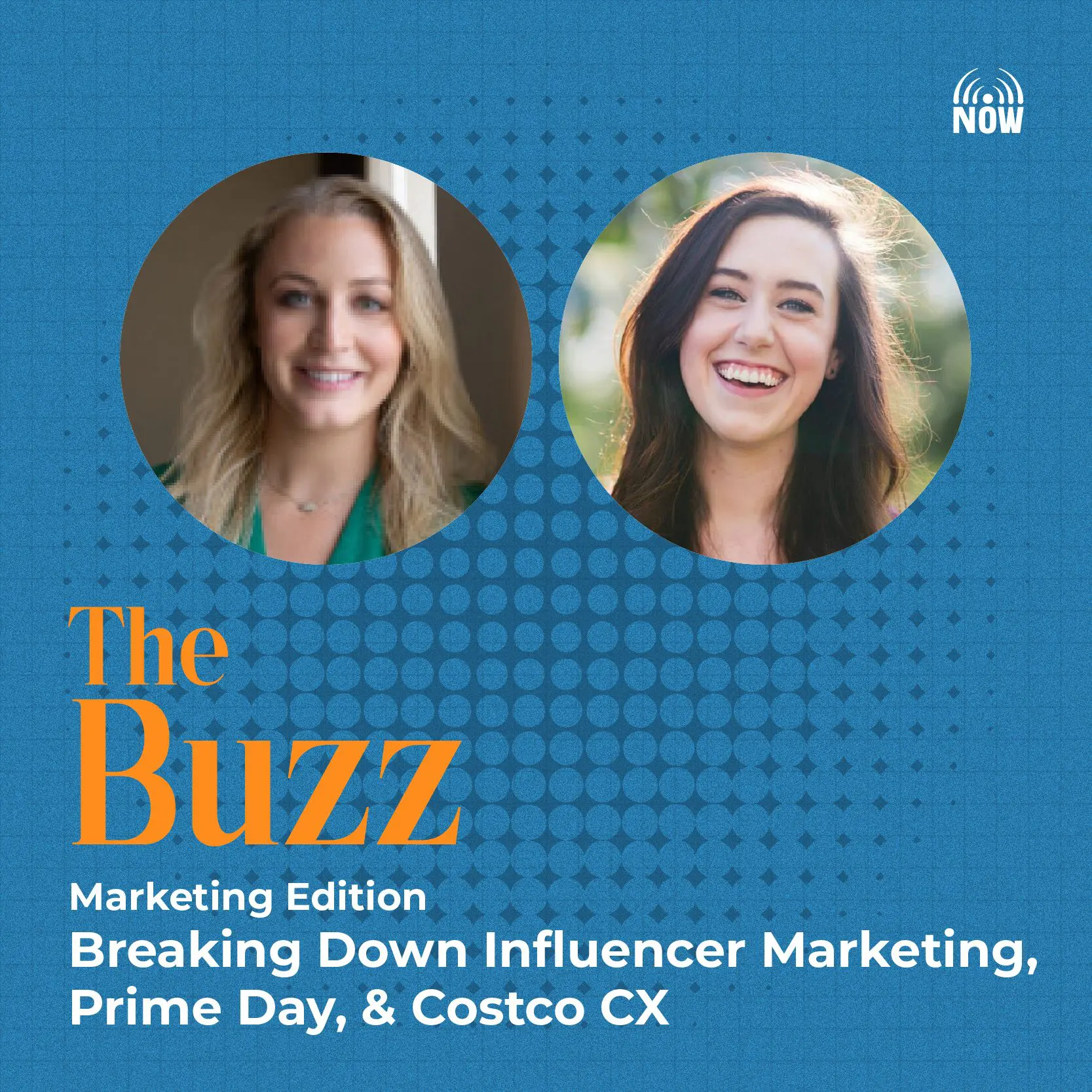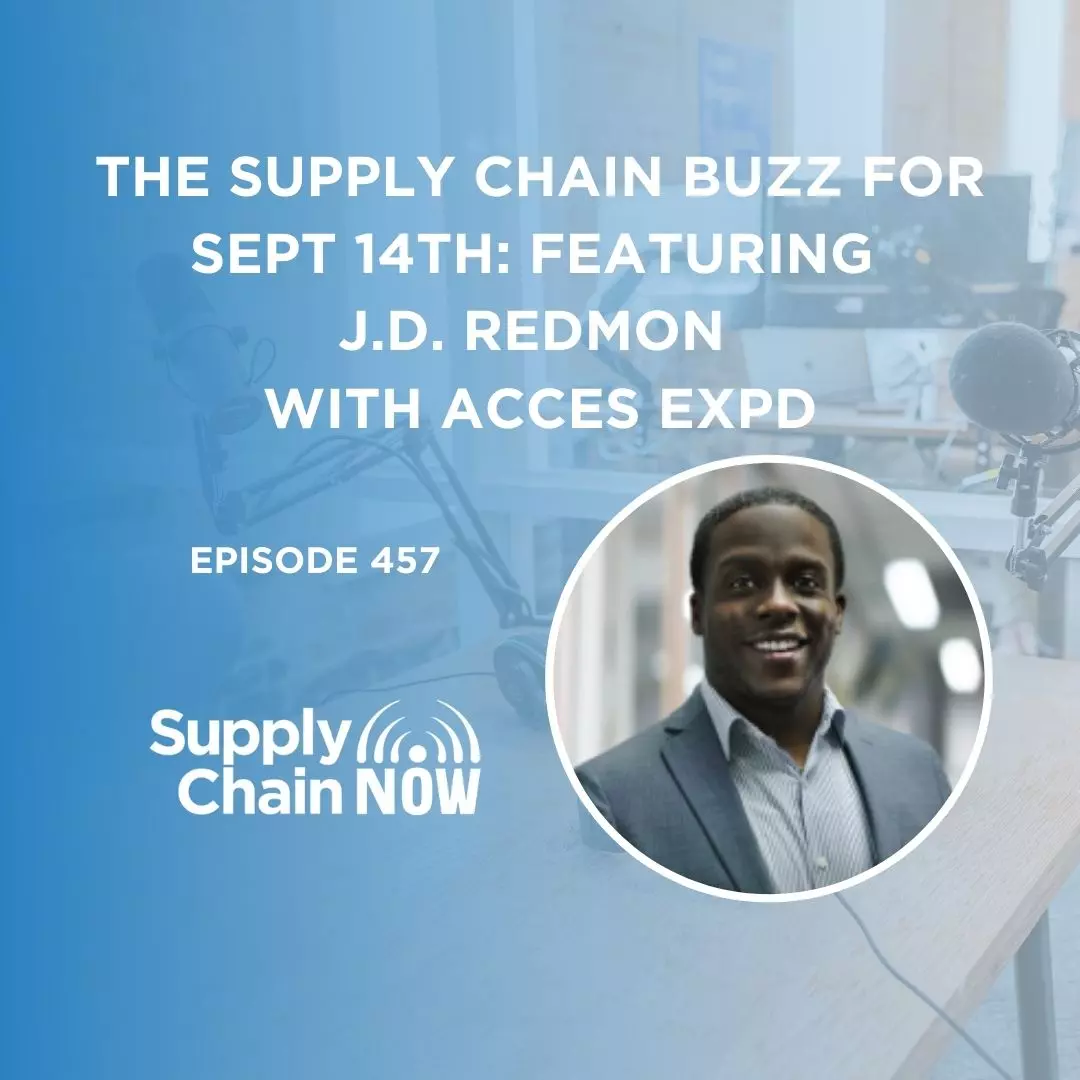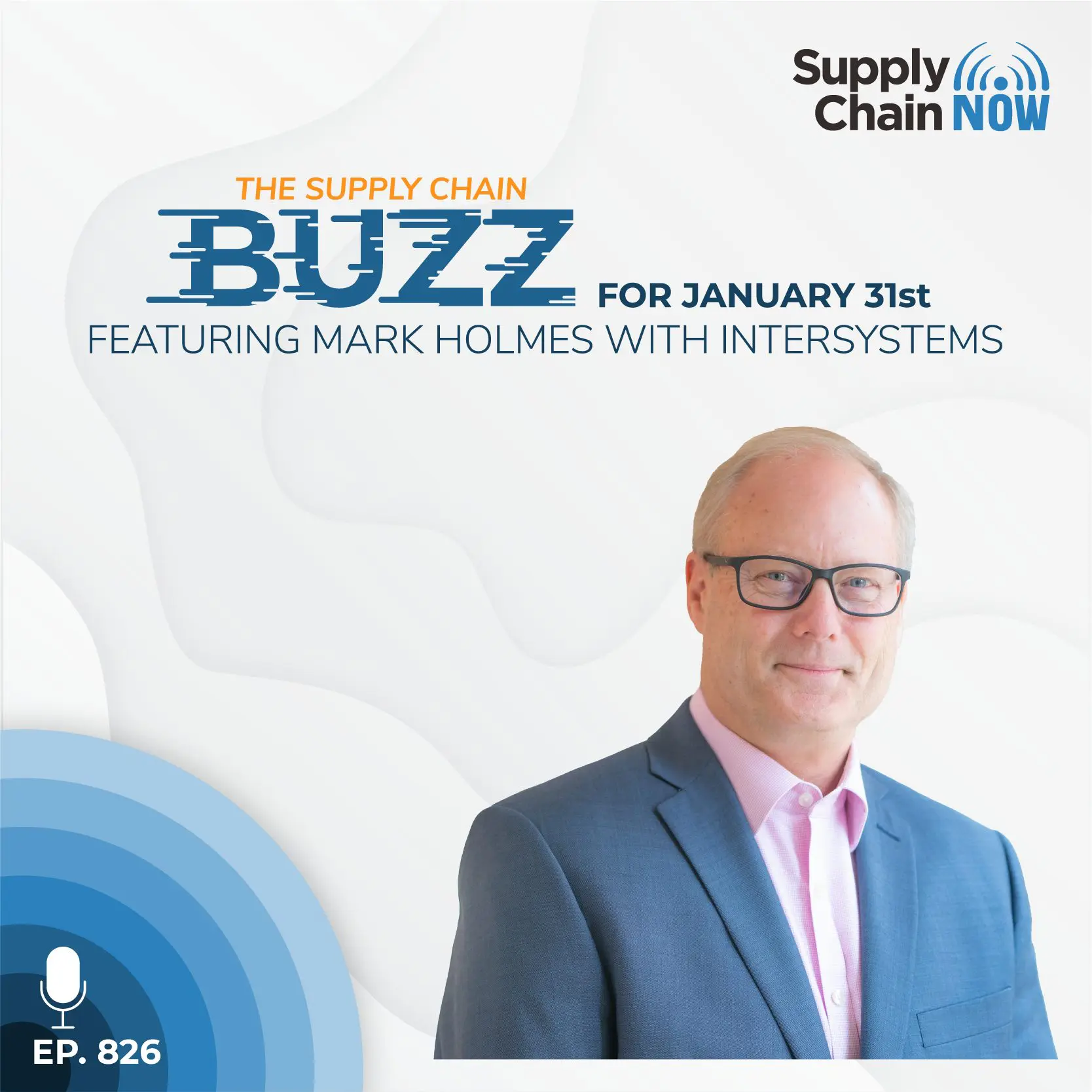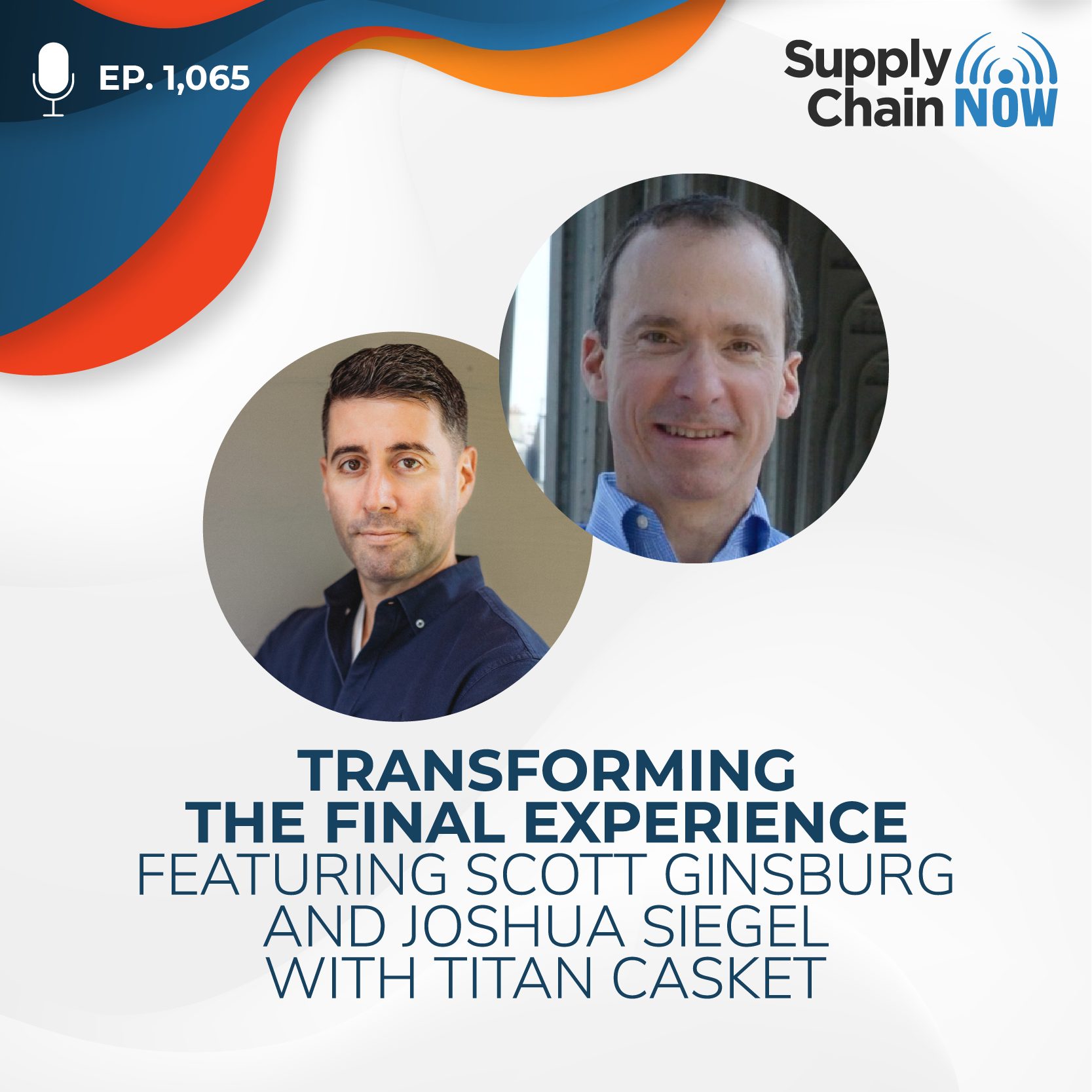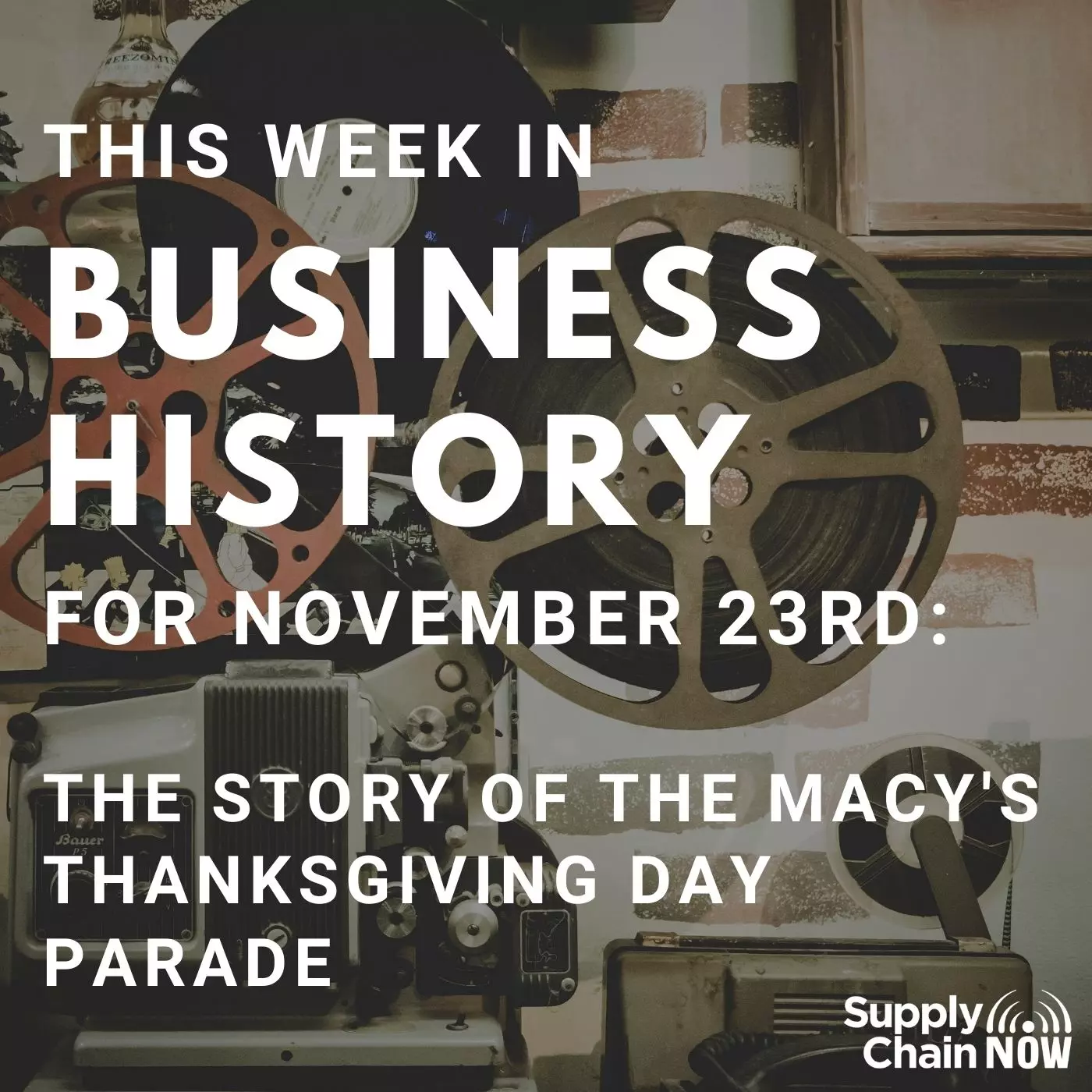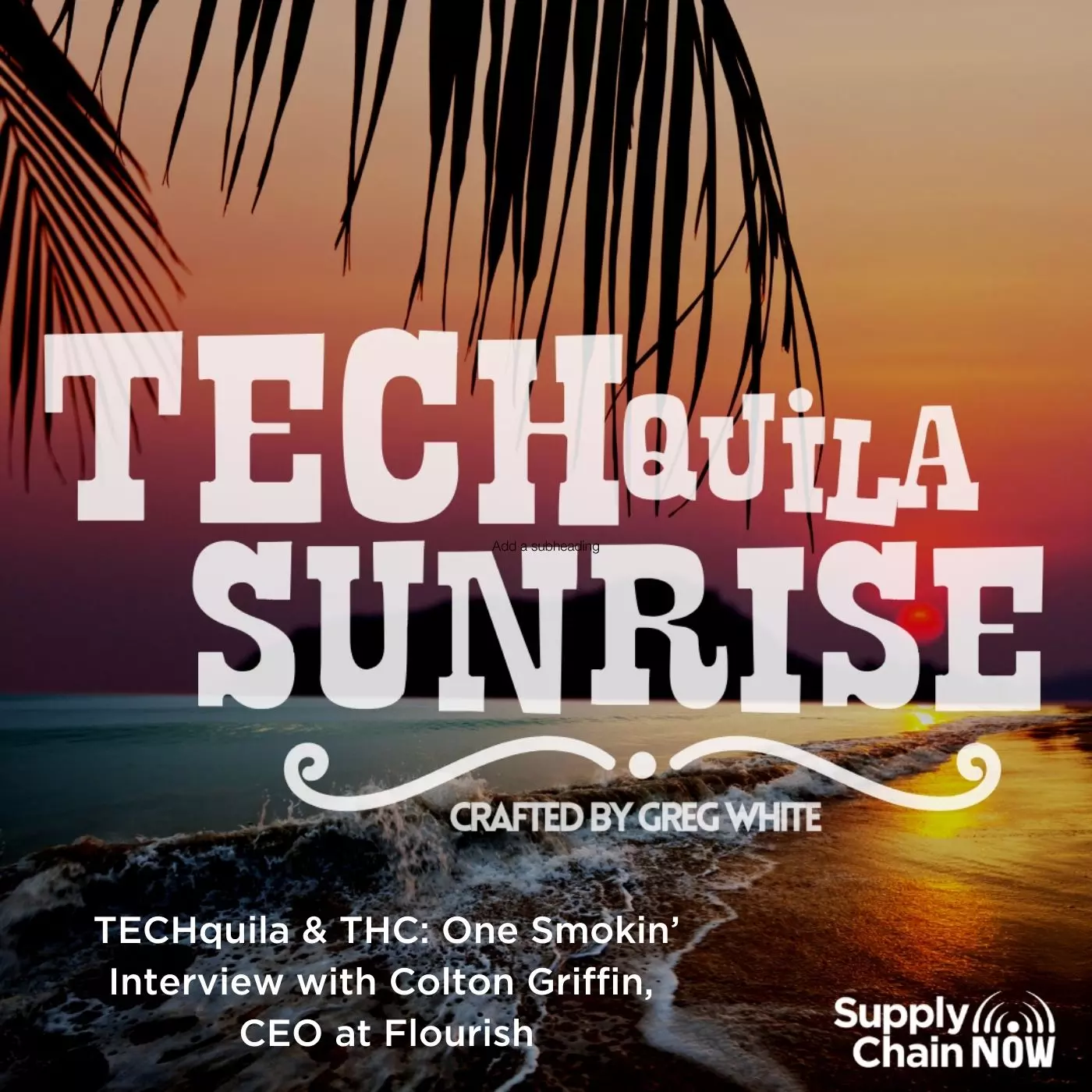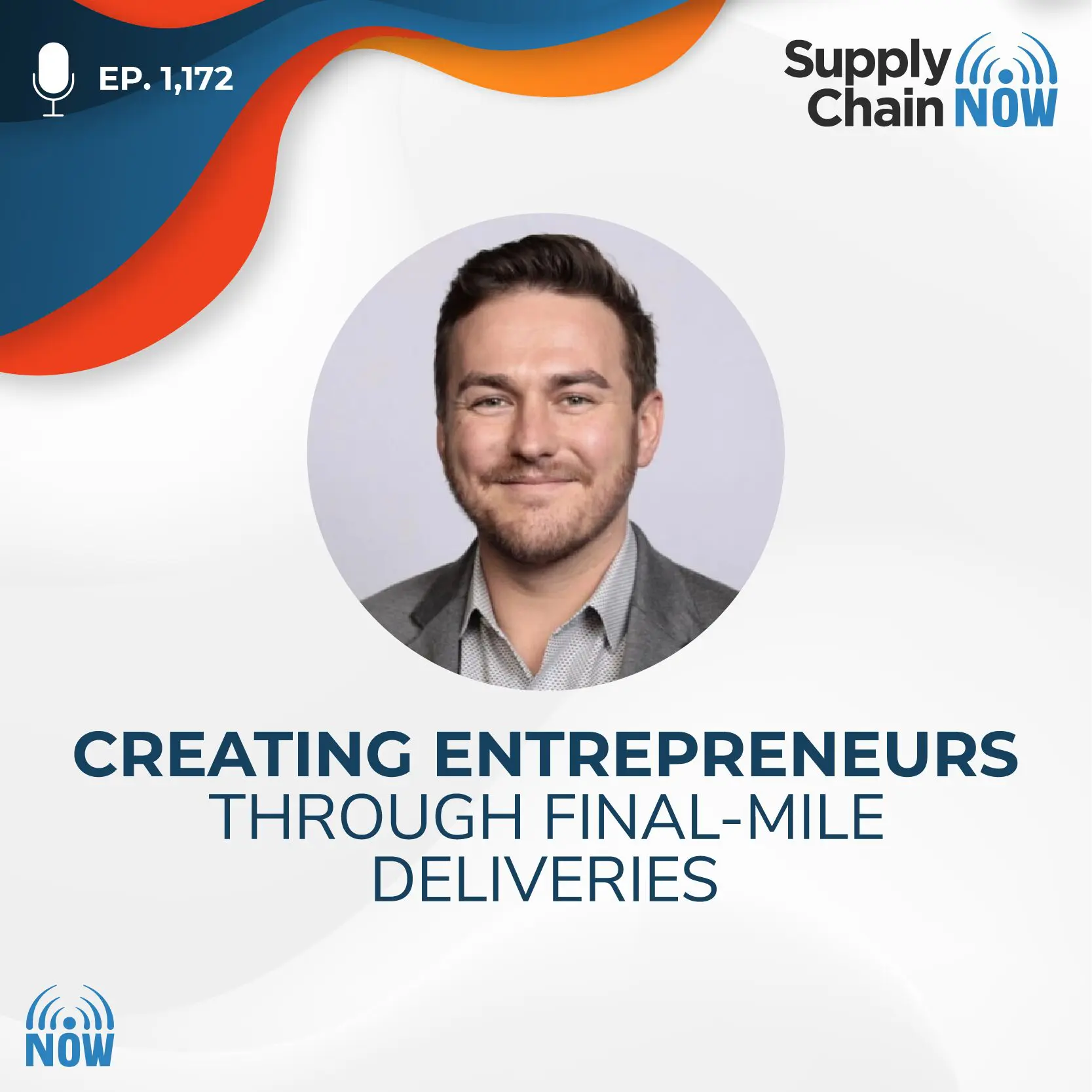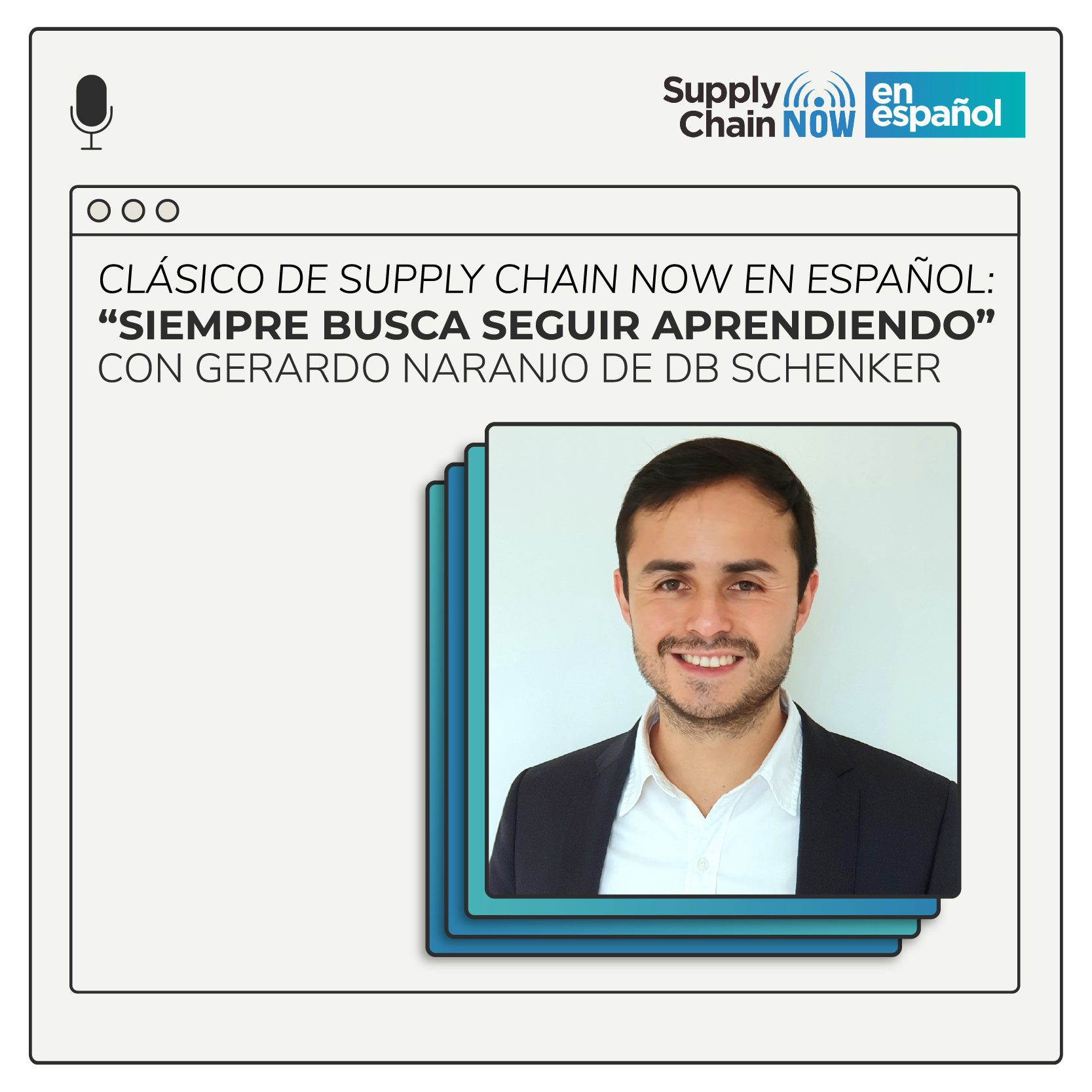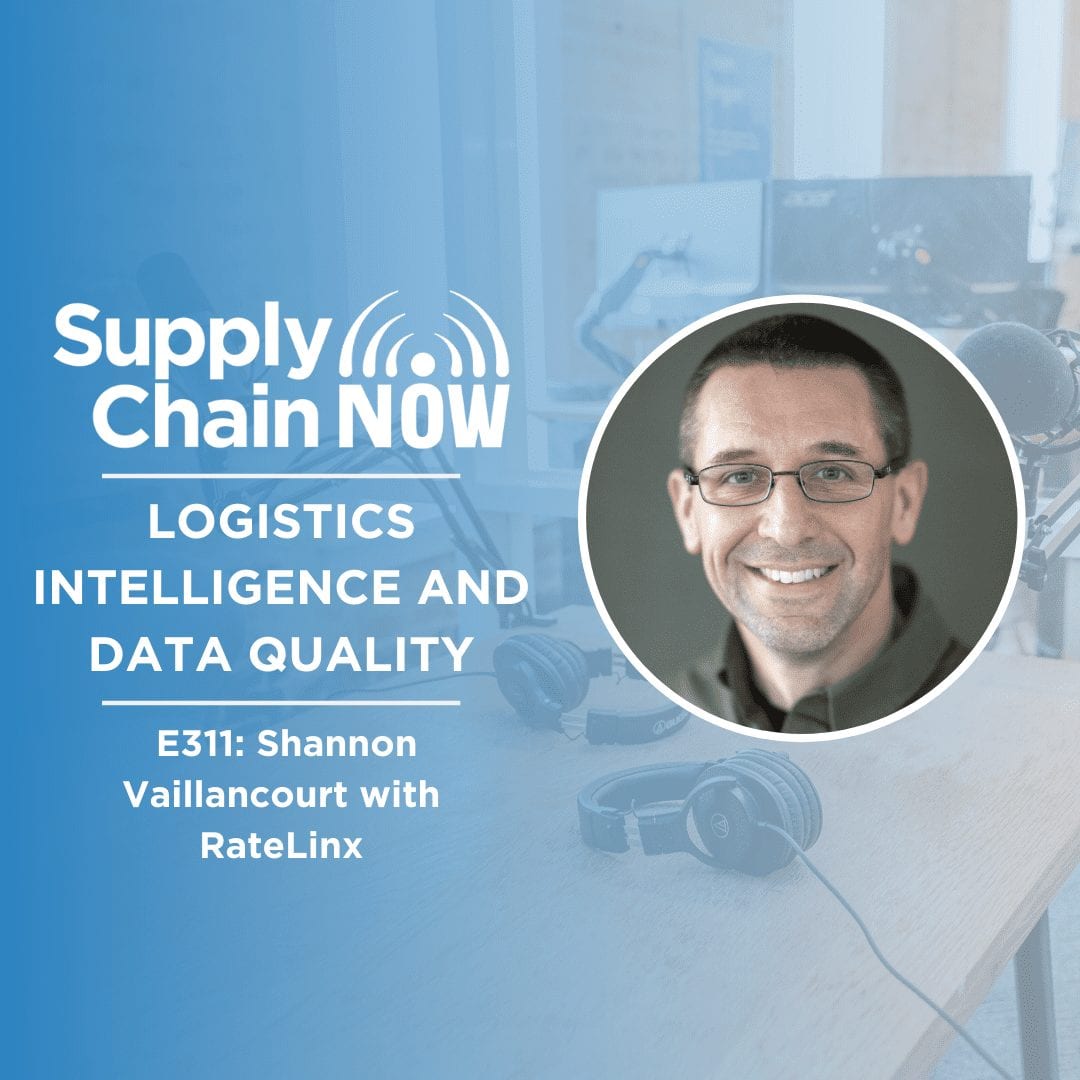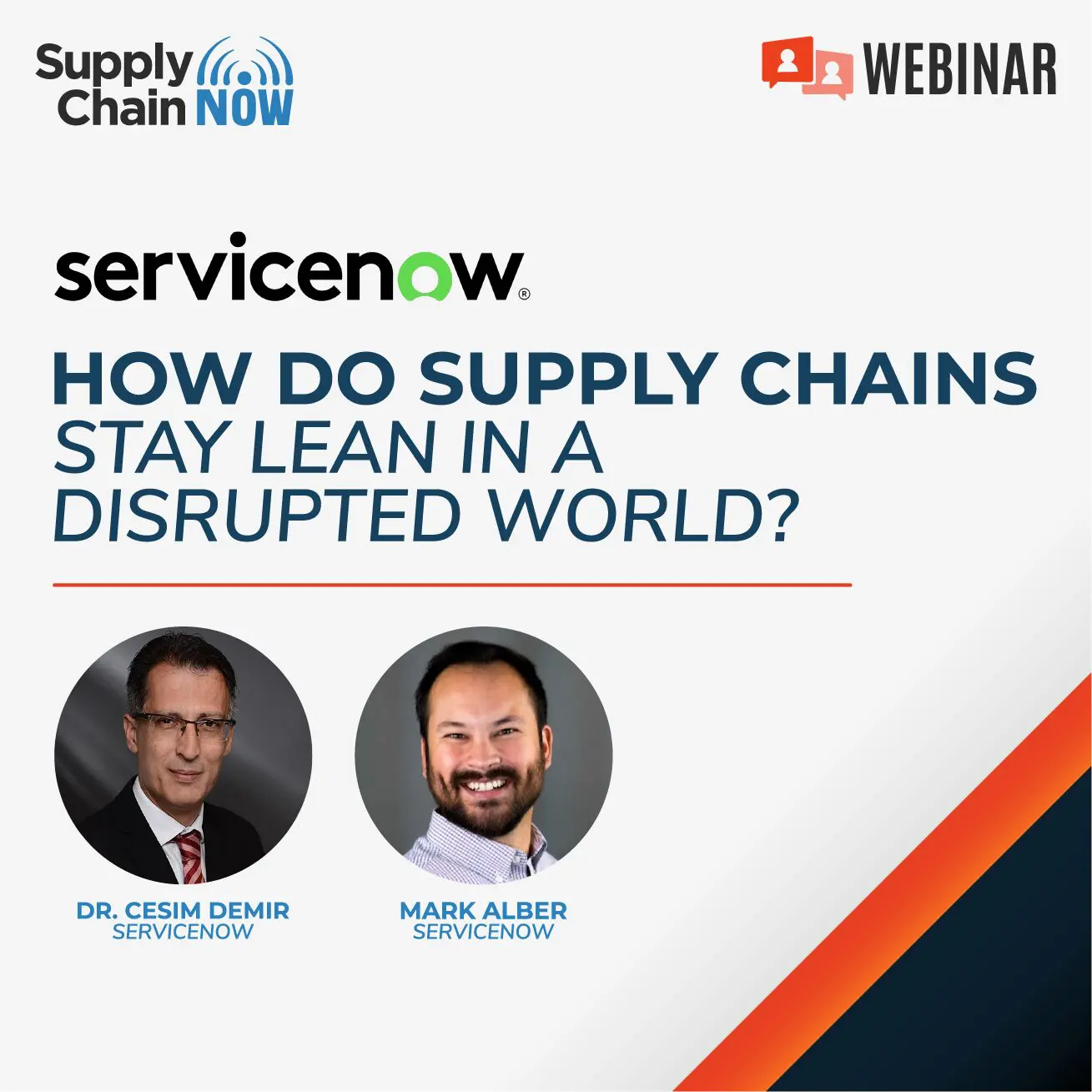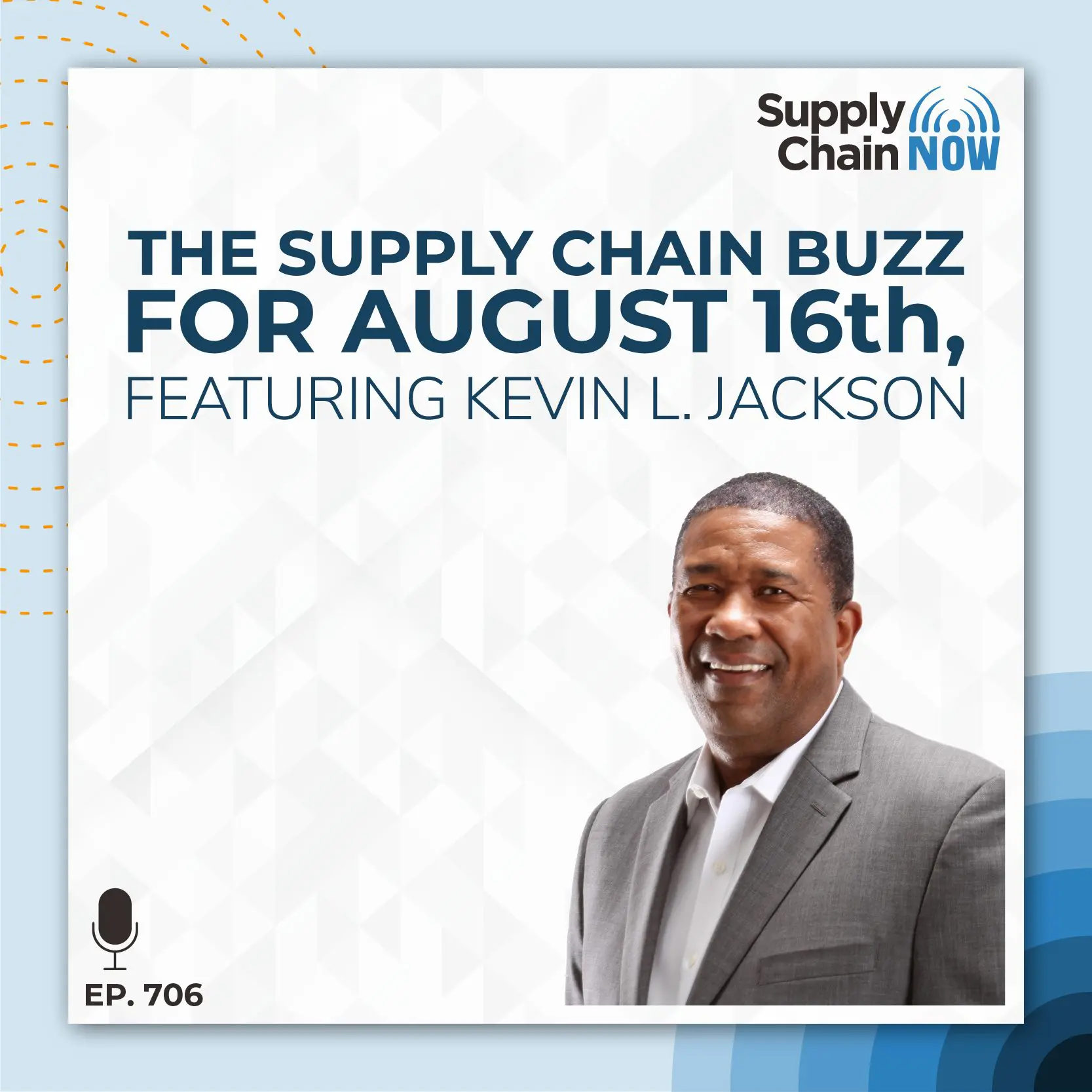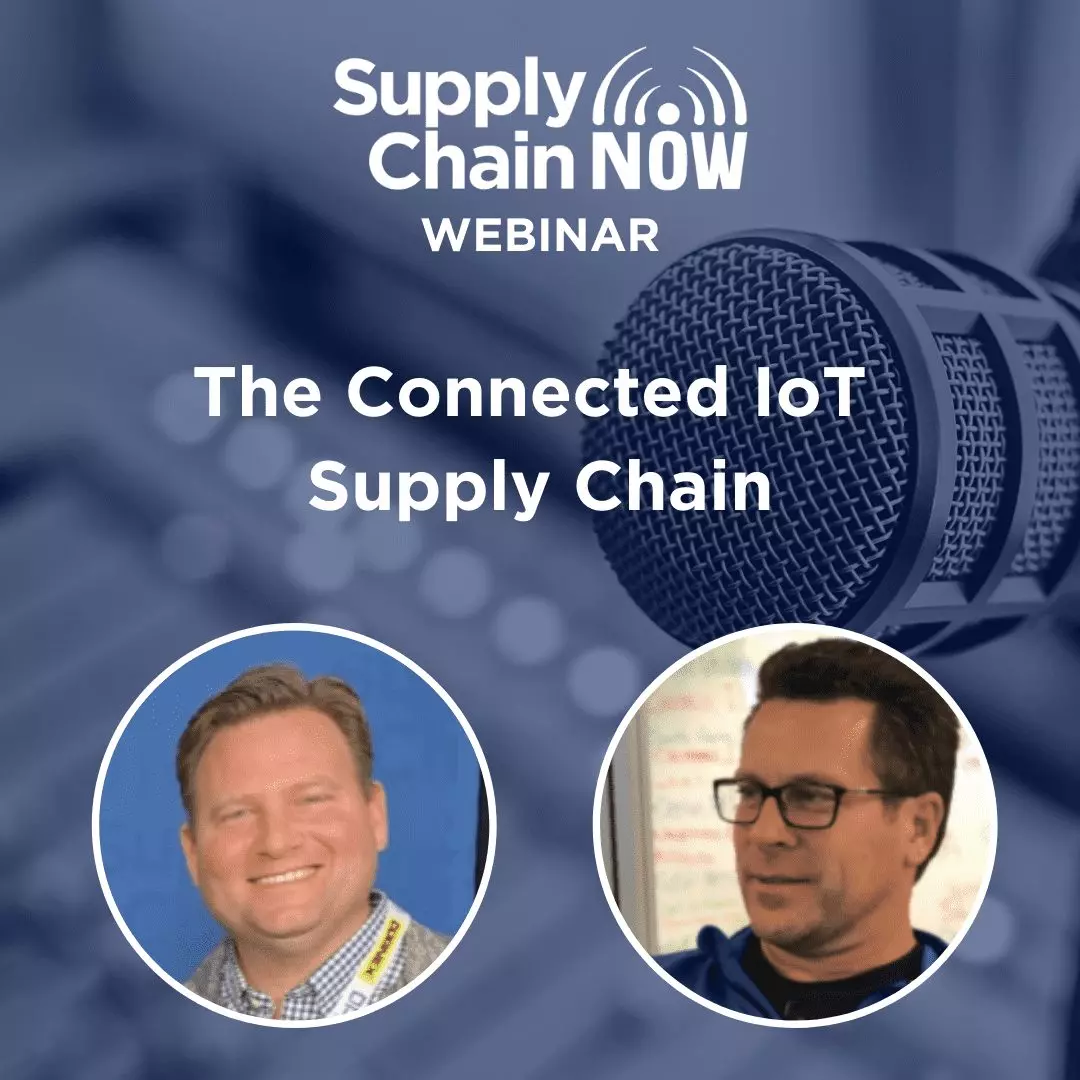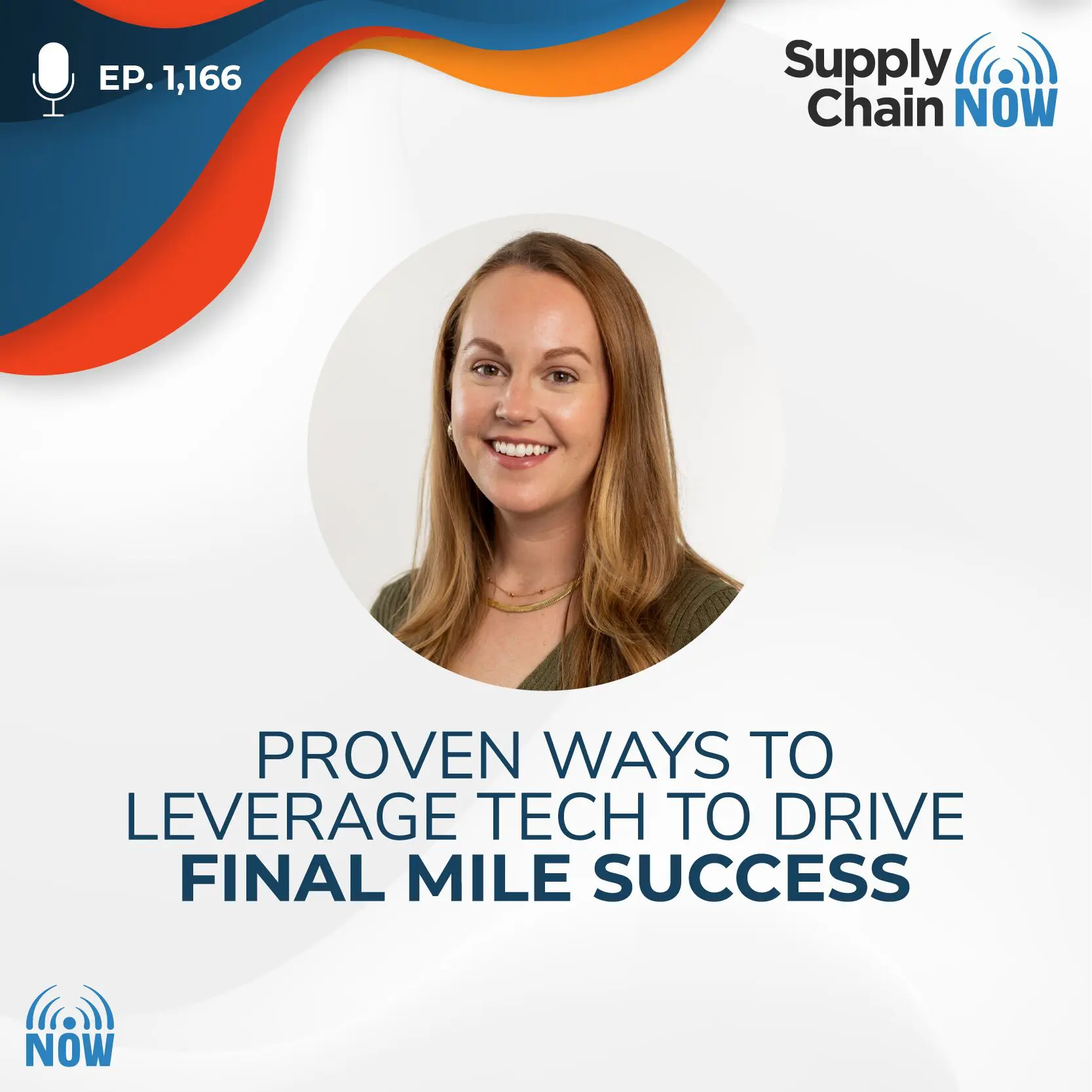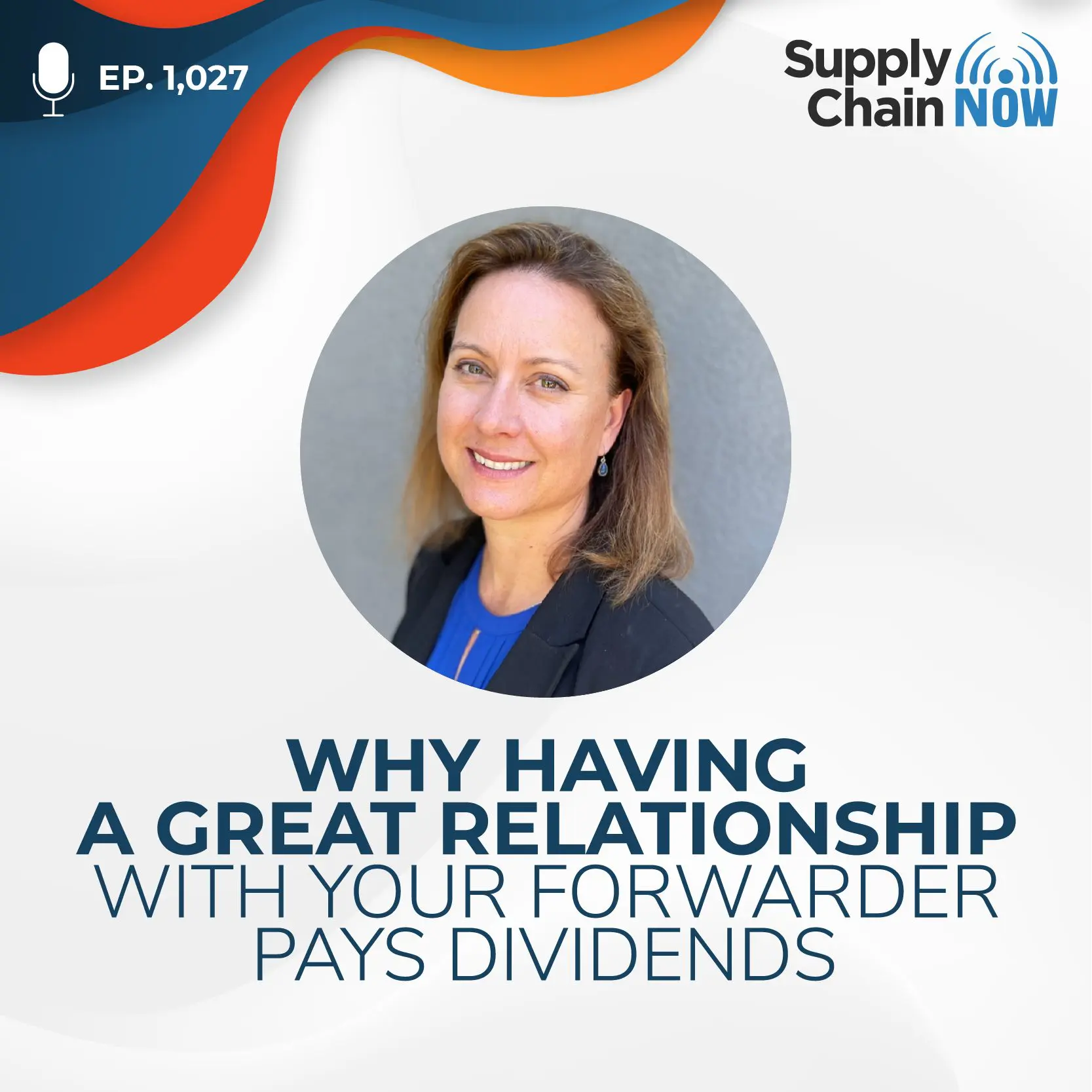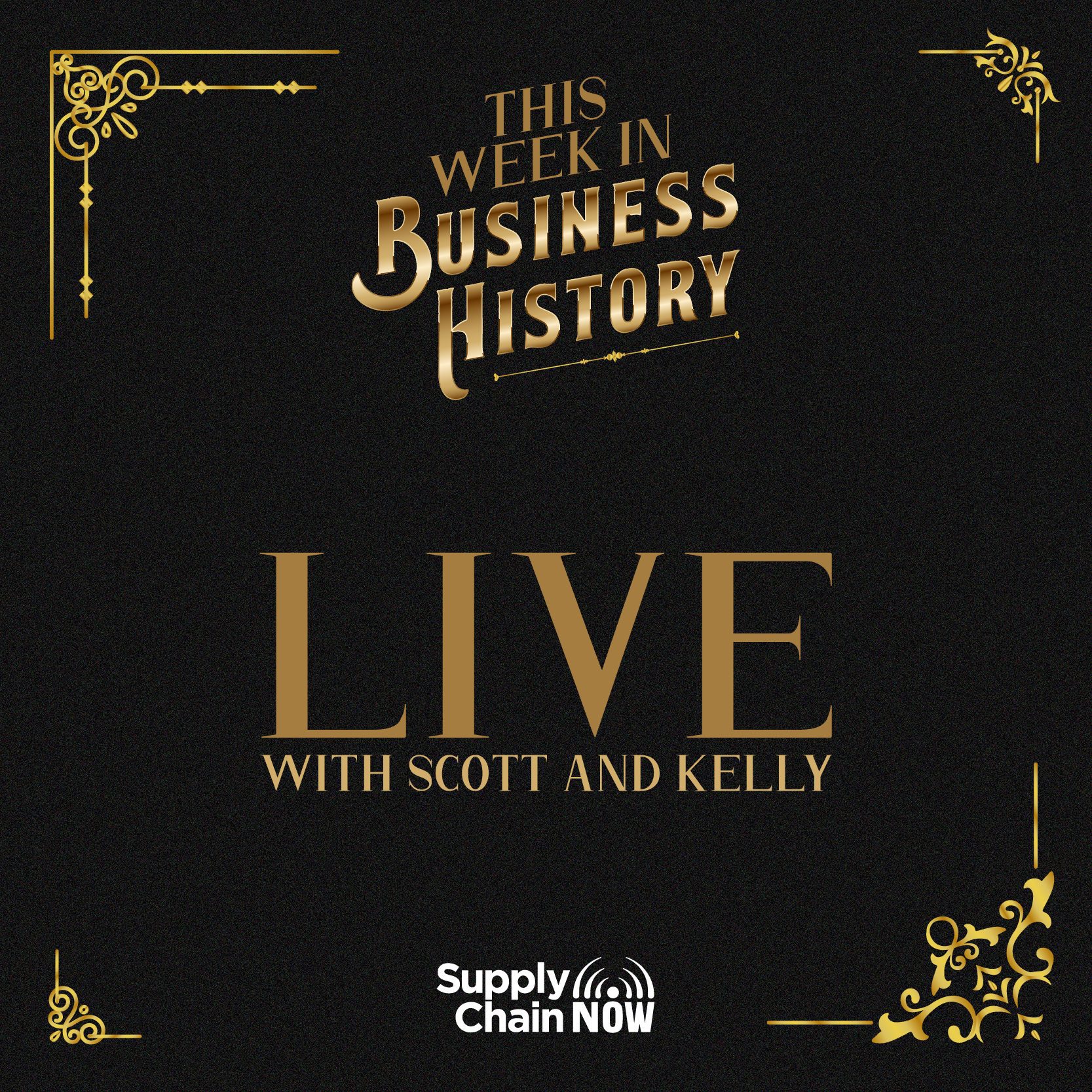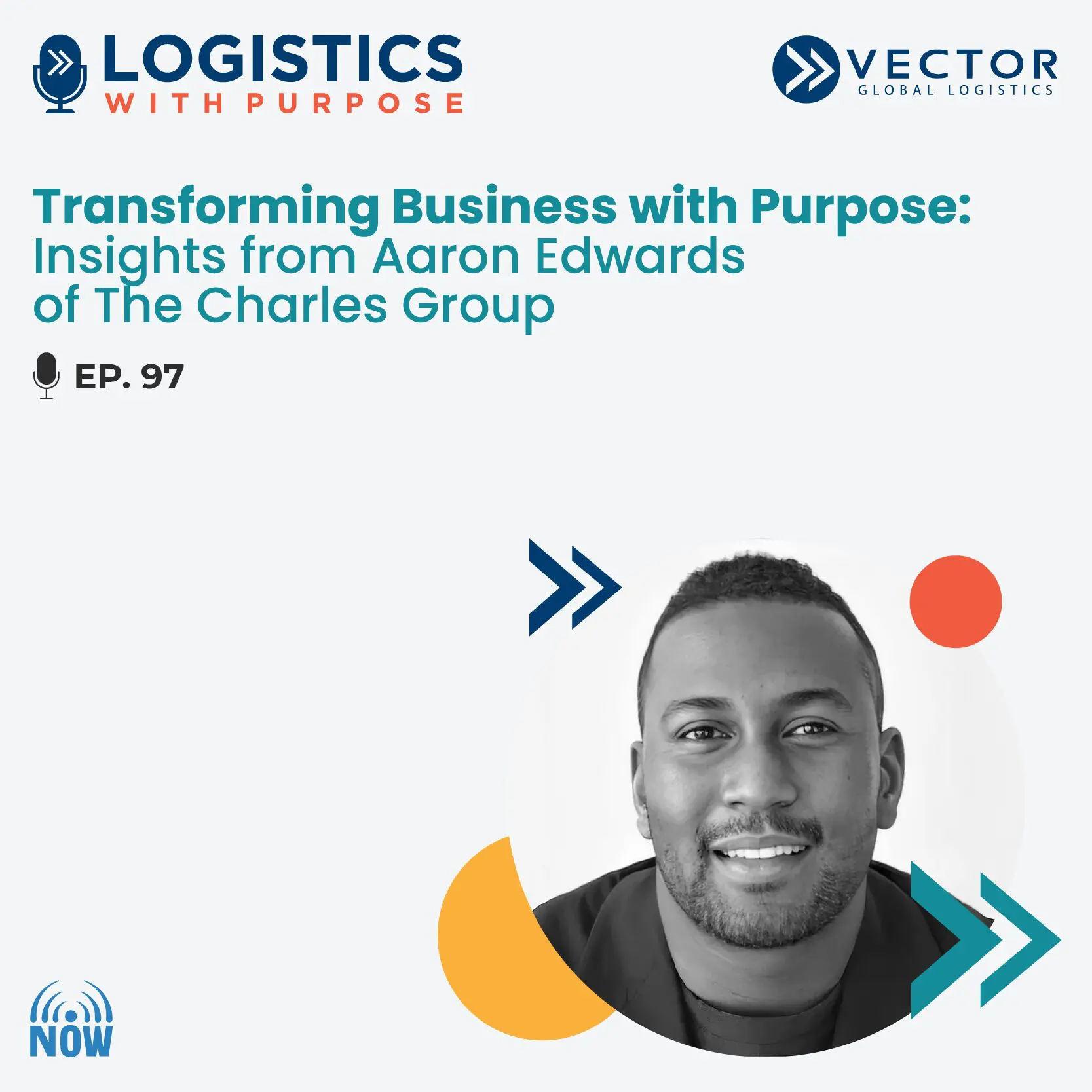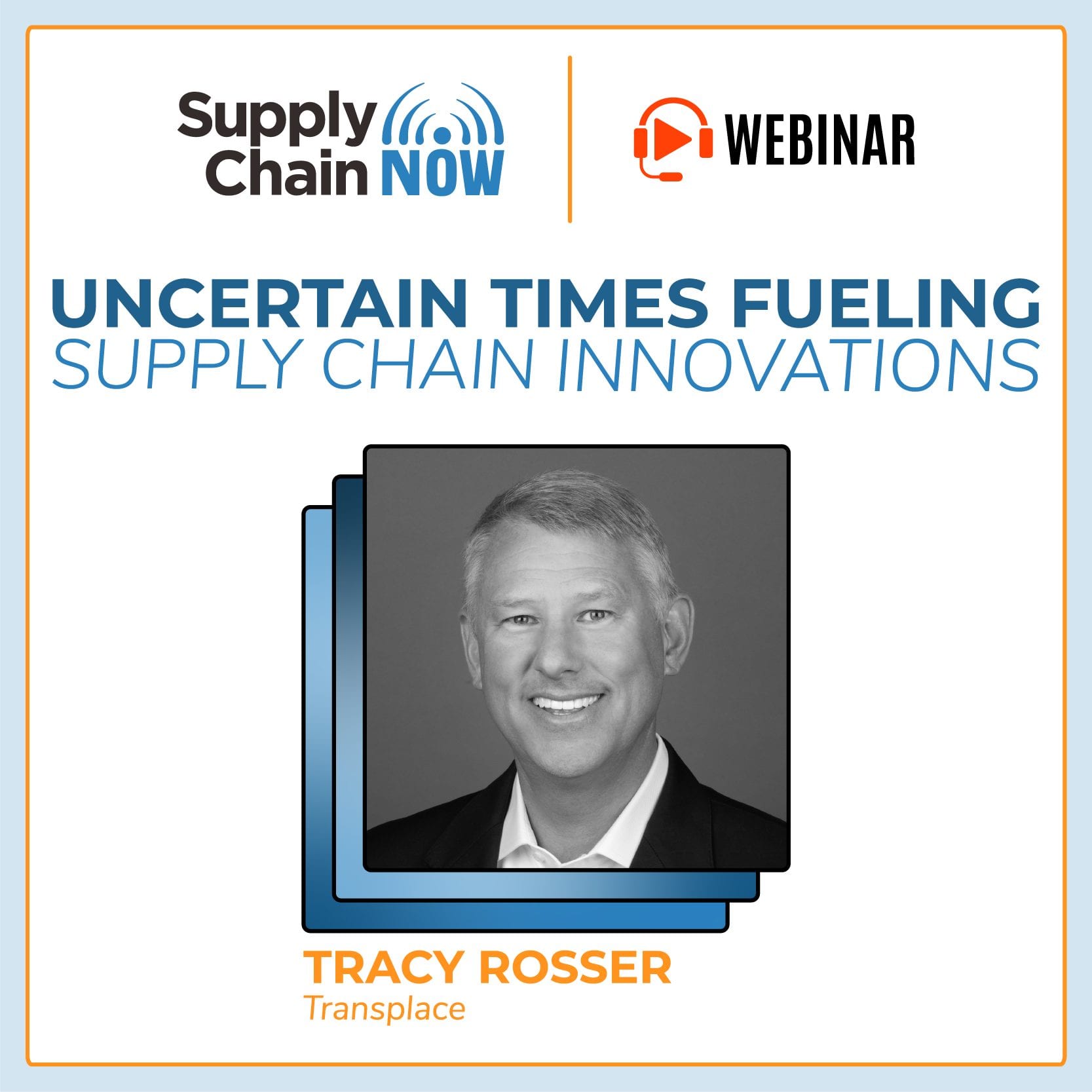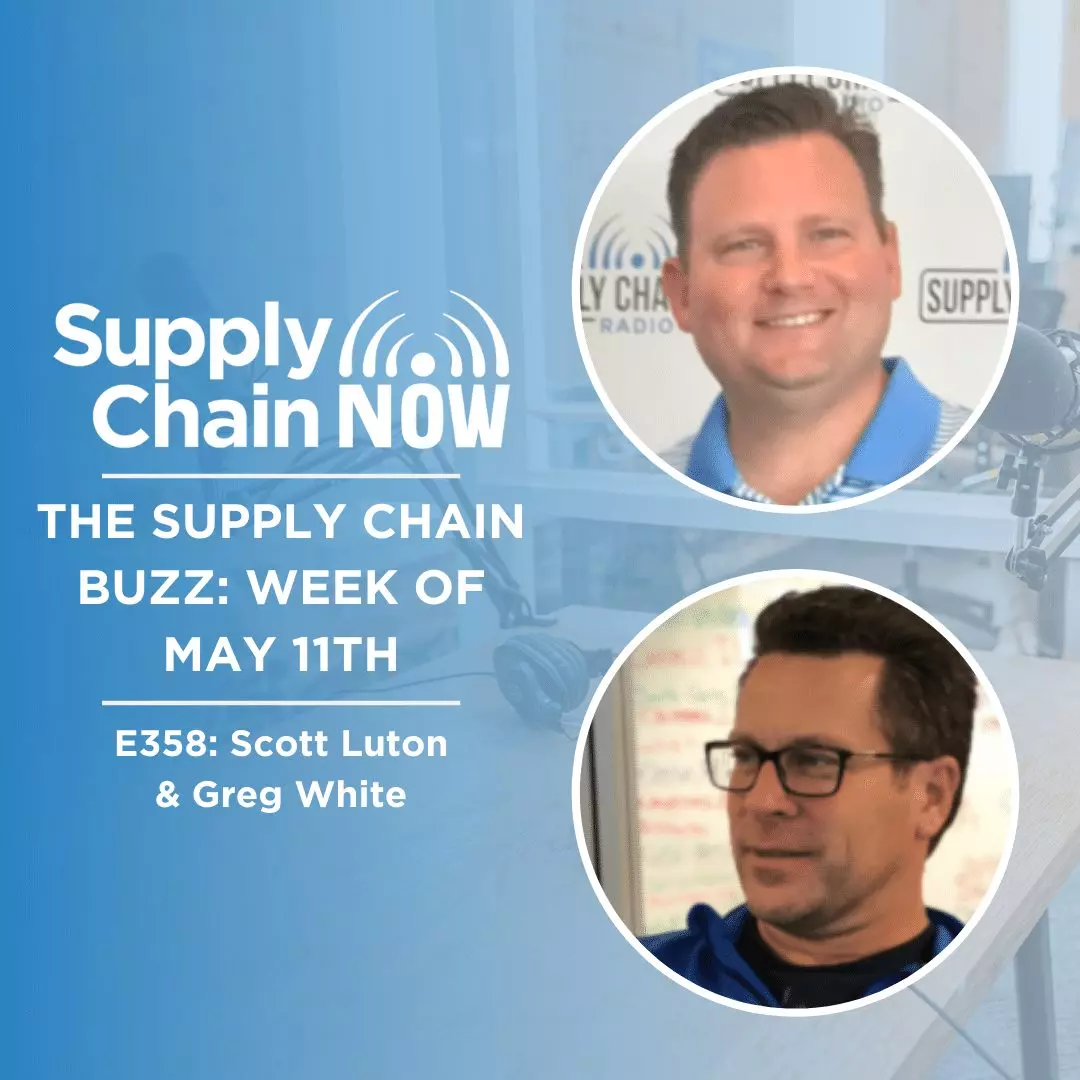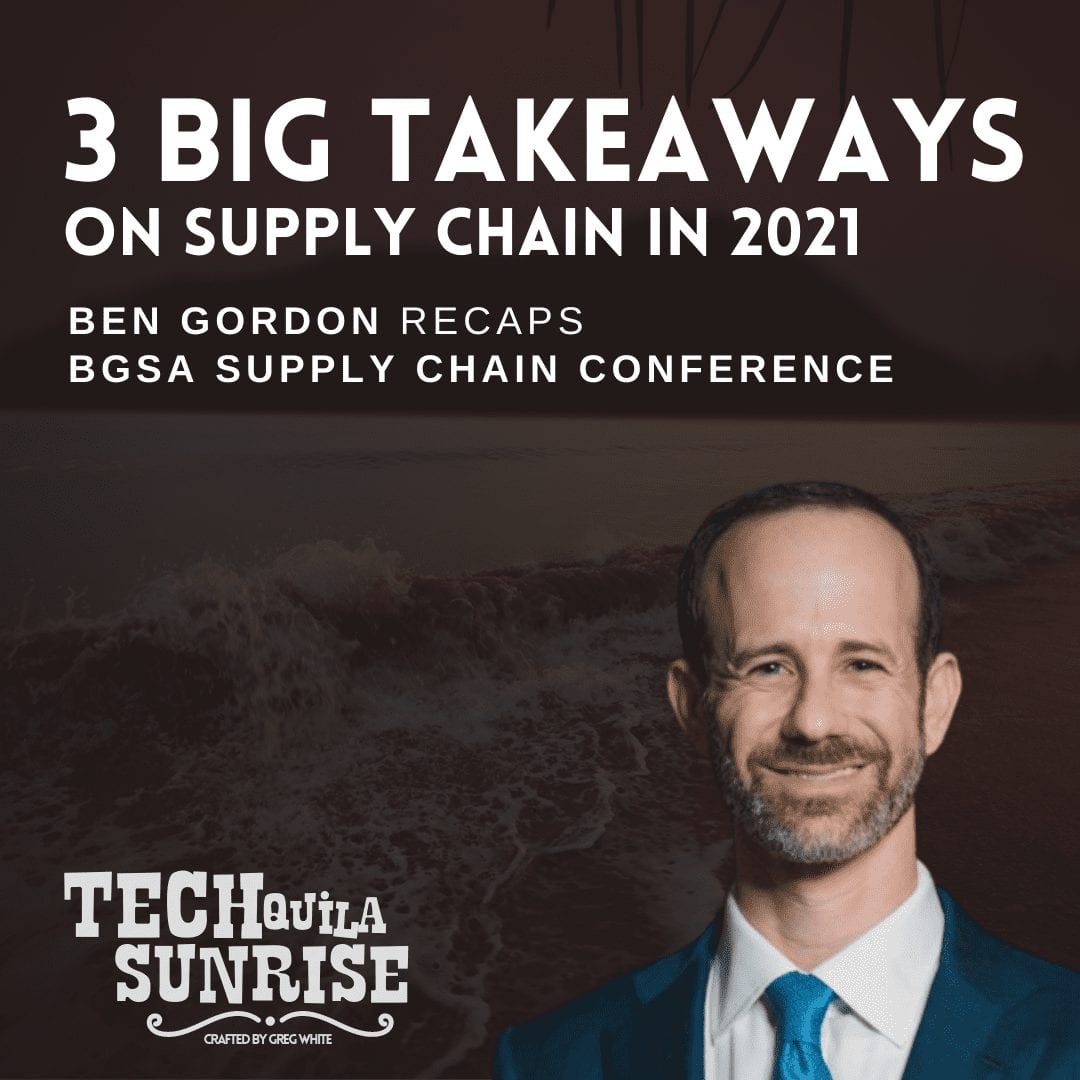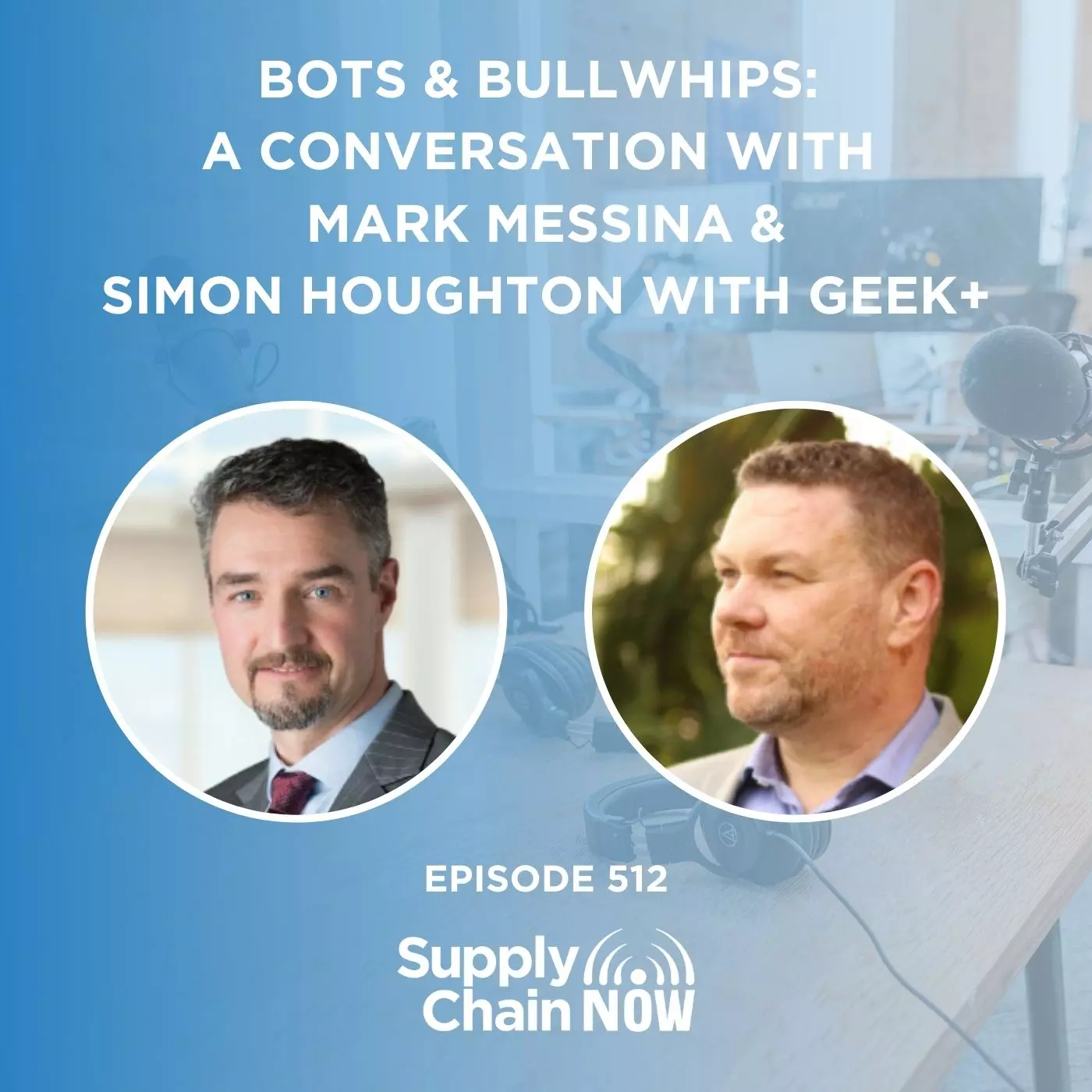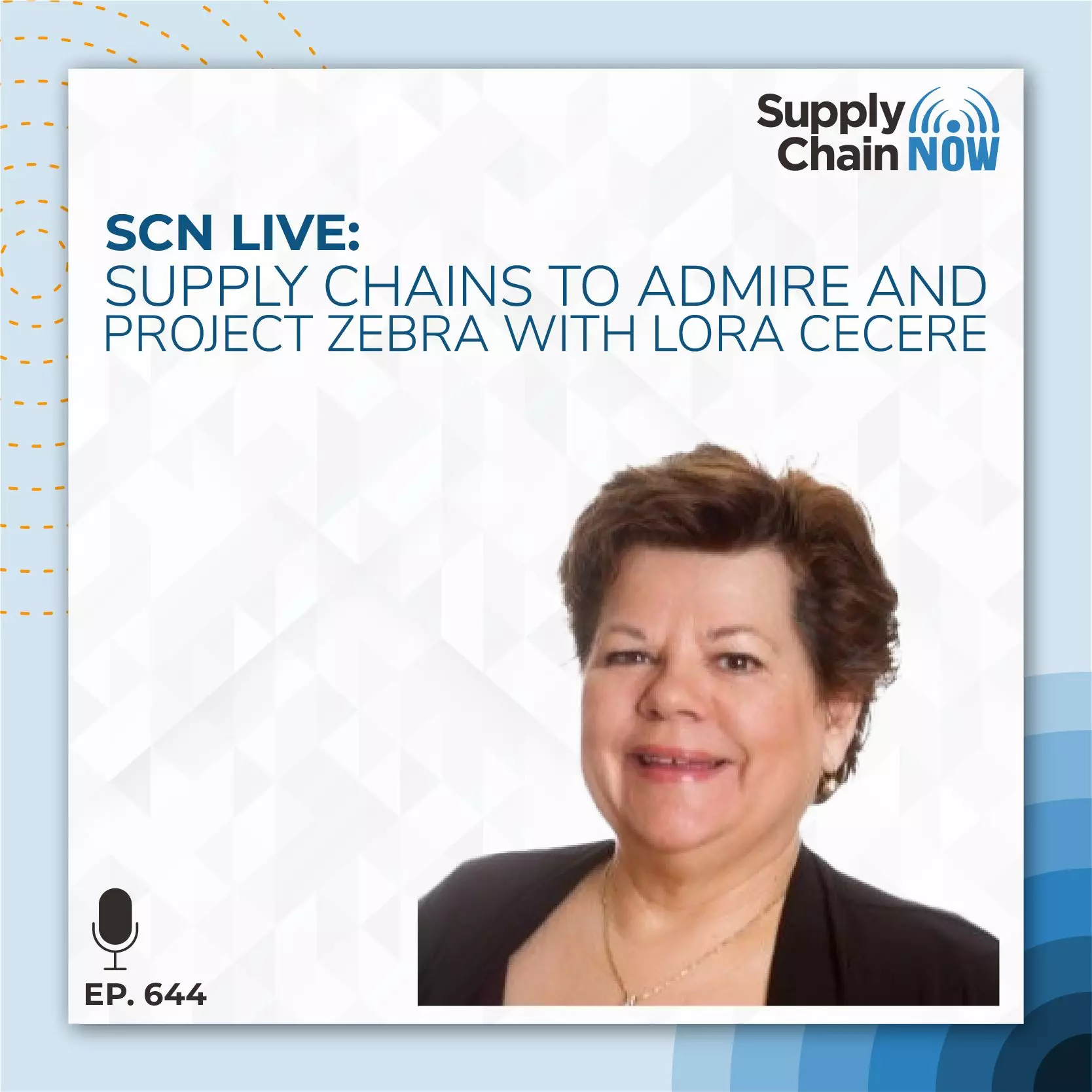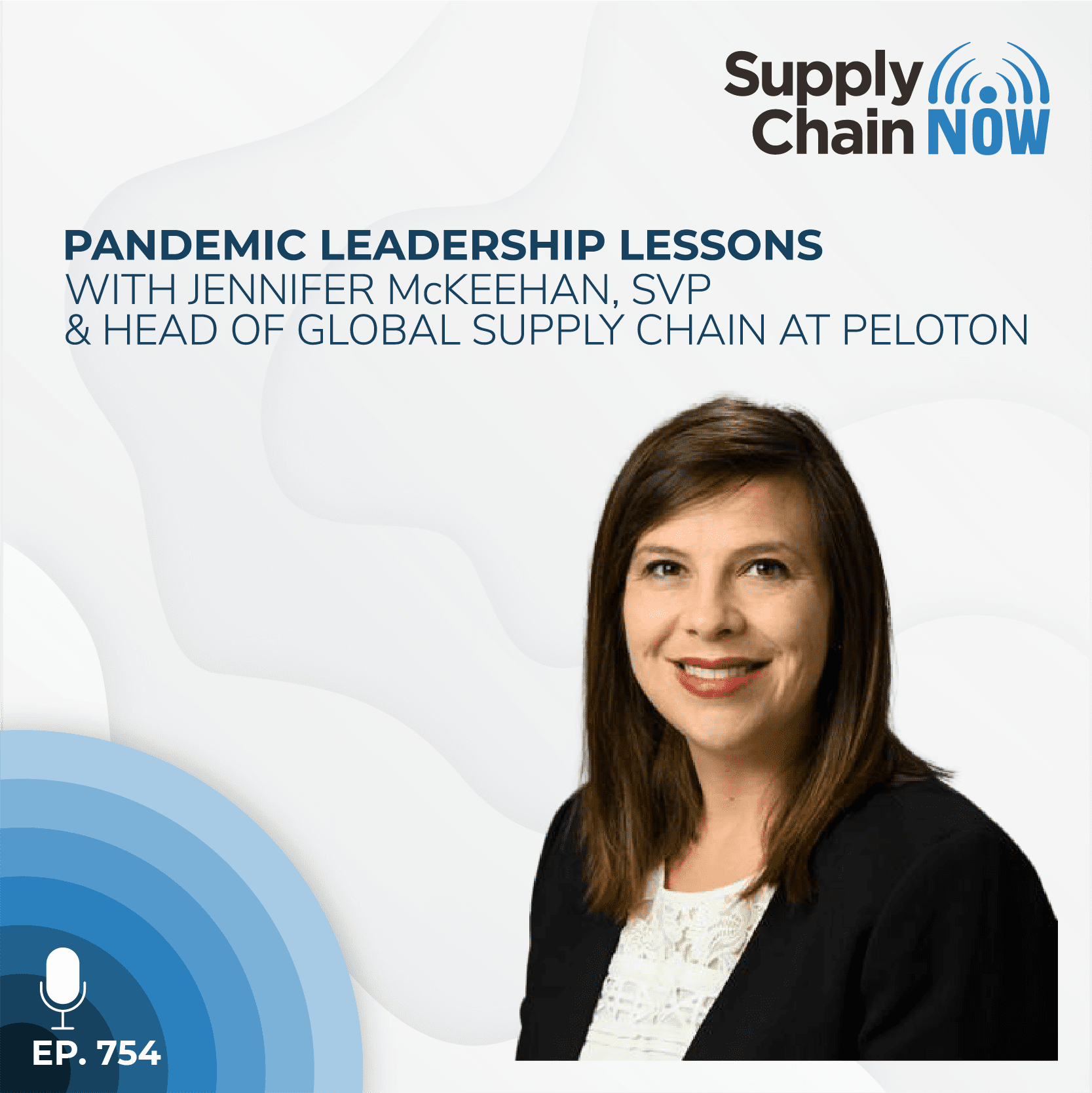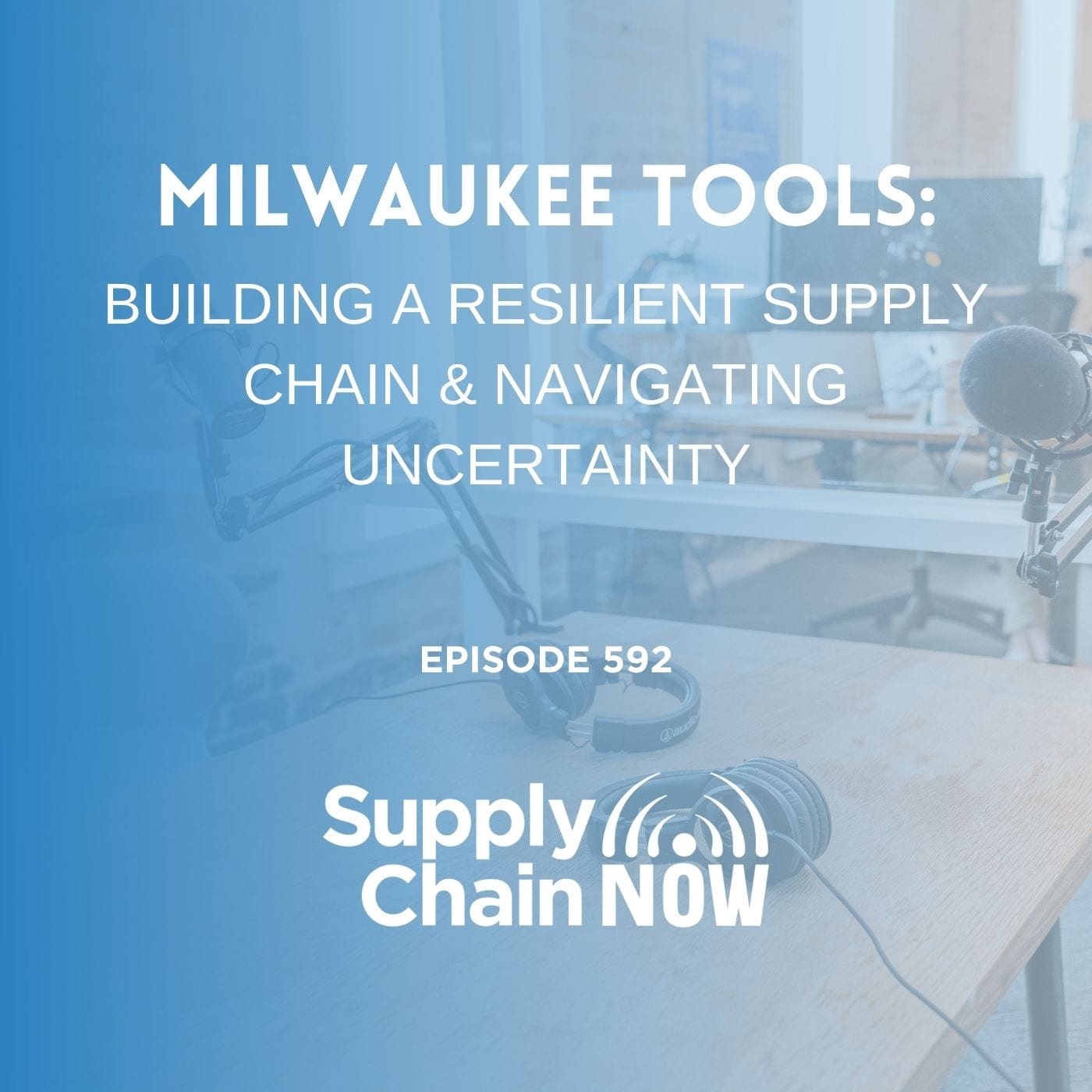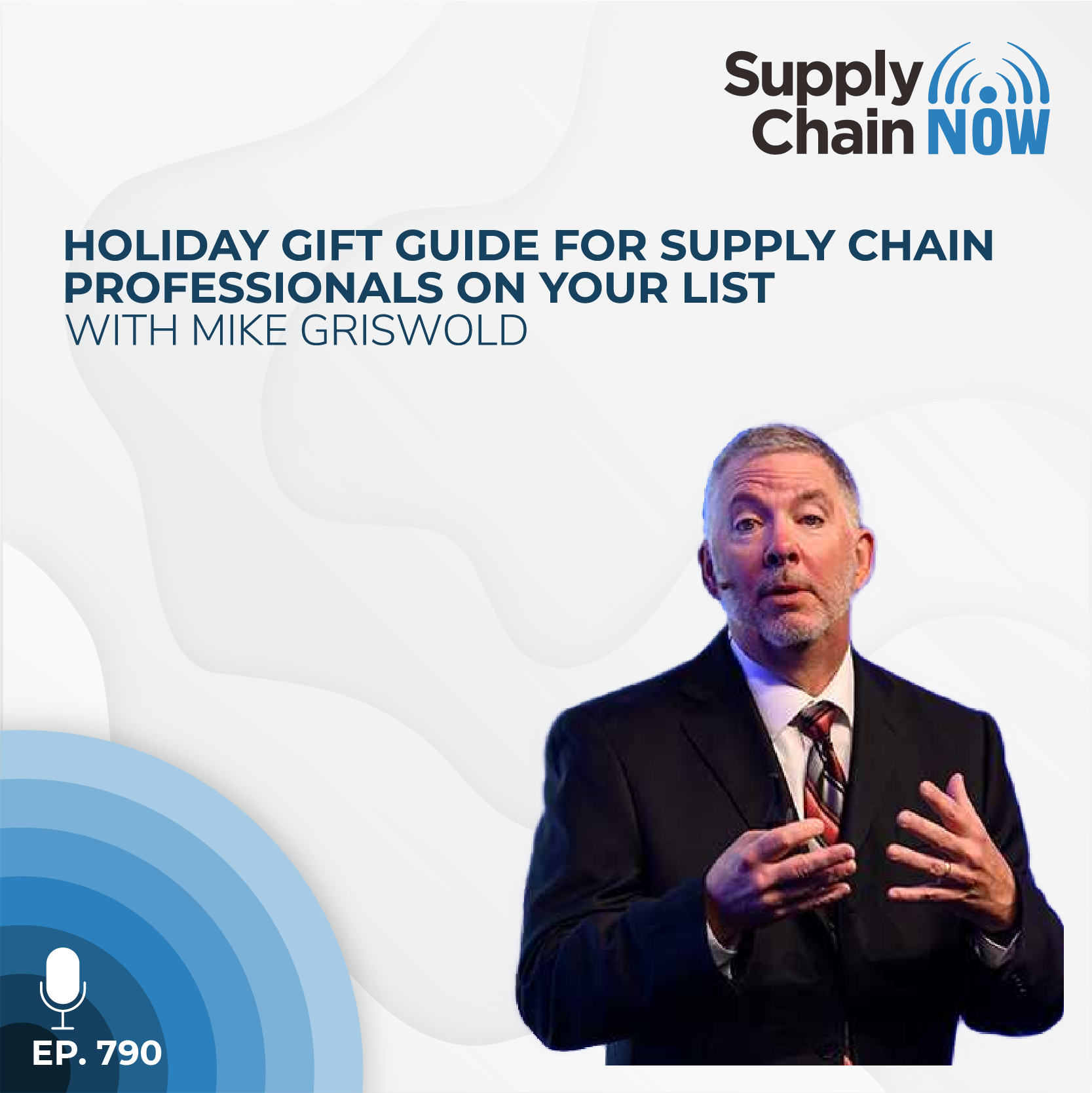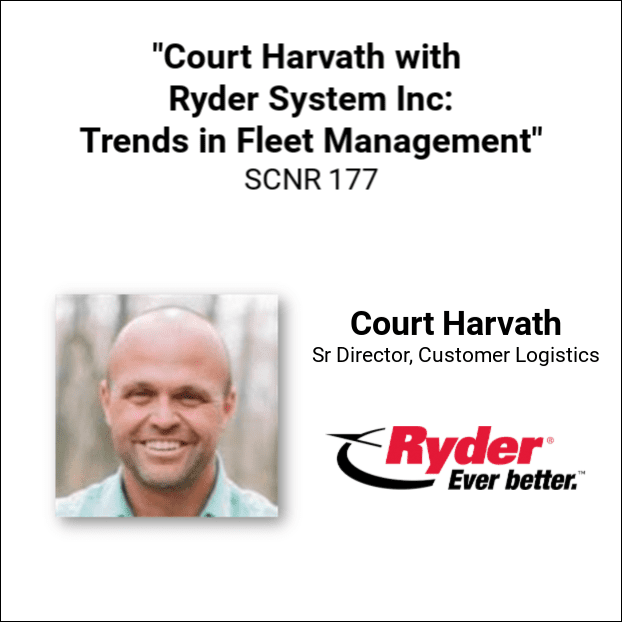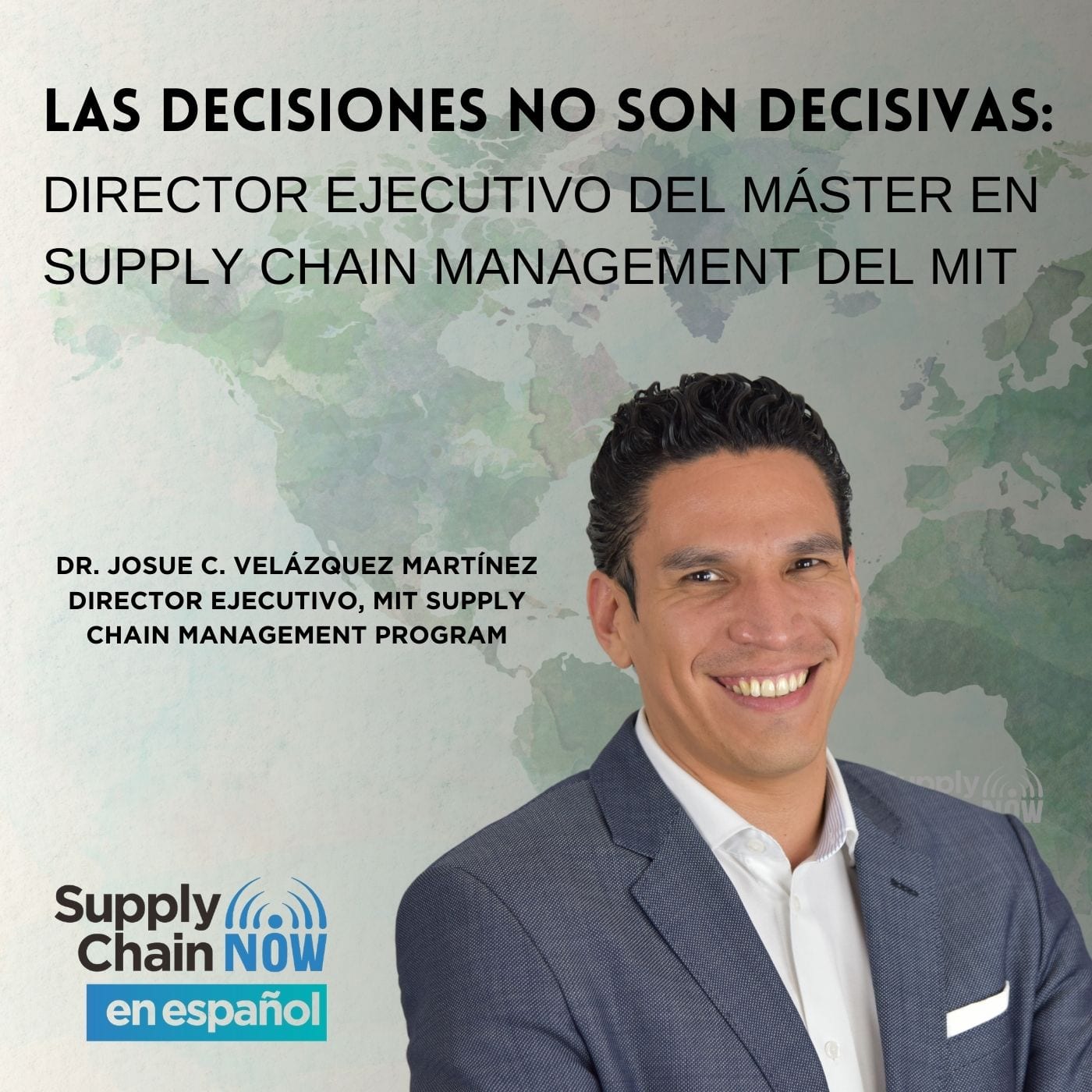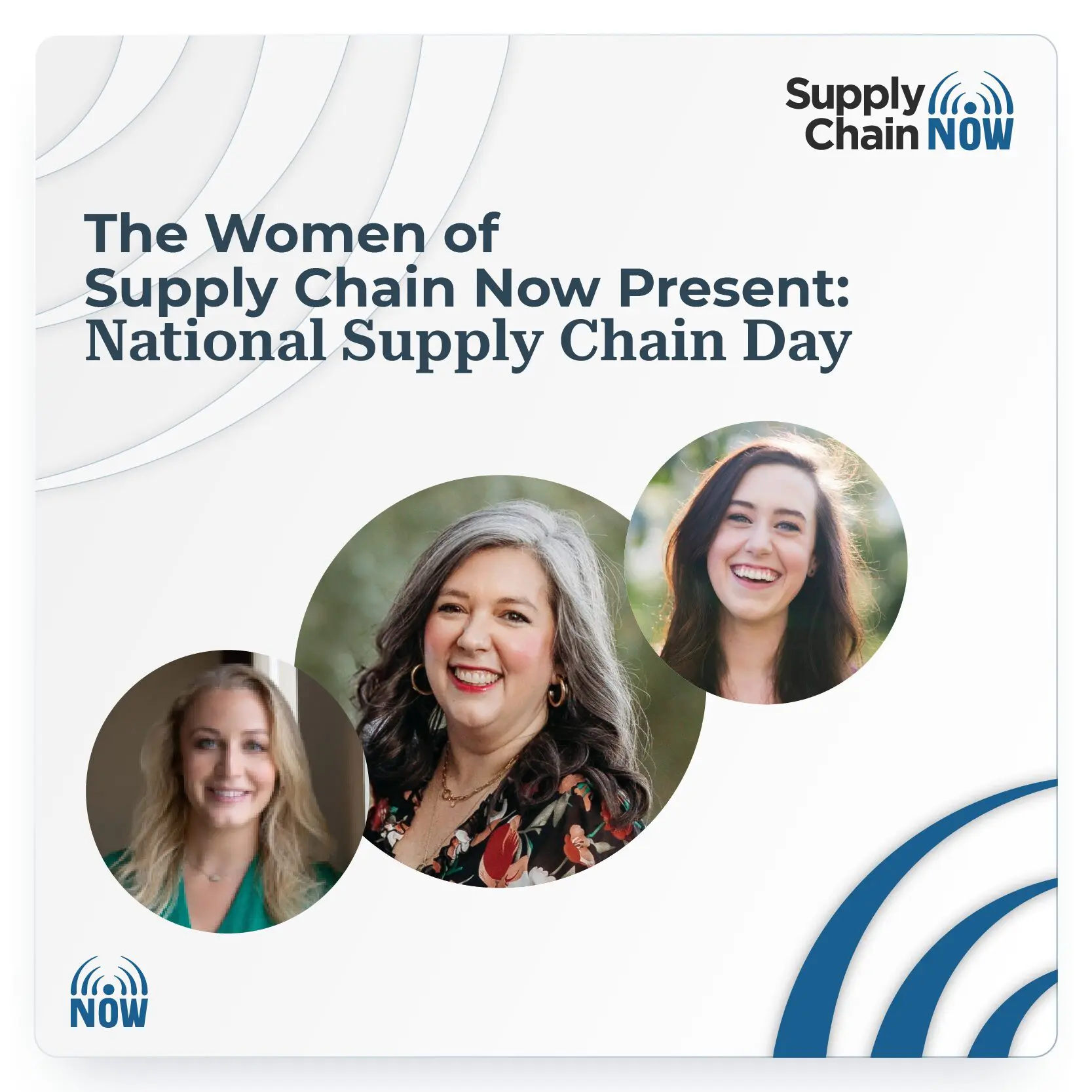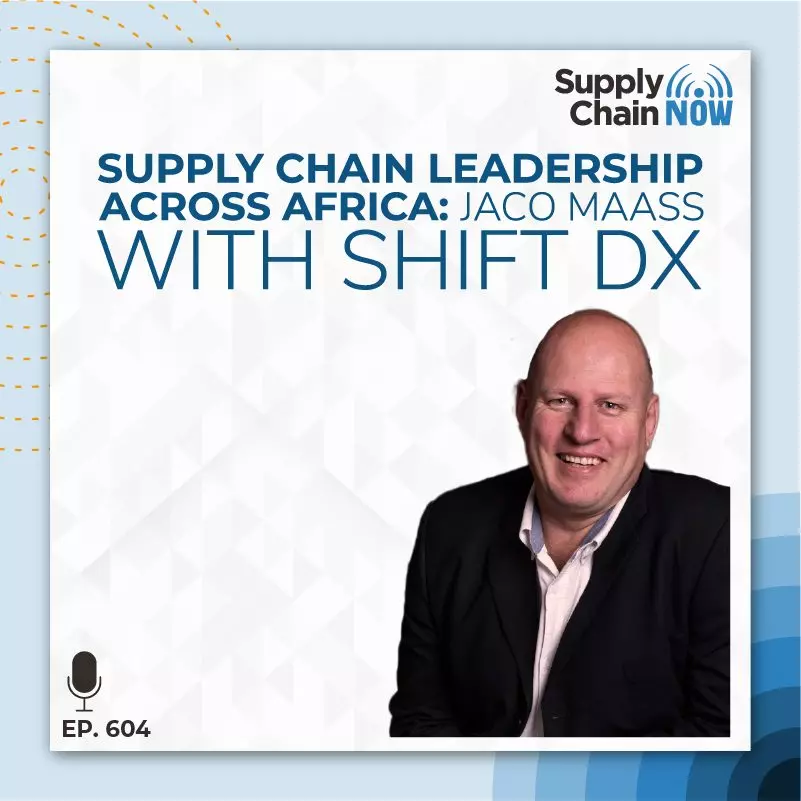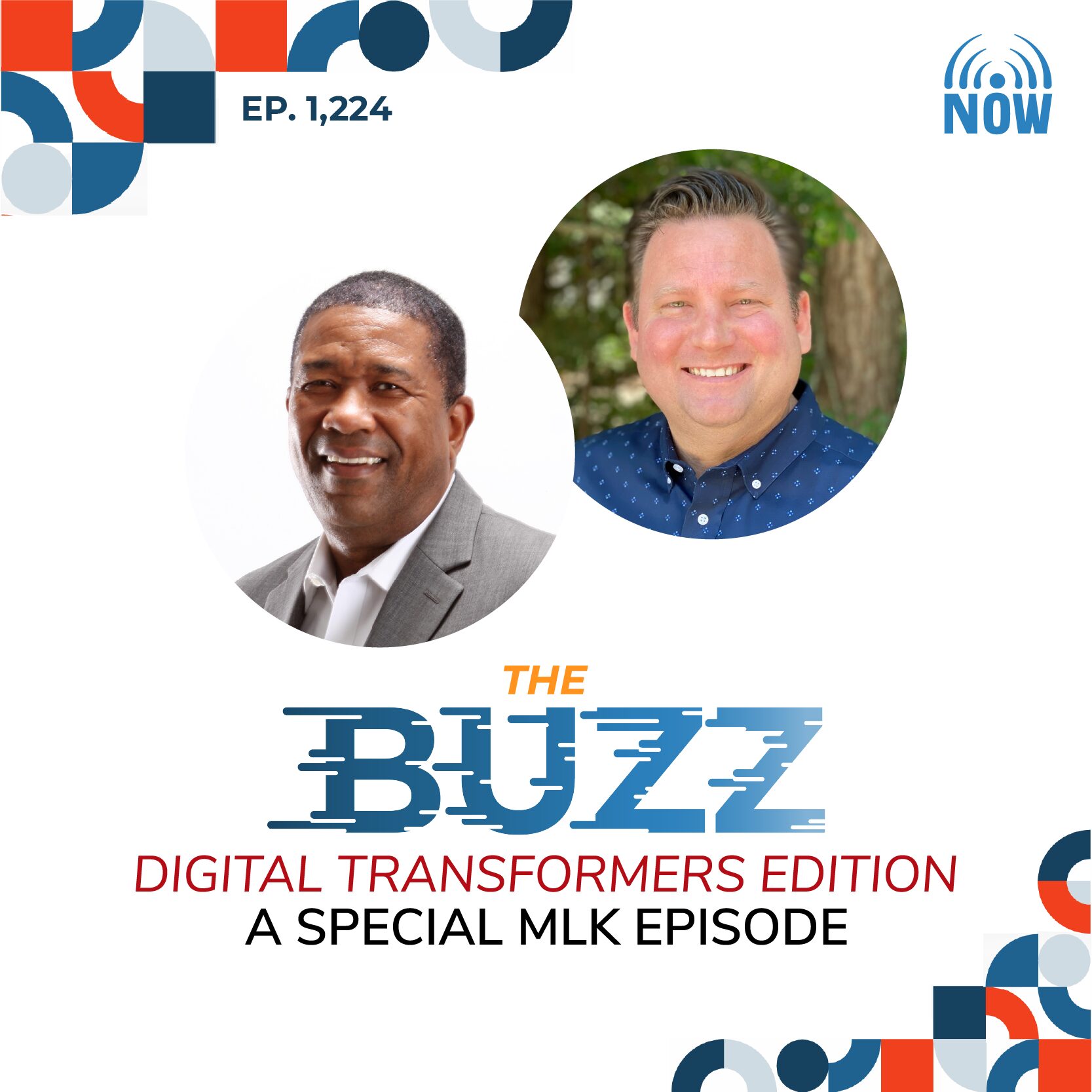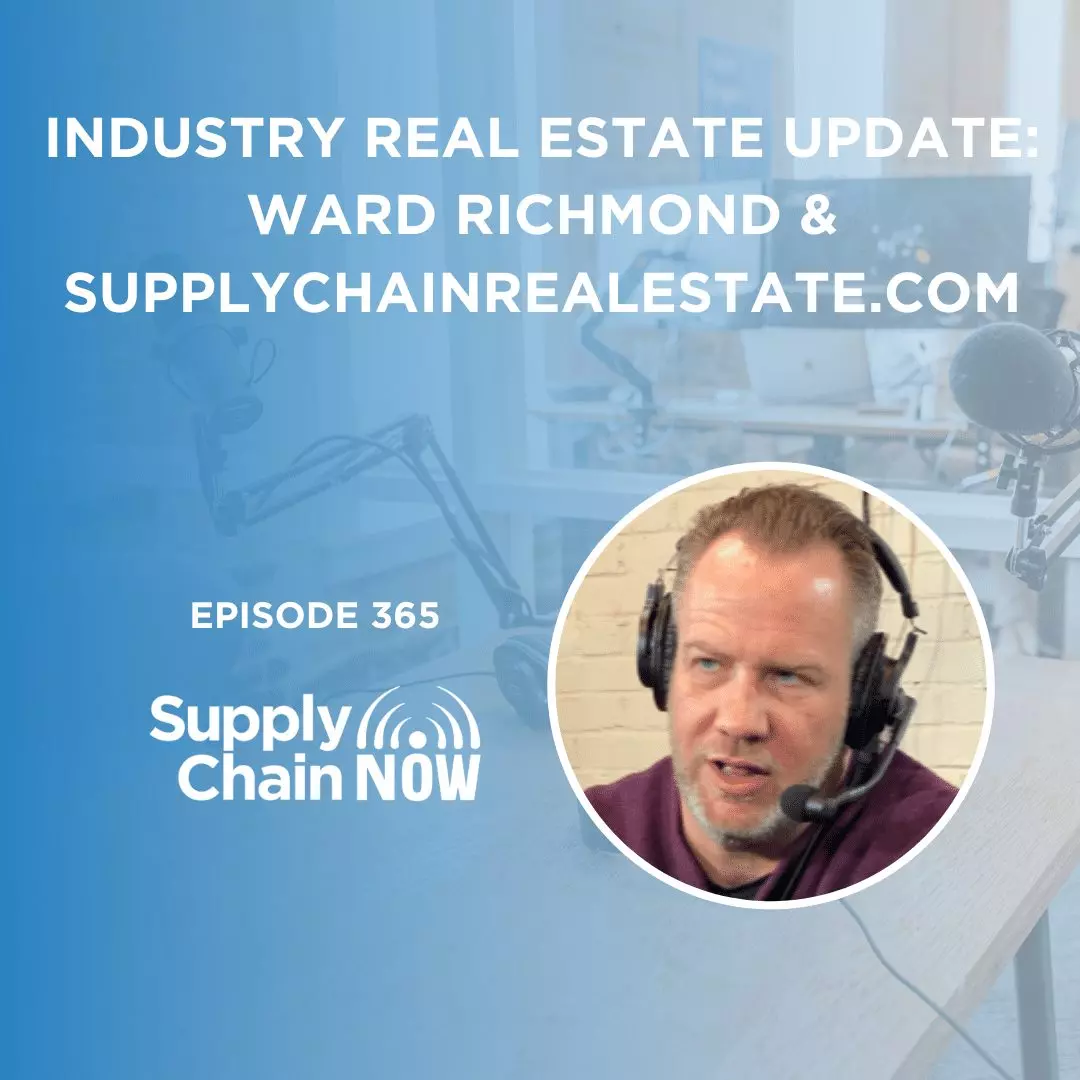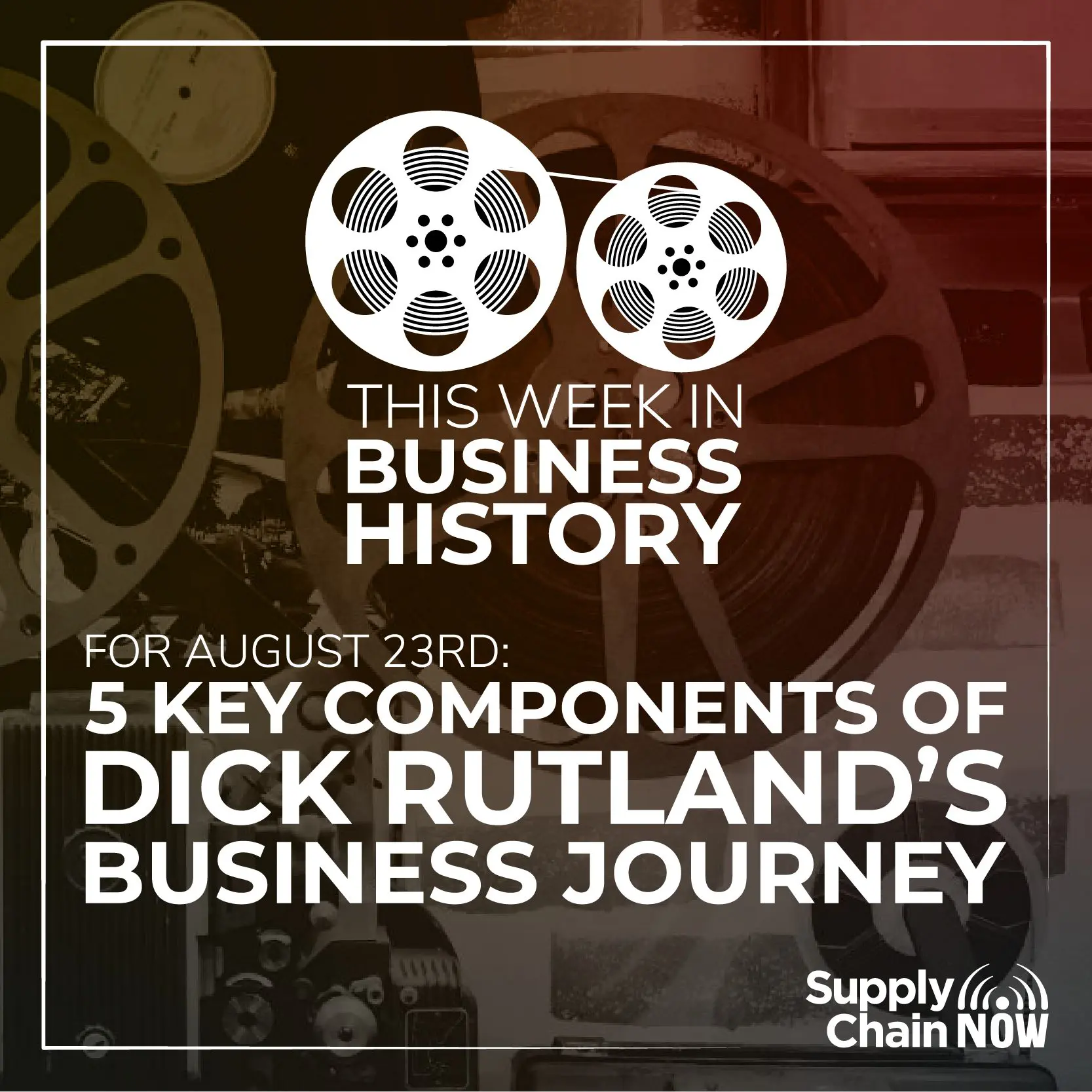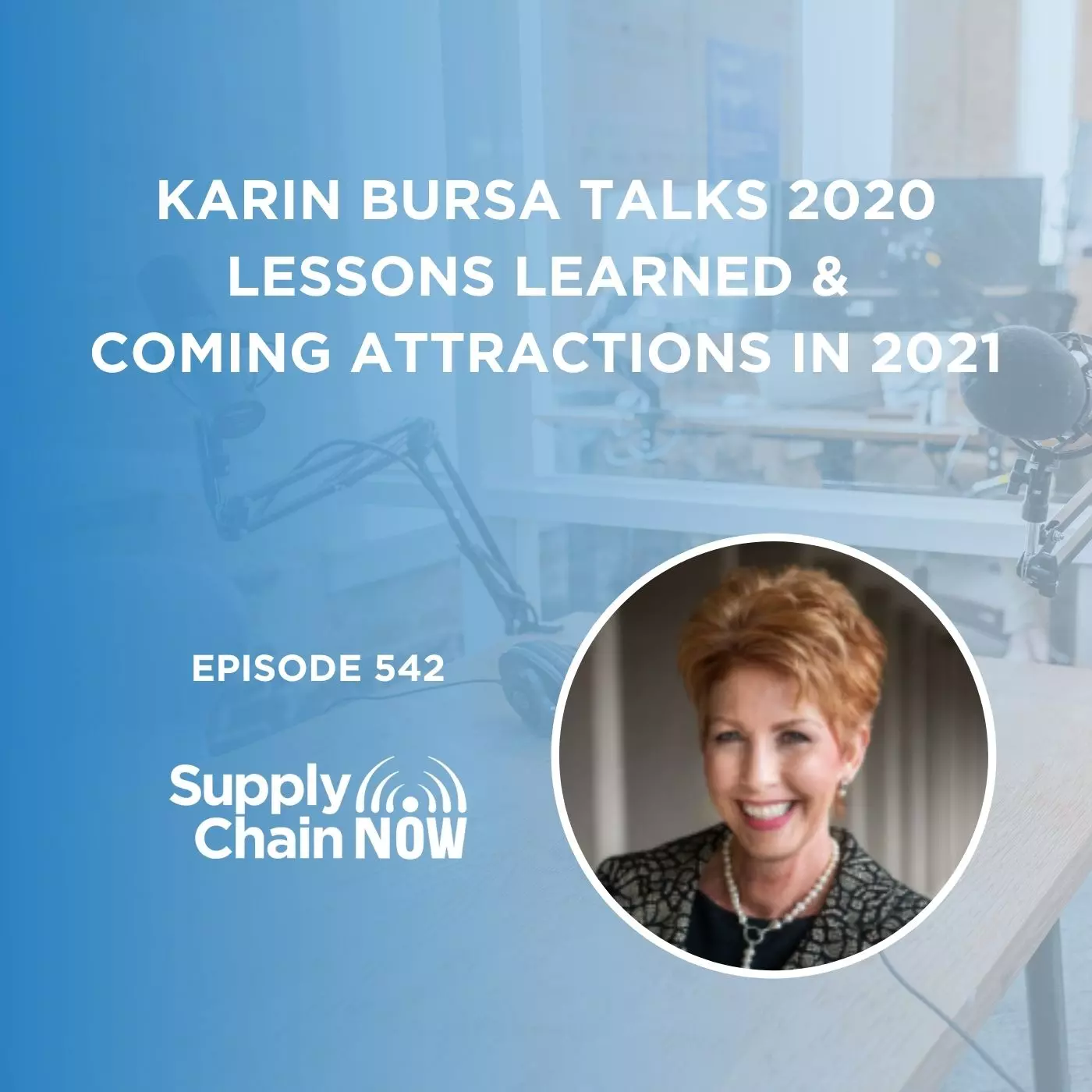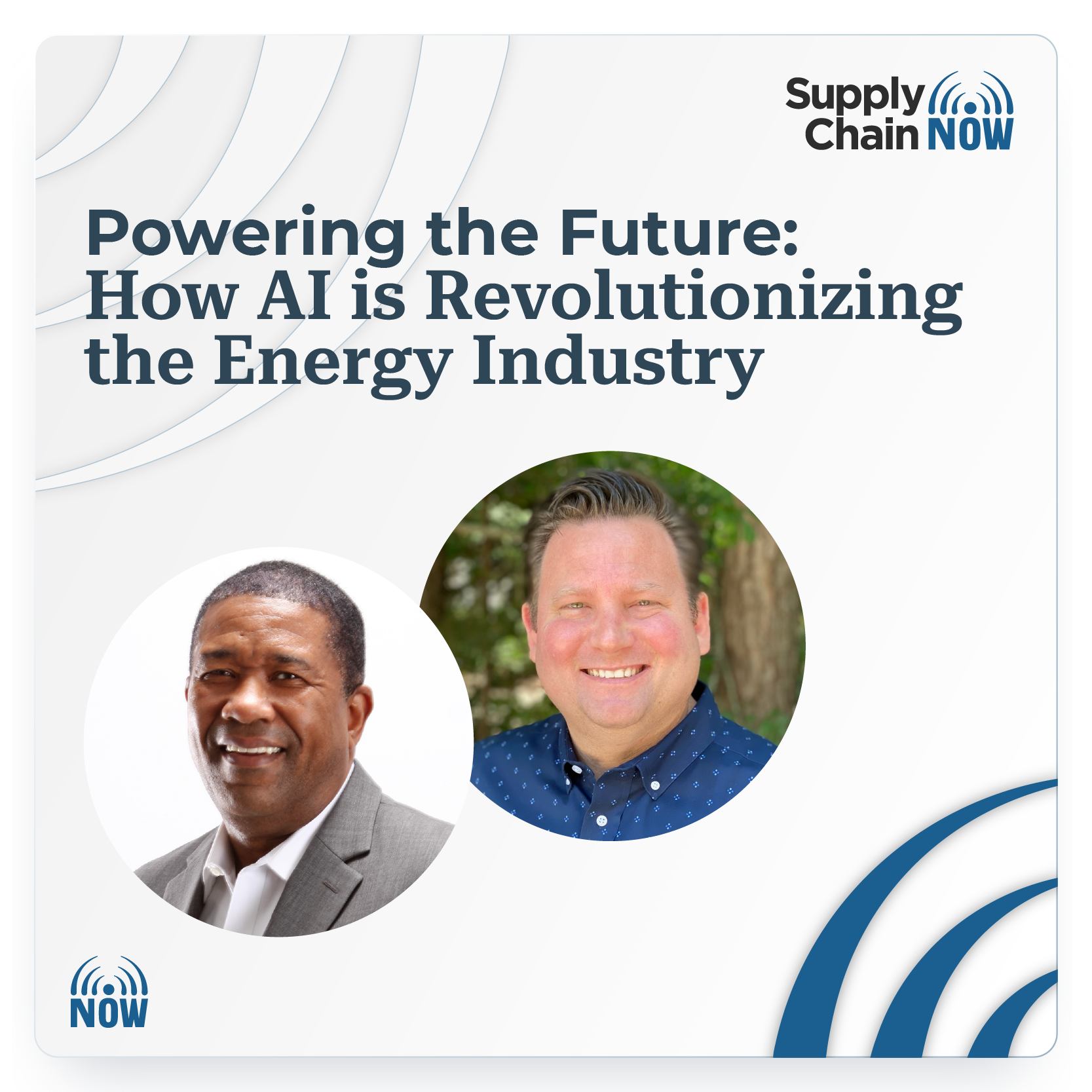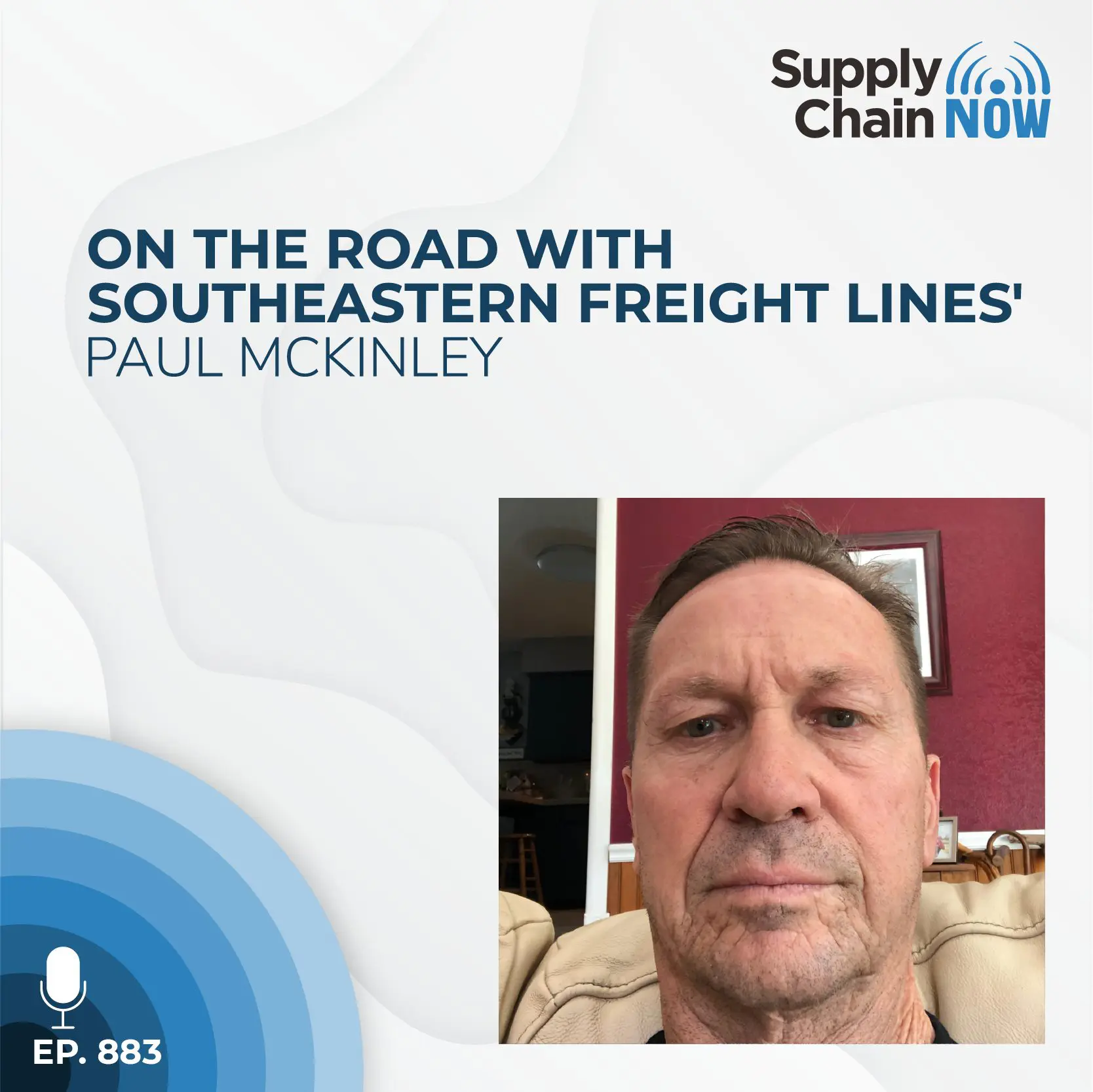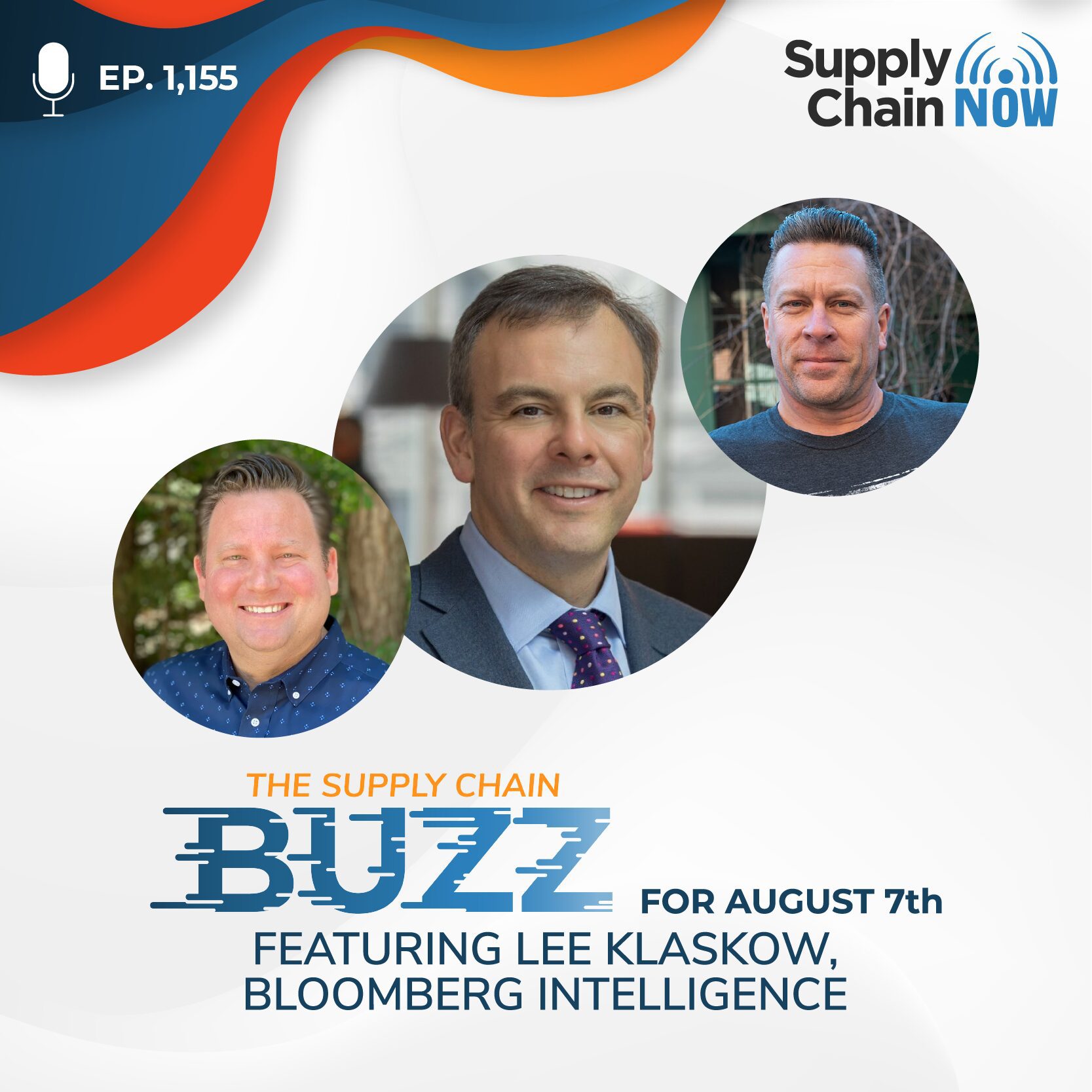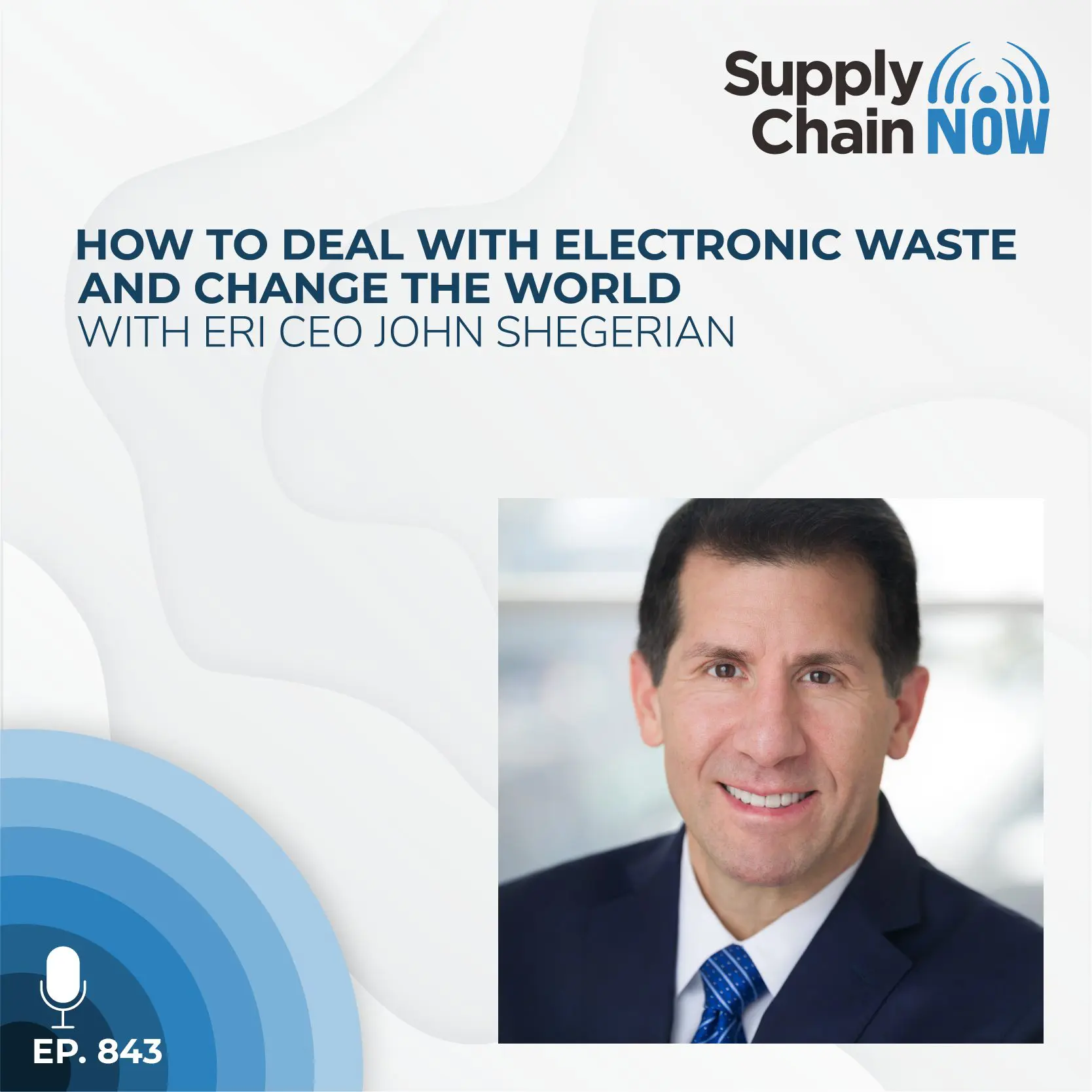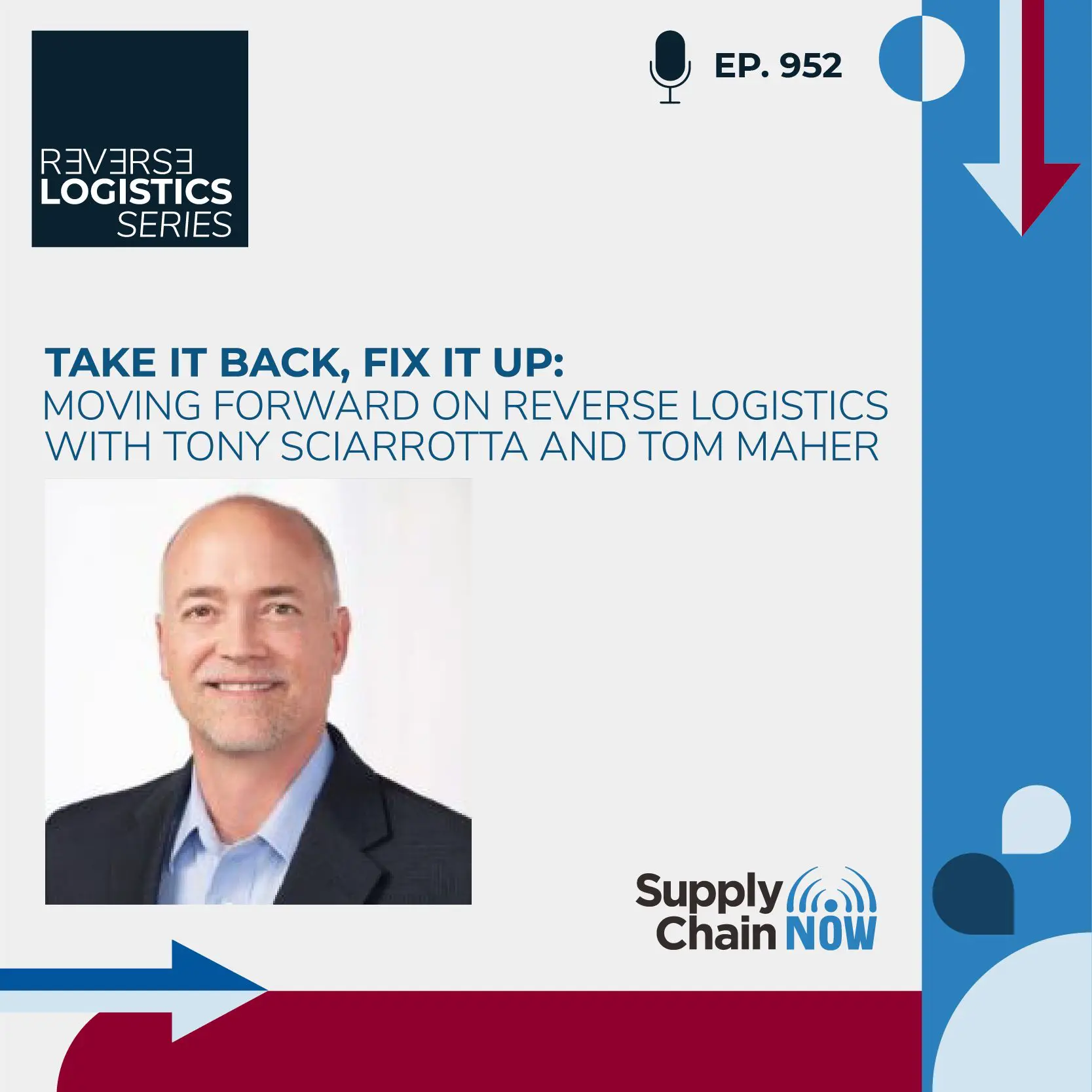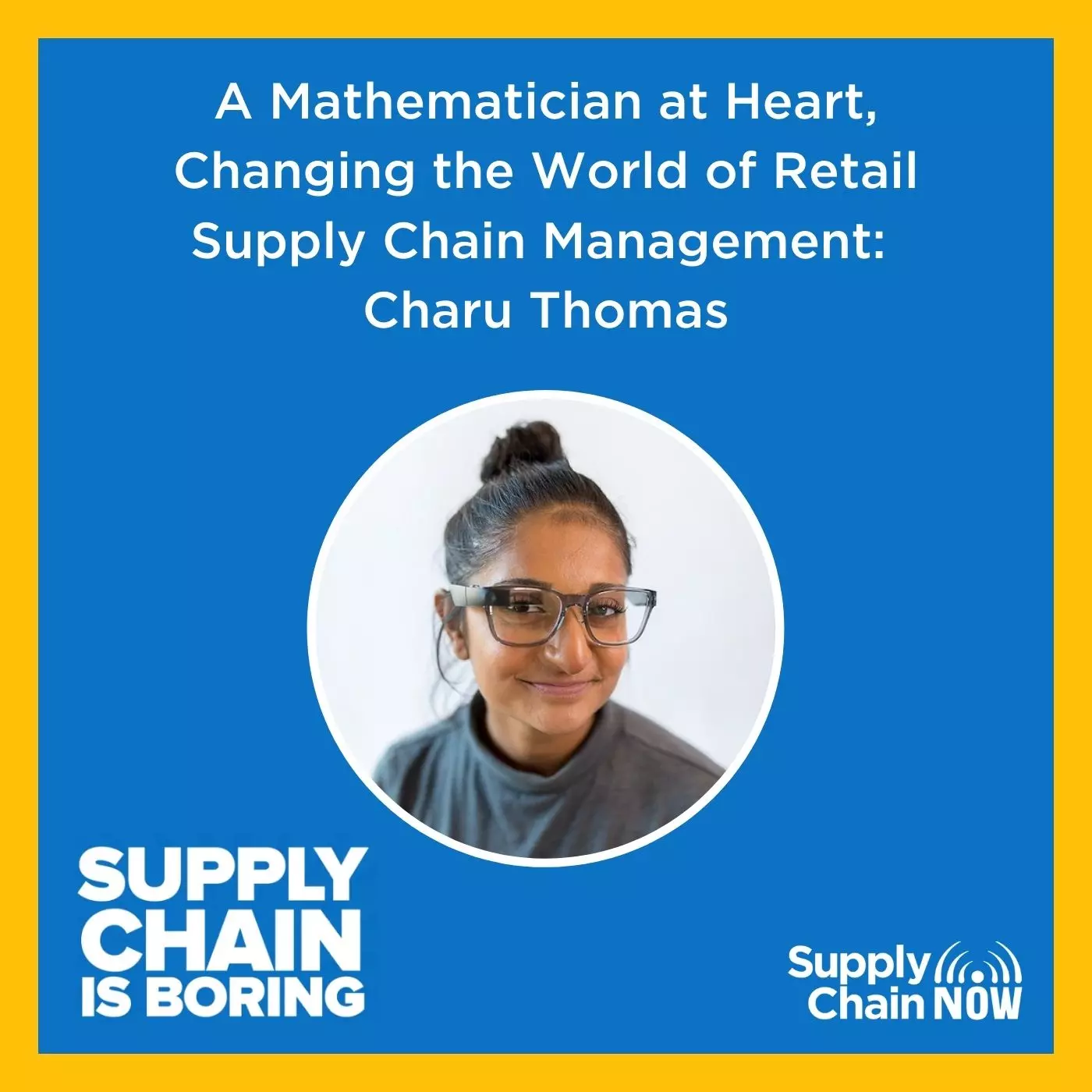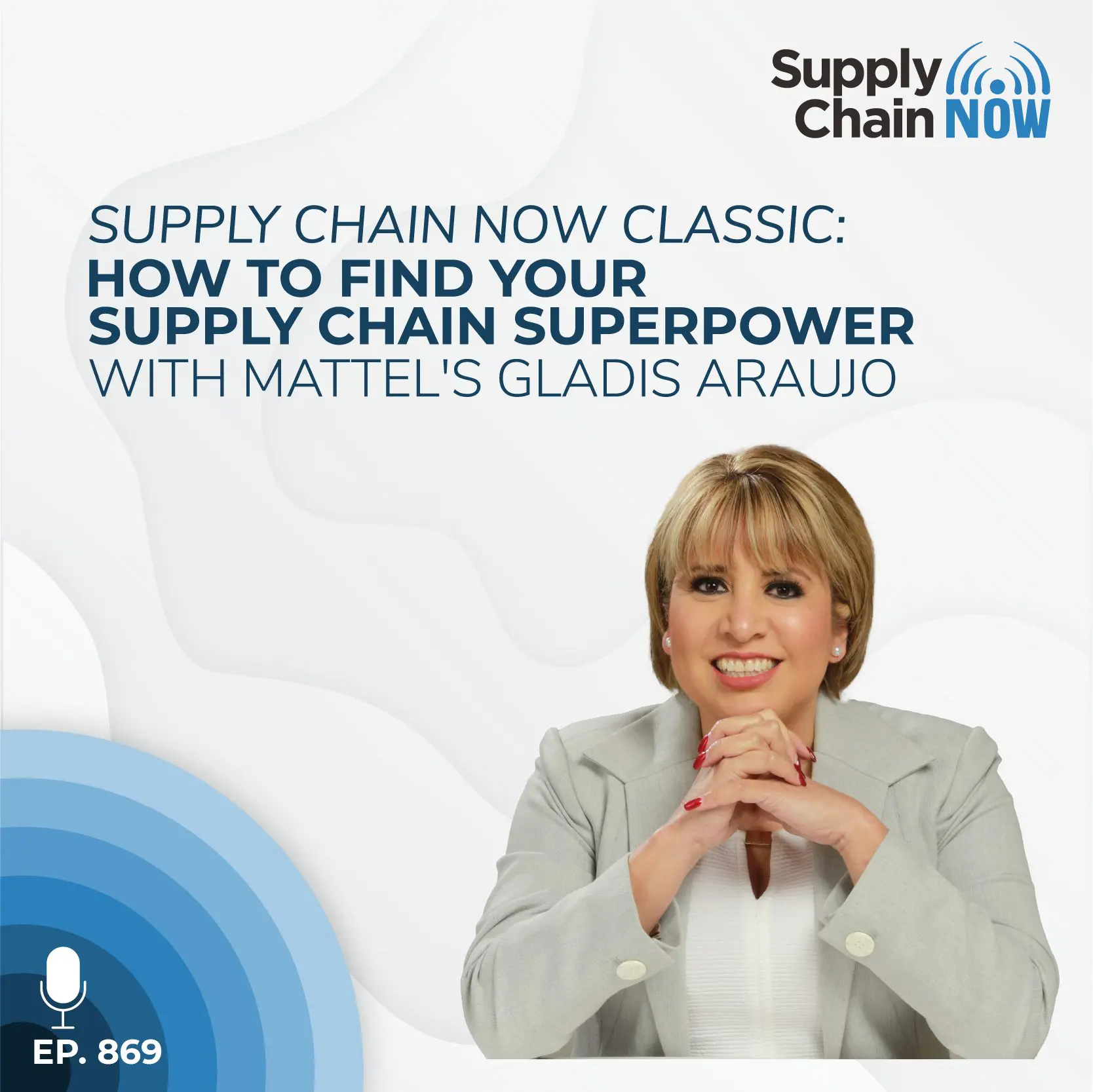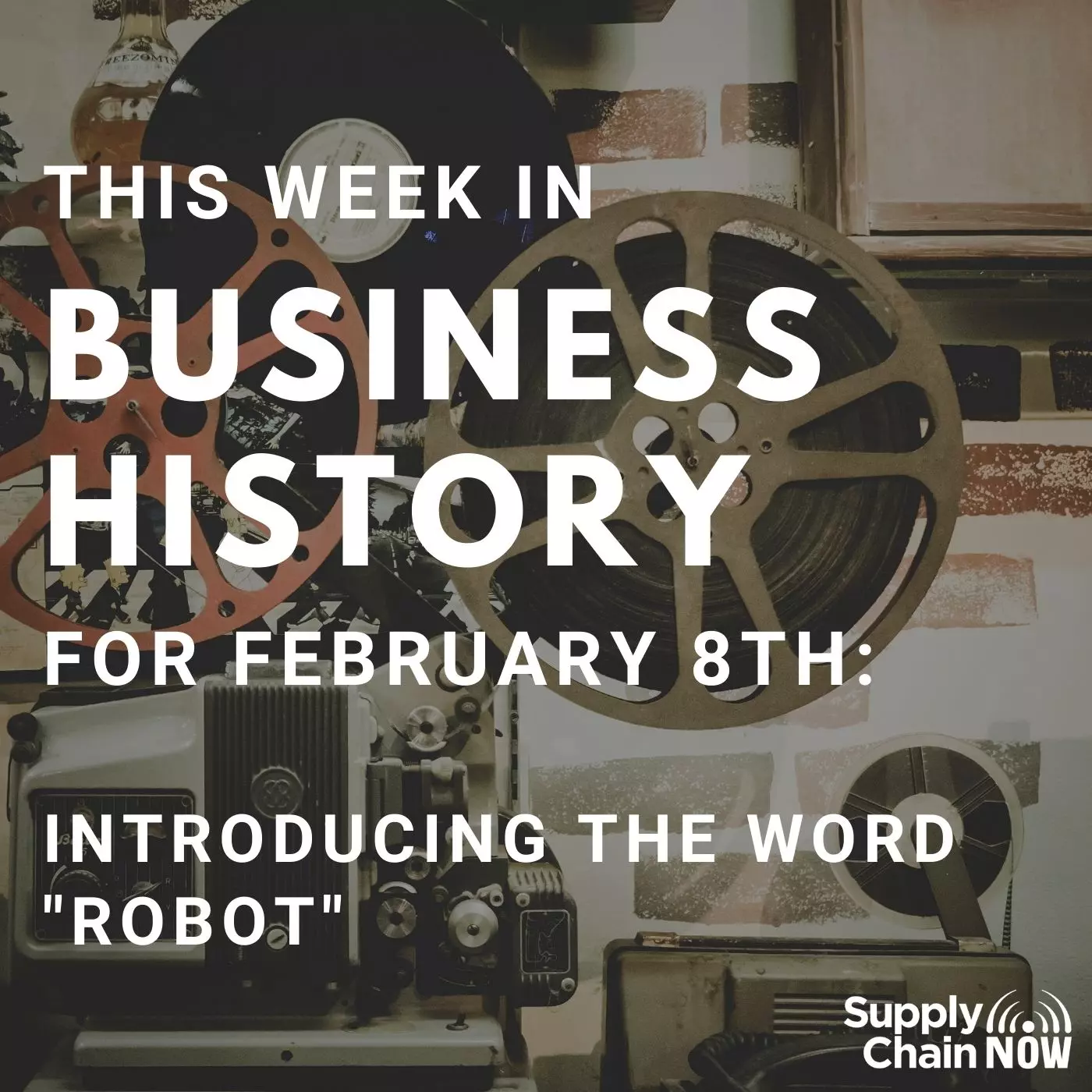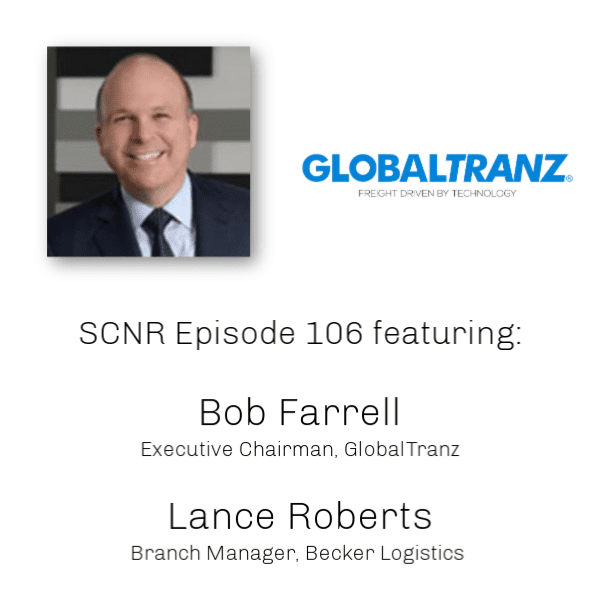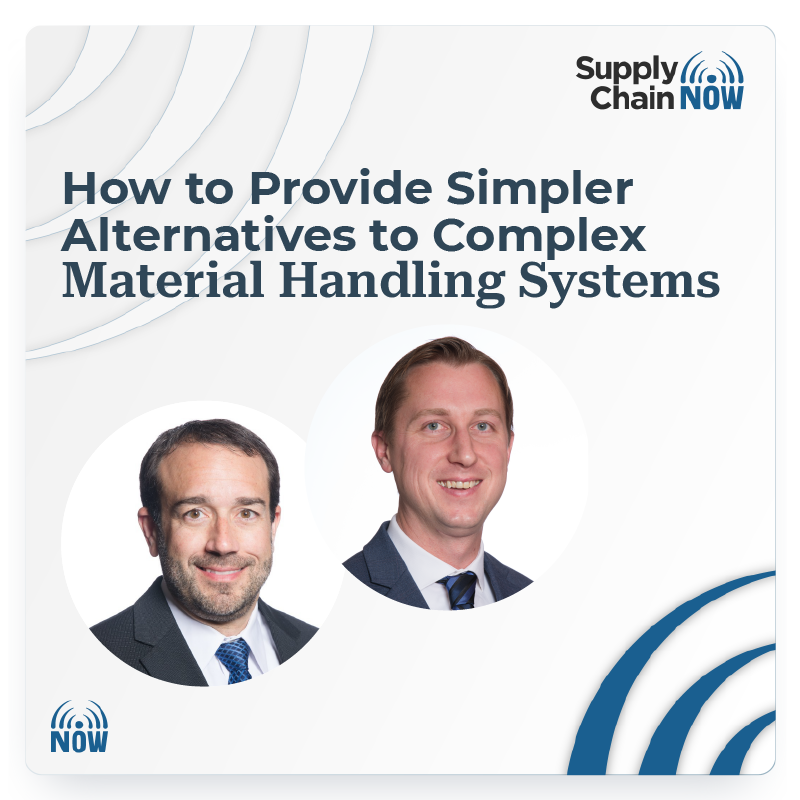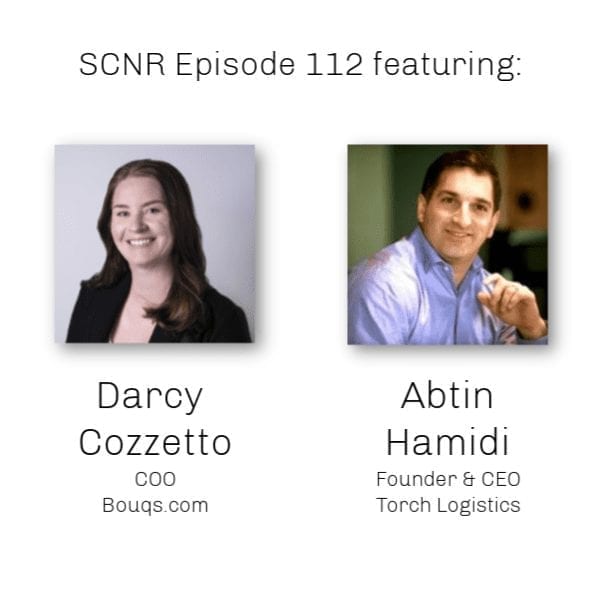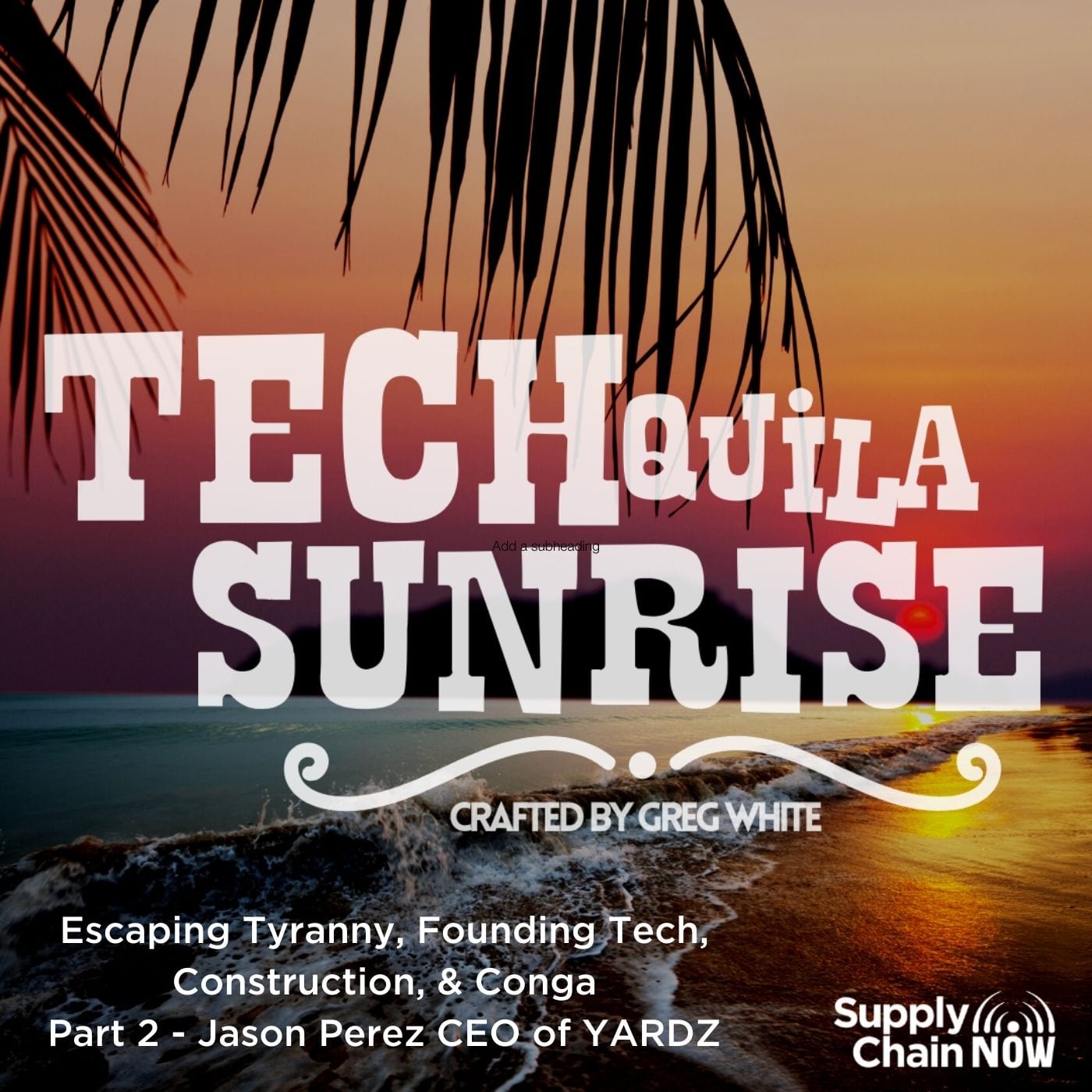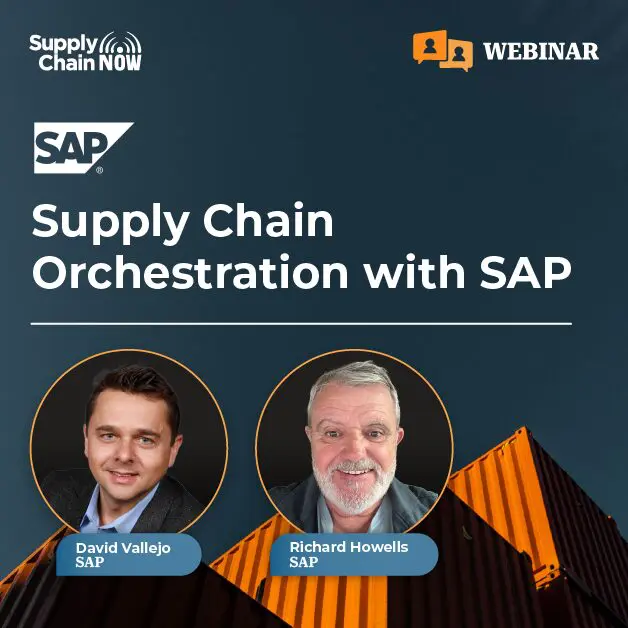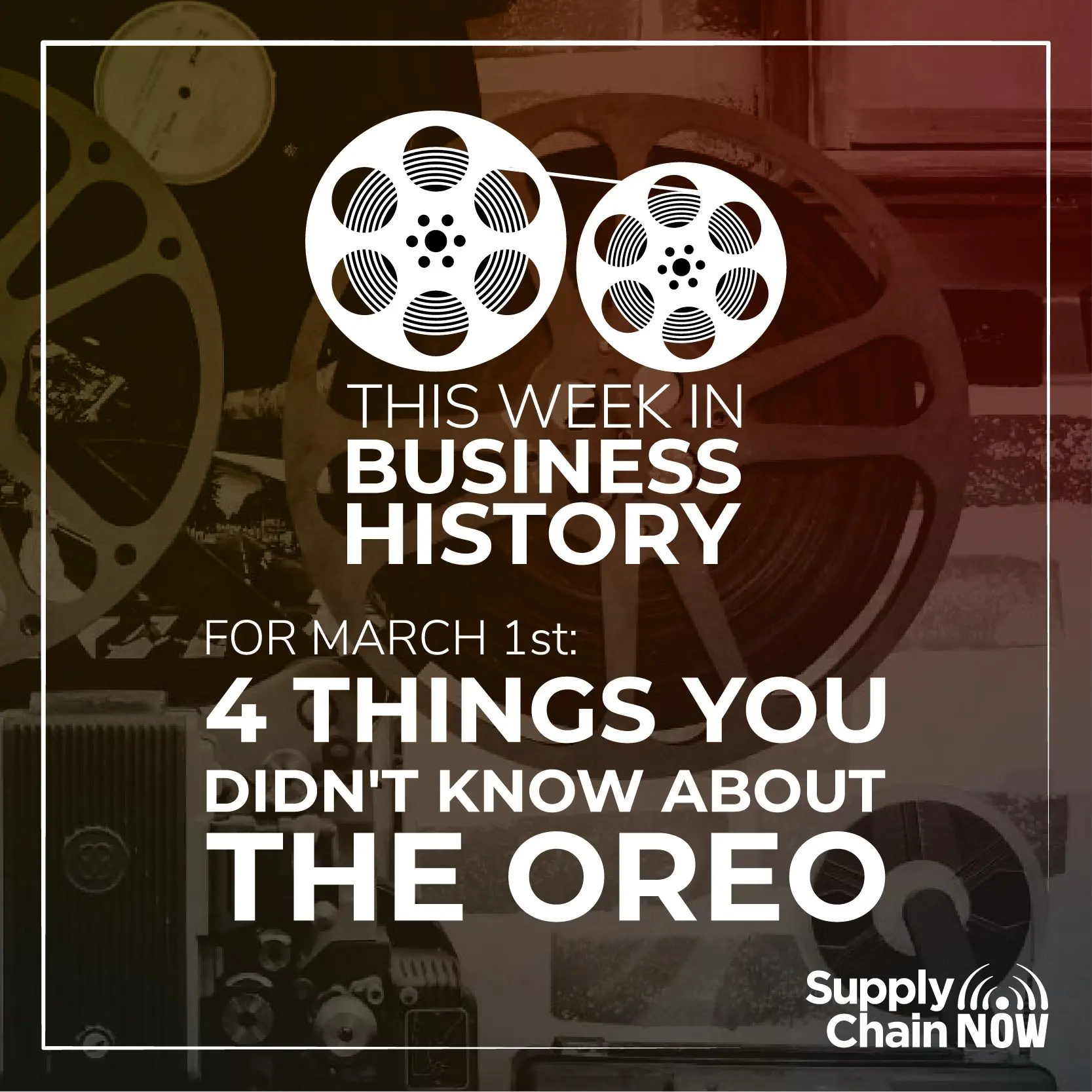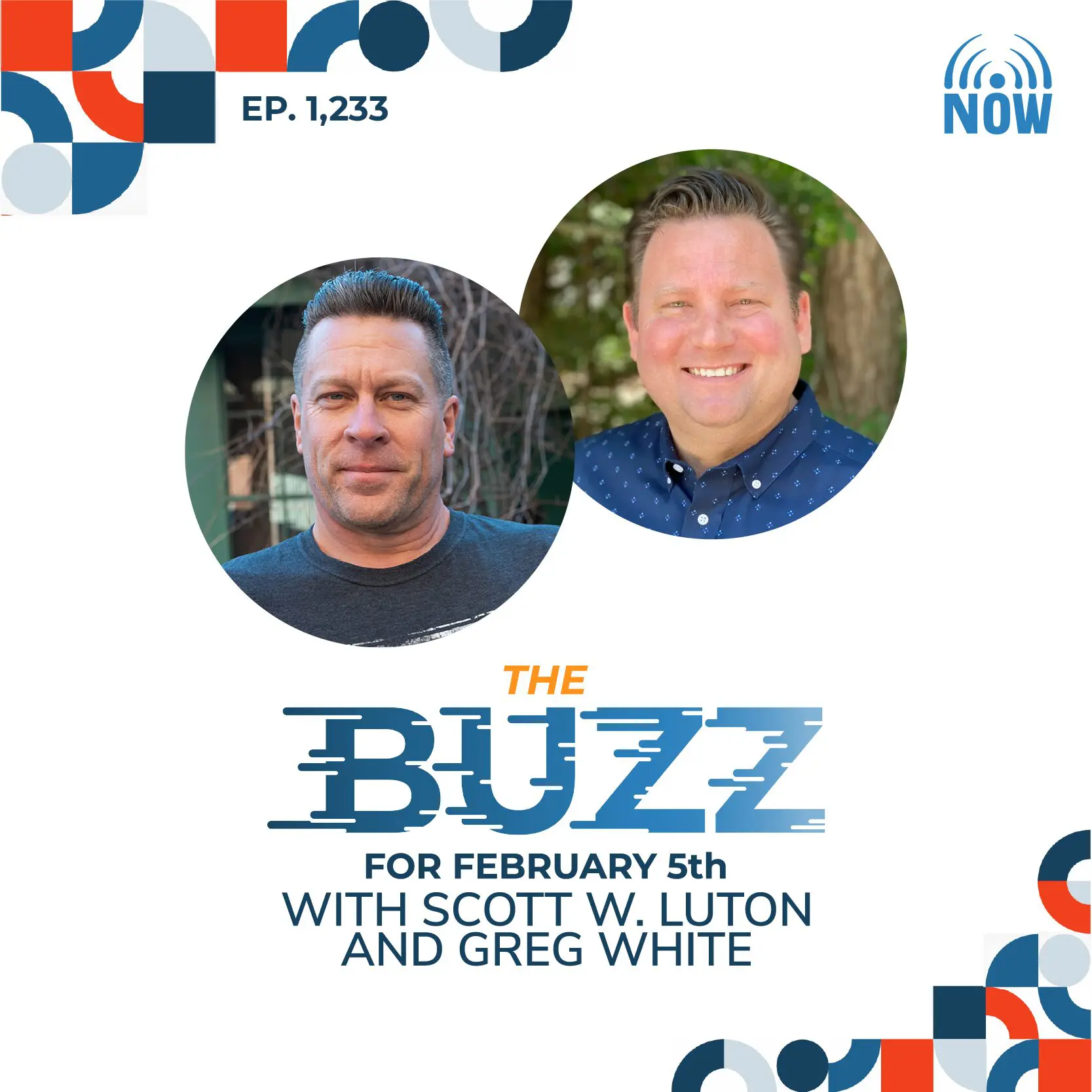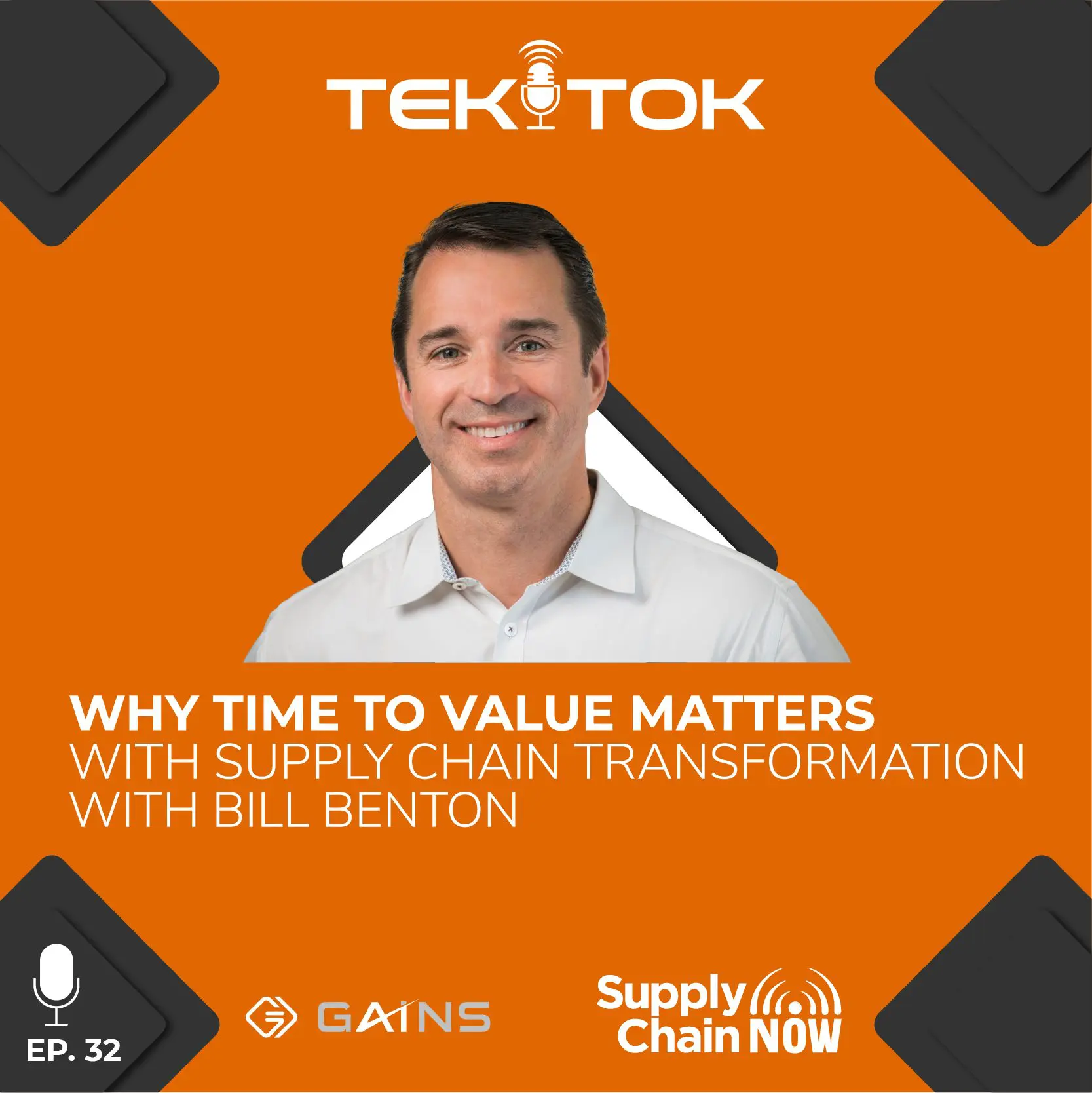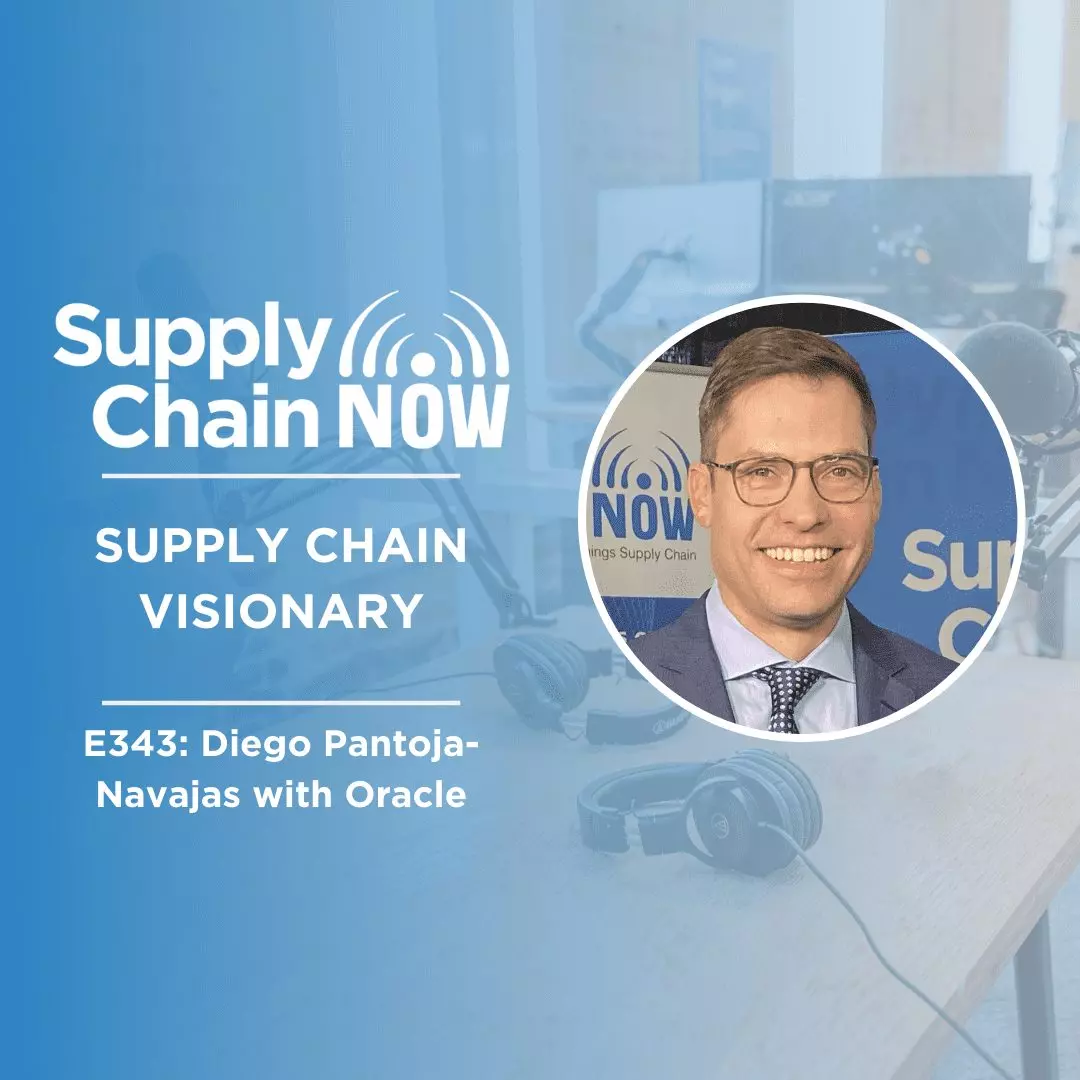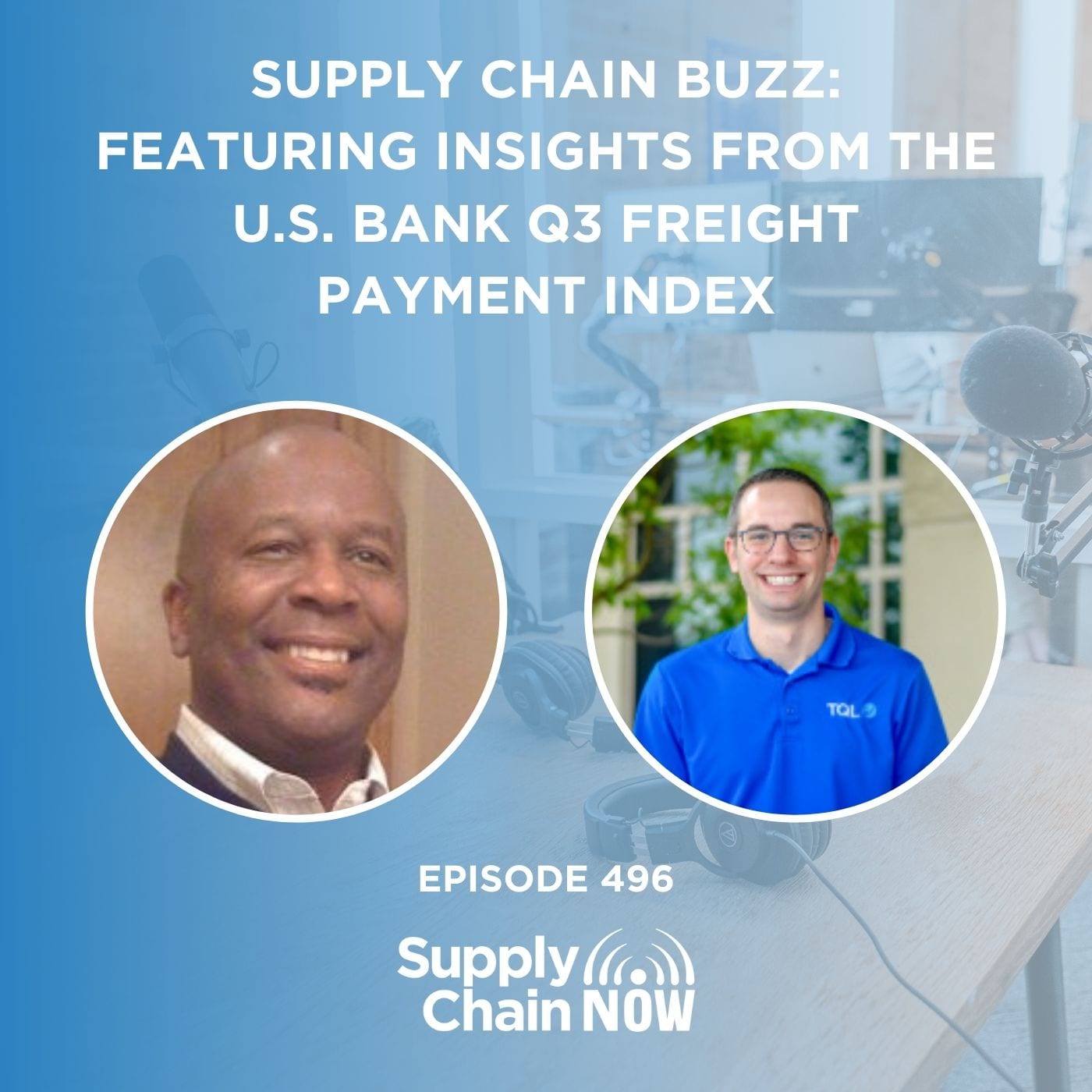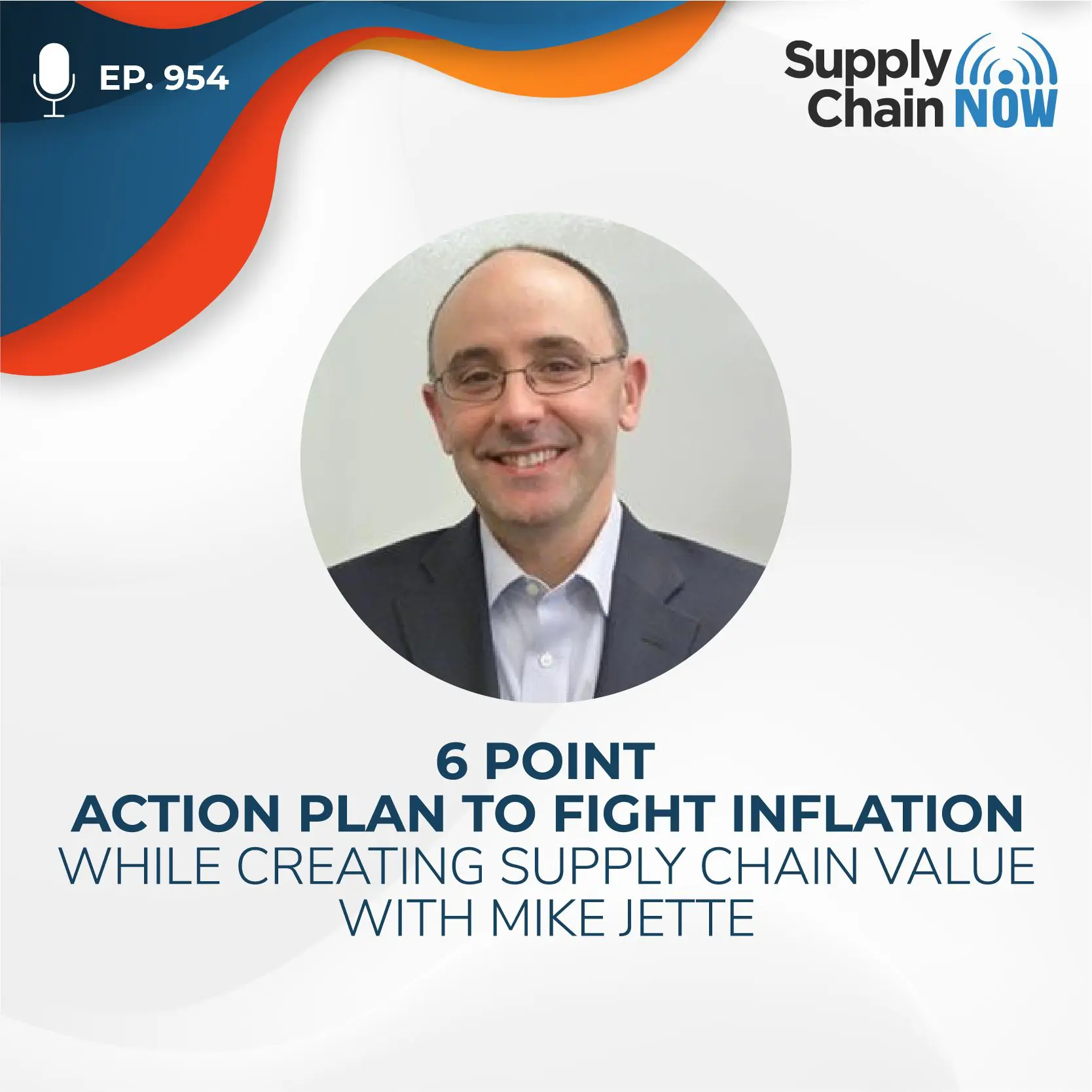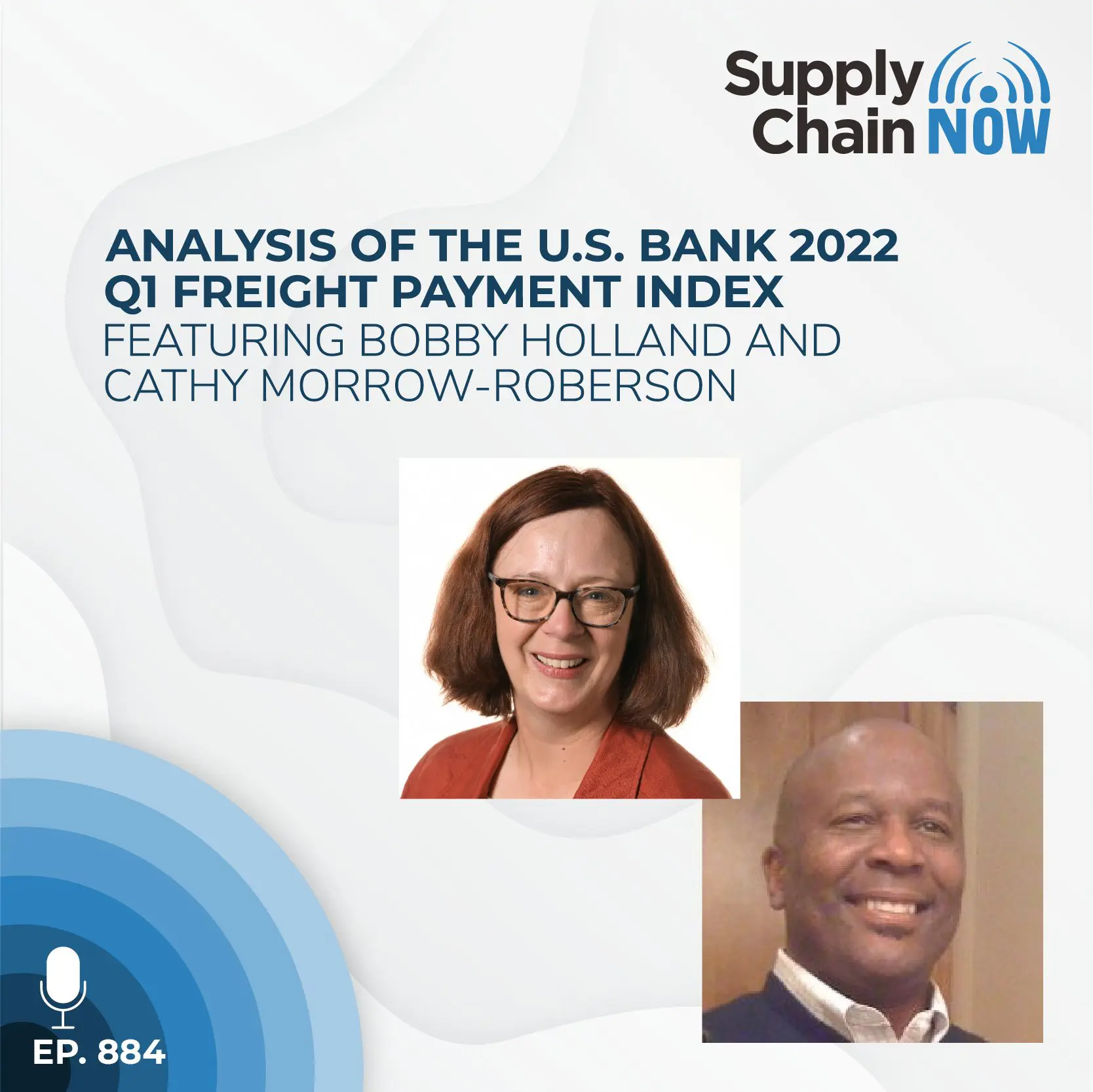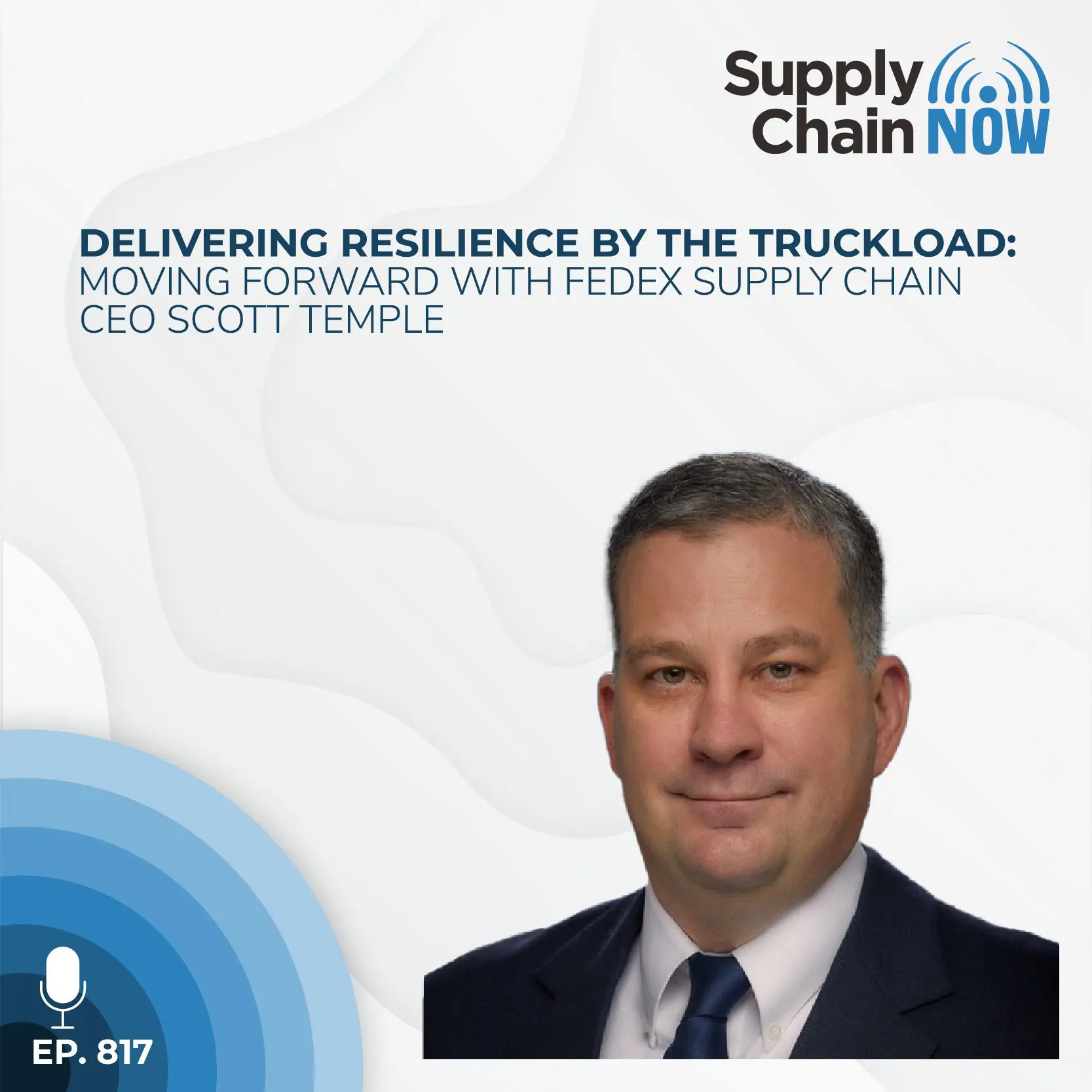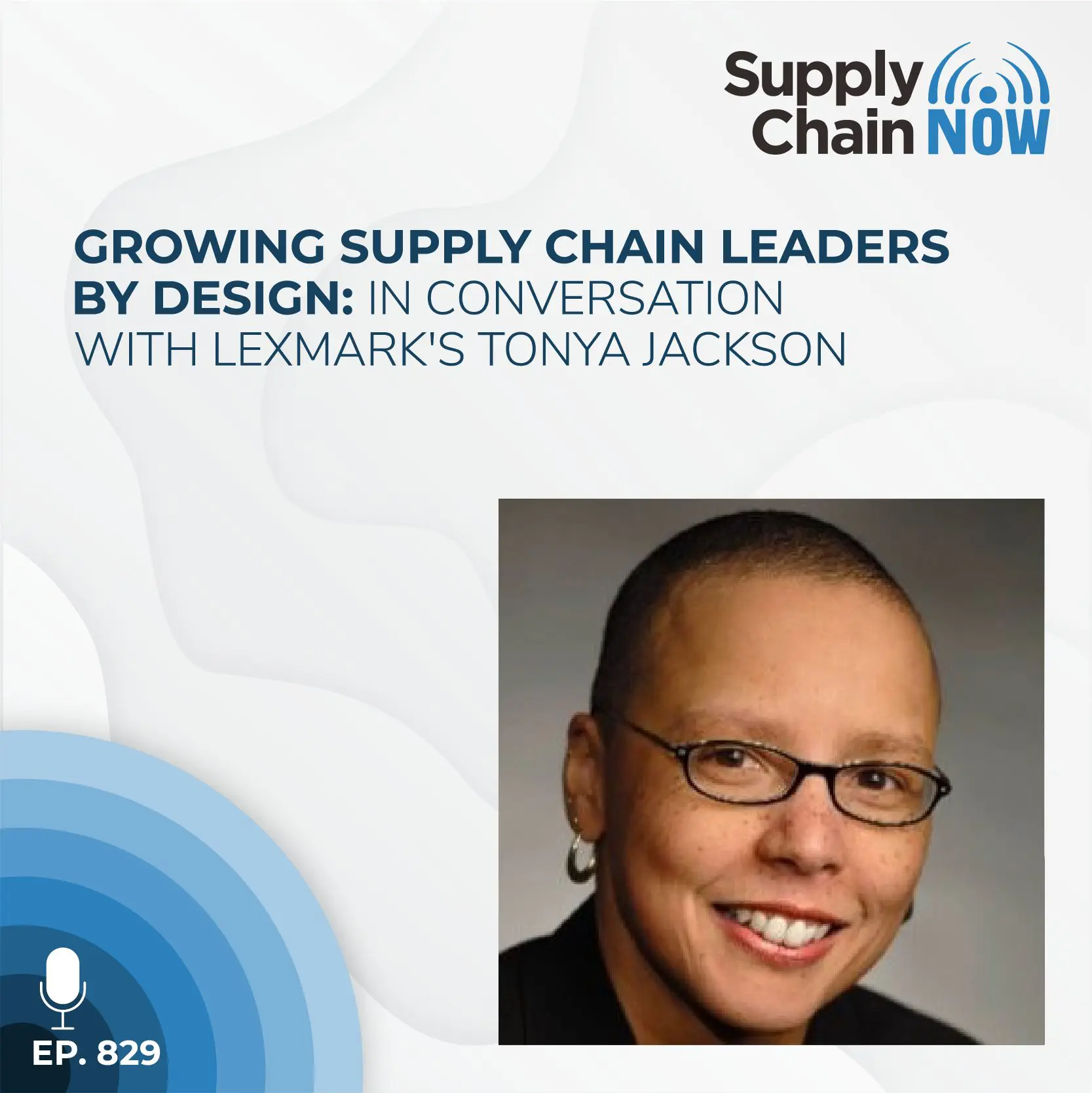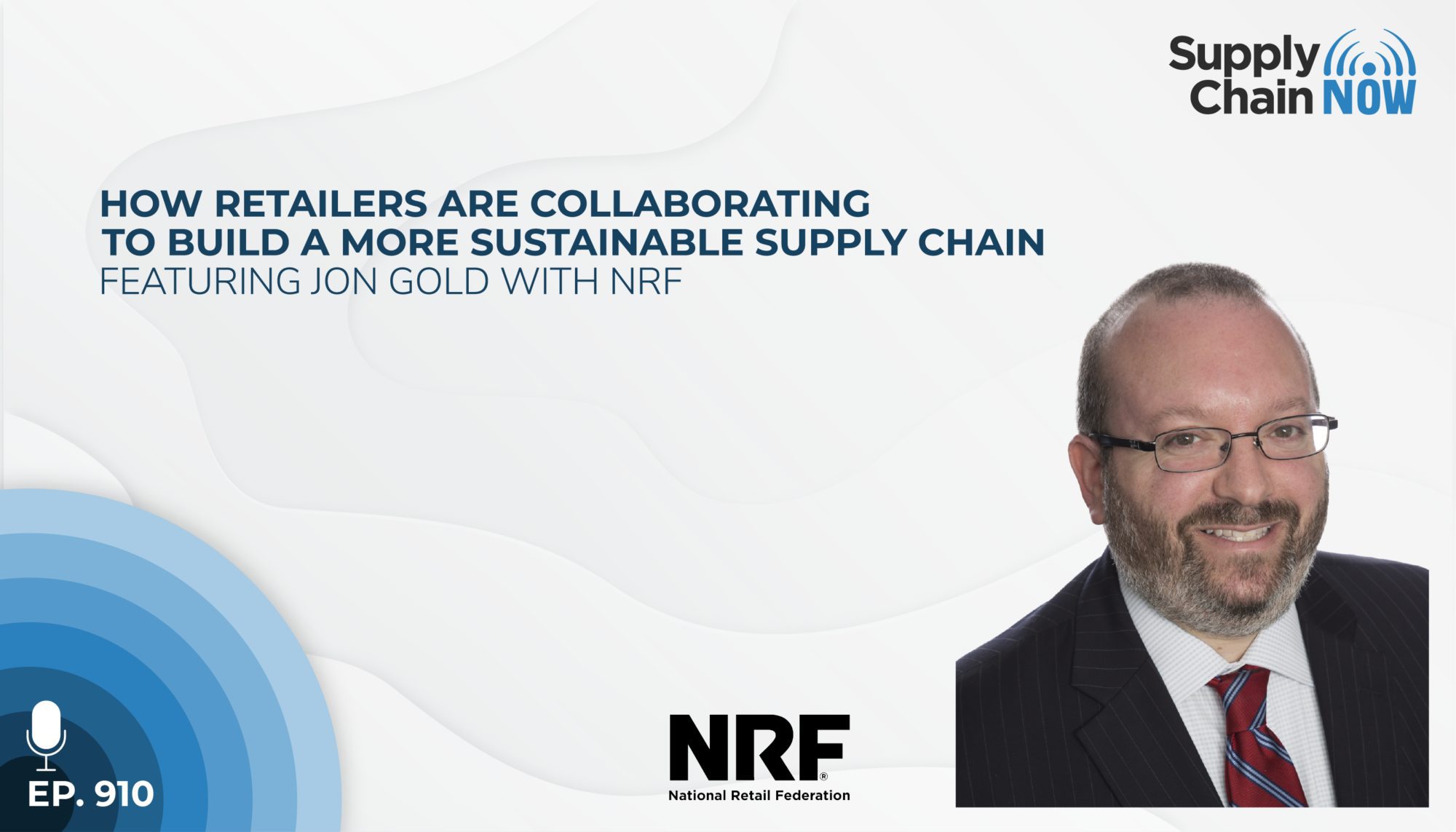
The favorite question is, when do we get back to normal? There is no new normal. There is no going back to normal, right? We've got to move forward with the new normal, and you know, talk about [...] resiliency. How do you build a more resilient supply chain going forward because we're going to have further disruptions? So what do we need to do to further protect the supply chain from start to finish?
-Jon Gold
Episode Summary
Retailers face all sorts of challenges as they move to diversify and future-proof their supply chains to withstand future disruptions. In this episode, Scott and Greg sit down with The National Retail Federation’s Jon Gold to take the pulse on current global supply chain concerns and discuss what retailers need to keep in mind as they take steps to become more resilient. Plus, find out everything you need to know about the first-ever NRF Supply Chain 360 event happening June 20-21 in Cleveland, Ohio — a can’t-miss opportunity to collaborate face-to-face with some of the best retail practitioners in the business.
Episode Transcript
Intro/Outro (00:03):
Welcome to Supply Chain Now, the voice of global supply chain. Supply Chain Now focuses on the best in the business for our worldwide audience, the people, the technologies, the best practices, and today’s critical issues, the challenges, and opportunities. Stay tuned to hear from those making global business happen right here on Supply Chain Now.
Scott Luton (00:32):
Hey. Hey. Good morning. Scott Luton and Greg White with you here on Supply Chain Now. Welcome to today’s livestream. Gregory, how are we doing?
Greg White (00:39):
I’m doing quite well. As you can see, I’m getting ready to be in a lineup. So, you know, 6’2″, 170 pounds.
Scott Luton (00:50):
What crime would that be, Greg? What crime would that be?
Greg White (00:55):
Golly. Being too lazy, probably. Is there a crime for [inaudible]? There probably should be.
Scott Luton (00:59):
Not in supply chain. No, it can’t be found in global supply chain.
Greg White (01:03):
That’s true.
Scott Luton (01:04):
Greg, I’ll tell you, today, we have got one of our favorite repeat guests back. We’re going to be featuring a guest, certainly one of the most influential voices in the retail industry. And, Greg, when we’re going to be talking about how retail supply chain leaders are taking lessons learned from these last few years to really transform their organizations into stronger, more capable, dare I say, more resilient supply chains, right?
Greg White (01:28):
There you go. Yeah, the R word. Yes. Take out fragility. And our secret guest – wait. We just announced who it is, didn’t we?
Scott Luton (01:38):
Have we let the cat out of the bag?
Greg White (01:39):
I think you did. I think you just announced it on Twitter. Yes. But I won’t say it here for those who are not Twitters.
Scott Luton (01:51):
You’re crying. You’re crying [inaudible] –
Greg White (01:53):
Let’s get started, man. There’s so much going on. And there has been so much to learn. And, you know, Jon works with – I would argue – the premier retail organization in the world to help retailers and their trading partners become so much better. And we’re going to talk about an event that is focused on supply chain, so exciting stuff.
Scott Luton (02:10):
We sure are. That’s right. And, of course, since Greg let the cat of the bag, we are talking about the golden voice of retail, Jon Gold, with National Retail Federation joining us in just a couple minutes, so stay tuned. Greg, we’re going to say hello to a few folks. Well, I see some old favorites in the comments. Some folks we hadn’t seen in a while, so we’ll get to that.
Greg White (02:31):
Easy. Let’s don’t say old
Scott Luton (02:33):
Well, I should say what? Historical?
Greg White (02:35):
Established favorites.
Scott Luton (02:36):
Established. Thank you. Thank you. Well, let’s talk about one quick event here before we get going. So, this has been an ongoing initiative that we’re very proud and partnering with our friends at Vector Global Logistics, Liberty Logistic for Ukraine. So, they have been meeting regularly with these working sessions with folks that have vetted needs in Ukraine, Poland, and elsewhere in Europe. And then, they also welcome in folks that have resources by means of getting things across the pond, as well as needed supplies to donate. So, we’ve already seen, Greg, several containers make their way across. Thanks to the good work here. So, if you’re so inclined and even if you’re not in position to give and donate and help out, come join for the market intel and a better understanding of what’s taking place Tuesday, June 7th at 11:00 a.m. Eastern Time. And the link to join is in the comments. Greg, comment there on what’s going on with our friends at Vector.
Greg White (03:30):
Champions of humanity, Vector Global Logistics, so, SCP, the Supply Chain and Procurement Award -Global Supply Chain and Procurement Award for that – and it’s just part of their culture. It’s great that they’re doing it. But as important as the impact and coordination they have with people on the ground in Europe to really convert all this activity into real, real action. I mean, they are really moving goods to those in need.
Scott Luton (03:58):
Well said. Well said.
Greg White (04:00):
Well, thank you.
Scott Luton (04:00)
You’re making an adjustment or two, are you?
Greg White (04:03):
Good news. As if I didn’t have – sorry. Hold on just a second, Scott.
Scott Luton (04:09):
Hey, these things happen.
Greg White (04:10):
No light. Yeah. I’m sorry.
Scott Luton (04:13):
It’s okay. These things happen.
Greg White (04:14):
Whole technical difficulty while on the road here.
Scott Luton (04:17):
We need those multicolored bars.
Greg White (04:18):
I look better in the dark, I think, right? A little orange but –
Scott Luton (04:20):
The good news here is regardless of whether we’ve got good light on Greg White or not, we’ve got a great guest joining us in just a second. But let’s say hello to a few folks.
Greg White (04:31):
Focus in the light on him.
Scott Luton (04:33):
That’s right. How’d you know?
Greg White (04:35):
That’s what I’m trying to do.
Scott Luton (04:37):
Katherine Hintz, and Chantel, and Amanda behind the scenes, our production team helping make it happen, big thanks to what all y’all do there. Vamsi – Vamsi perhaps – let me know. We want to make sure we’re getting everyone’s name right – tuned in via LinkedIn. Great to see you let us know where you’re tuned in from. Greg, who’s this guy?
Greg White (04:56):
Holy Mackerel. Oh, gosh. Kevin, you’re going to have to say it. But it’s possible to take advantage of an opportunity without being opportunistic.
Scott Luton (05:08):
Yes, that is right.
Greg White (05:08):
Something to that effect. I’ll never forget it. Never ever forget it.
Scott Luton (05:12):
Kevin Bell was one of our earliest livestream guests for what feels like seven years ago, but Kevin’s doing great legal work in the supply chain and other fields. Great to have you back. What a great guy. Hey, Grayson Gilbert is tuned in today from Kansas City, Missouri. Super excited to hear about super supply chain sustainability. I’ll added in there again. Great.
Greg White (05:33):
Super Bowl supply chain. Go Chiefs.
Scott Luton (05:36):
KCMO. Yeah, I didn’t realize that was an acronym until one of our last conversations with Grayson.
Greg White (05:42):
Oh, is that right? Okay. It’s one of those regional things.
Scott Luton (05:46):
Okay. Well, Grayson, hope this finds you well along with the James Webb of supply chain who’s joining us in a week or two. Brent Coleman is tuned in via LinkedIn. Brent, welcome. Let us know where you’re tuned in from. We love to make those connections. Man, I’m trying to keep up with all these comments here. Jonathan Wollschleager – Wollschleager, “Good morning from New Jersey,” via LinkedIn.
Greg White (06:09):
Everybody gets to pronounce their name any way they want, once they come to America, but Wollschleager would’ve been the traditional way.
Scott Luton (06:16):
Jonathan, thank you for joining us. Great to have you. Of course, Tim Ingram. Let’s Tim it up. Tim is with us here today. Love the good work Tim does across industry. Derek Byrd tuned in from Detroit, home with the Tigers and the Lions – and who’s the hockey team up there?
Greg White (06:34):
Red Wings.
Scott Luton (06:35):
Red Wings. And Tony Sheroda with RLA.
Greg White (06:37):
That’s right. And Kid Rock and Bob Seger.
Scott Luton (06:41):
Great city.
Greg White (06:42):
Marvin Gaye.
Scott Luton (06:43):
Really from Detroit?
Greg White (06:44):
Marvin Gaye.
Scott Luton (06:45):
Well, Derek, thank you for joining us here. Victor Prada is back with us. He’s joined us previous livestreams from Dublin.
Greg White (06:52):
Every time he joins us, I think, you know –
Scott Luton (06:55):
Good things.
Greg White (06:55):
– of, like, fashion. I always think of fashion, Victor Prada.
Scott Luton (07:01):
Great to see you, Victor. Jeffrey tuned in from Atlanta – hometown – and DFM Data. Good stuff there. Doing some great things across industry. Great to see you, Jeffrey. And Essodek – I hope I got that right. If I didn’t let us know. We want get everything right. “Hello from Dakar.” And he’s tuned in via LinkedIn. Great to see you. Thanks so much.
Scott Luton (07:21):
Okay. So, with no further ado, Greg, we’ve mentioned the outstanding guest we’ve got here, let’s bring in our featured guest, Jon Gold, Vice President of Supply Chain and Customs Policy at the National Retail Federation. Hey, Jon, how are you doing?
Jon Gold (07:38):
Hey, guys. Good. How are you? Good to see you.
Scott Luton (07:40):
We are doing wonderful. We’re doing so much better that, you know, we had it seemed like a smattering, Greg, where we had Jon Gold appear with was three or four times in the span of a year and some change, and it’s been too long. So, it’s great to have Jon back, ain’t it?
Greg White (07:55):
I was stunned as you guys were talking about that before we came on about how long it has been. One, it doesn’t seem like it, but then what does seem like it? And, two, yeah, it’s good to have you back.
Jon Gold (08:08):
Thanks. The days are all blending together right now. So, I think we’ve all lost track of how we’ve been. I don’t know anymore. By the way, when you guys were doing your intro, when you talked about, Greg, you getting ready for a lineup, you know, 6’2″, the first name that flushed in my head was Fletch in Chevy Chase. You’re getting ready to take the court, 6’2″, 6′ 8″ with the hair. The first thing that popped in my head.
Scott Luton (08:31):
I love it. I love it. Next time Jon appears with us he’s got to come live with us. We can’t let him wait in the wings for too long. That’ve been a great reference. But, Jon, great to see you here. And I should give a shoutout. Hey, Helmut, great to see you here. We’ve enjoyed our social back and forth. And thanks for joining our live with Jon Gold here. Okay. So, we’re going to start with the heavy hitting stuff, aren’t we, Greg White?
Greg White (08:55):
Yes, sir. The really important things. What we always open a Supply Chain Now show with is usually something about food or drink.
Jon Gold (09:07):
Why not?
Scott Luton (09:07):
Why not? That’s right, Jon. I’m with you. Why not? Life’s too short.
Greg White (09:11):
Well, I mean, think about it, what is more important for the supply chain to move than food and drink? Let’s stay on the food side today. I think we may have gone on the drink side earlier this week. There is a day for everything. Today is National Blueberry Cheesecake Day. Now, I don’t know if that’s your favorite. I’m curious what your favorite is. But you’re from New York, so you got to love cheesecake. So, what is your favorite and where do you get it?
Jon Gold (09:45):
I am a traditionalist when it comes to cheesecake. So, just give me a plain old piece of cheesecake, nothing on it, maybe a little dab of whipped cream, maybe a strawberry on the side, but I’m a traditionalist. I don’t need anything else in there. And I think any good Italian restaurant, you’re going to get a good piece of cheesecake as long as it’s homemade.
Greg White (10:02):
That’s true. And, you know, there’s so many ways to make it. Some people make the big fluffy stuff and some make the really, really kind [inaudible].
Jon Gold (10:08):
I want it thick. I want it dense.
Greg White (10:10):
Yeah. Yeah. Me, too. Big time. Yeah. You have to chew it. All right, Scott. So, we’ve heard from the top expert, but also I know you love a little bit of dessert. So, tell me where do you get your cheesecake?
Scott Luton (10:27):
Don’t out me, Greg. Yes. I do love a good dessert. And I’m not a traditionalist, although I love a good homemade whipped cream and plain cheesecake. I’ll go with that. But, hey, Amanda has really upped her game and she makes a wonderful Oreo cheesecake that our kids ask for very regularly. You know, if I had to pick one, really anything Oreos – I mean, who are we kidding here? – Oreo cheesecake would be mine from one Amanda Luton.
Greg White (10:53):
Oh, wow. He’s really kissing up, Jon.
Jon Gold (10:56):
I know he’s getting an extra piece of cheesecake tonight.
Greg White (11:00):
As long as it’s dense, I don’t care. If it has toppings, I prefer not. If it has toppings, not too much. I don’t like it when it’s, like, covered in sauce and that sort of thing. I don’t care if it has toppings, doesn’t have toppings. It’s cheesecake. It’s practically the greatest food in the world.
Scott Luton (11:17):
I’m with you. I’m with you. All right. So, we got two traditionalists and one intelligent cheesecake eater that likes Oreo. Just kidding. Just kidding. But, hey, Greg, beyond food, because I think we could probably talk cheesecake for the whole hour. We could probably talk Jon’s Miami Dolphins, not so much as New York Mets, because as a Braves fan, I got a weak stomach there.
Greg White (11:37):
I could see that was hurting you in the pre-show.
Scott Luton (11:40):
But where are we starting as we shift gears to the glorious world of supply chain, the good work NRF and Jon’s doing, where are we going next with Jon?
Greg White (11:48):
Well, I mean the pressures that have been on supply chain and particularly in retail, NRF’s clientele, have been in the forefront for two years plus now. So, I’m just curious, you guys, you’ve got this new event we’re going to talk about later, and you drive so much of the innovation and change and communication and collaboration in the industry. I’m curious kind of what role you all have taken over the last couple years as this has really impacted a lot of the retailers globally, of course, but certainly in your constituency.
Jon Gold (12:25):
Yeah. Thanks [inaudible]. I think our role in chief is to be an advocate for our members, but also to bring our members together to talk through the challenges they’re facing, and try and come up with some solutions, or offer the ability to have solutions, offer the ability for our members to talk to each other about what they’re doing, what’s working, what’s not, benchmark and collaborate. I think that’s where kind of we play our greatest strength is the ability to bring our members together and have those conversations. You know, whether it’s talking within the industry itself on what retailers can be doing better, trying to bring other of our providers in to have conversations, to have conversations directly with the ports, to talk about the challenges that retailers are facing, how do we work together to address those.
Jon Gold (13:04):
And then, looking at how are we working with our elected officials, so can you talk about the challenges that we’re facing, and what can be done in Congress or be done by the administration. You know, there’s not a lot they can do, but at least understand what’s at stake and what’s happening, and how they need to continue to keep the pressure on the key sectors to continue to work through the challenges, act as an honest broker to address these issues.
Jon Gold (13:27)
I mean, look, there have been supply chain challenges forever, but I think it’s been further exacerbated in the past couple of years. You know, we’ve always seen disruptions happen in supply chain and we’ll get together and say, “Let’s fix it. Let’s fix it.” We’ll have conversations. And then, nothing ever happens. They’re going to say, “Oh, everything’s back to normal. We’re good to go.” We can’t do that anymore.
Jon Gold (13:48):
The favorite question is, “When are we going to get back to normal?” There is no going back to normal. We’ve got to look forward at the new normal and talk about the big R that you were talking about, resiliency. How do you build a more resilient supply chain going forwards because we’re going to have further disruptions? So, what do we need to do to further protect the supply chain from start to finish? I think that’s where a lot of the focus needs to be right now is looking at, for the retailer, looking at your supply chain as a whole and figuring out the holistic view, is, are we aligned internally and externally with our partners to make sure we’re doing the right thing.
Greg White (14:26):
I think the thing that has changed, Jon, is not the disruption. Of course, the disruption of COVID was unforeseeable and long lasting and it exposed a lot of things. But I think that the exposure is, in and of itself, the thing that means we’ll never go back to supply chain for good and for challenge. There’s no more hiding in the shadows. Nobody goes, “What’s supply chain?” And yet, we now have this seat at the table, but it comes with an obligation when companies, public companies, are talking about supply chain in the same breath, and even in some cases in greater volume, than they’re talking about sales and marketing and profit, then you know that the lid is off, if you will. And that’s the part that will never go back to normal.
Jon Gold (15:16):
Yeah. I completely agree. And I think the issue is that, you know, it’s not just retailers talking about it, but it’s everybody who’s talking about it. It’s the importers, manufacturers, ag.
Greg White (15:26):
Consumers.
Jon Gold (15:26):
And consumers, yeah. At the end of the day, it’s the consumer that’s impacted the most, whether it’s the availability of the product or the cost of the product, because all the different elements of the supply chain have increased in cost. Some of the inflation we’re seeing today is because of the challenges we’re facing in the supply chain.
Scott Luton (15:44):
Yeah. You know, the White House, of course, has mentioned the word supply chain more in the last couple years than ever before. That’s a huge sign. But going back to the role –
Greg White (15:54):
Whenever politicians get involved, I get scared. But I have faith that Jon will keep them under control.
Jon Gold (16:00):
I mean, to that degree, have you ever heard the President mention supply chain during his state of the union?
Scott Luton (16:05):
Right. And, kidding aside to Greg’s point, these are good things. It’s good for industry. It creates more awareness. It’s going to help with the talent pipeline. It’s going to help fuel real innovation, find more resources to address some of the old and new challenges and all of that. One of the roles that I heard Jon Gold address with what the great work NRF is doing is someone’s got to fuel this dialogue. Blessed are those that can help facilitate dialogue amongst all the different stakeholders that are involved in global supply chain to drive the industry forward. You know, having the tough conversations, someone’s got to take that role. And I really appreciate what you, Jon, and your NRF colleagues are doing in that regard. And then, we’re going to touch on one of the ways you’re doing that on kind of the second half of the show with new events. But appreciate what you do. Greg.
Greg White (16:57):
To the point of government’s involvement, I think, Jon, you described it in the most effective way, an enabler, underpinnings, and an honest broker of those discussions and that sort of thing. And as long as we can keep it apolitical, where it doesn’t become one of those things where we try to gain favor by promising or even stating, or overstating, our knowledge as a politician of these things, then I think that is precisely the role that government should be playing in supply chain. So, I appreciate that perspective because that’s the whole thing.
Jon Gold (17:30):
Yeah. I mean, there’s no silver bullet to address all the supply chain challenges that we’re facing right now. But there certainly are some things on the margins that we can be doing better, that we need to be doing better. And I think there’s some legislation in Congress right now that we’ve been supporting that we think is a good first step. The Ocean Shipping Reform Act, giving the FMC some additional authorities to address things like detention and demurrage, which is costing, not just my members, but other stakeholders, millions and millions of dollars for issues that are beyond their control. And if they can’t move a container, why are they going to get charged a fee when it’s not their fault? I just don’t get it.
Greg White (18:05):
Yeah. That is patently unfair. I think everyone who doesn’t have a stake in the other side of the transaction can agree on that.
Scott Luton (18:16):
So, we’re going to get into more topics like that in just a moment. But, hey, really quick. I want to share a couple quick comments here from our folks in the cheap seats. Jonathan, going back to cheesecake -which reminds me, Greg, we didn’t get your favorite cheesecake – but Jonathan says, “Best cheesecake is from Eileen’s Special Cheesecake in New York City. It is amazing.” Hey, you got to prove it with samples, Jonathan. You got to email us some samples of Eileen’s Special Cheesecake. Naser is tuned in via LinkedIn. Naser, great to see you. Let us know where you’re tuned in from. And as we were kind of spilling over into global supply chain, Tim says, “Placing too much dependency on foreign markets, I’m not saying eliminate, but there’s a ton of room for improvement. Alternative markets need to be investigated.” Great point there, Tim. Okay. That’s going to be a great segue.
Greg White (19:00):
[Inaudible].
Scott Luton (19:01):
Yeah. It’s a great segue. Because, Jon, we want to pick your brain on some of the things, as we were talking really through the first part of the show here, to deal with current pressures, new things that we expect around the corner and a lot more, and to be better poised to handle those things coming at us, that future disruption coming at us around the corner. What are some of the things you’ve seen retailers do to create more resiliency, more sustainability, and more supply chain elements like that? What are you seeing?
Jon Gold (19:31):
I think, obviously the past couple years, you’ve seen more of a focus on supply chain from the C-suite than we’ve ever seen before. So, there’s a lot of pressure on the supply chain. I think first and foremost, it’s, you know, making sure you’ve got your ducks in a row internally, where previously you didn’t really have that. You didn’t have all the folks who touched supply chain really talking to each other and understanding kind of what the game plan was going to be. So, from sourcing, legal compliance, transportation, supply chain, warehousing, all the way through marketing, make sure everybody knows kind of what’s happening, what’s at stake, and where things are going. But trying to take a more holistic view of your supply chain as well and understand where the pain points are and where you can try to, I don’t want to say eliminate, but maybe smooth some of those out.
Jon Gold (20:20):
To Tim’s point on too much dependency in foreign markets, I think, certainly, even prior to COVID, retailers were looking at diversifying their supply chains and not relying solely on China. That started with the prior administration with the Trump tariffs when companies were looking to shift out and look away from China and look elsewhere. It’s a challenge because nobody has the capacity that China has and some specialty, so it takes time.
Greg White (20:49):
Accumulatively, the target –
Jon Gold (20:50):
Yeah. I mean, it takes time to further develop those markets. You can’t do it overnight. It takes months, if not years, to develop that. And you’ve got to go out and verify your new vendor is who they say they are, that can make what they say they can make, that can meet your specifications, but also meet any of the U.S. Government required testing for product safety and things like that. And, obviously, the challenge we’ve had throughout COVID, at least on the early part, was everything was shut down. You couldn’t go out and travel on a global basis and go out and do those things. I mean, you can only do so much via Zoom and Teams and livestream. You got to go out and actually physically see these things and do the testing. So, that’s certainly something we want to see improved. And, certainly, want to see more markets get opened up.
Jon Gold (21:36):
And folks be able to shift. A lot of folks say, “Well, why can’t you just bring everything back?” I mean, you can’t, unfortunately. You can bring some stuff back. Look, we’ve got a huge labor problem right now with what we have. You can’t fill the jobs that we have. So, there are challenges. But I think retailers are looking at that.
Jon Gold (21:54):
The other part of it, too, is looking at your vendors and providers. Making sure that your transportation provider and your vendors can meet what your requirements are. That you have a game plan going forwards, not just on being able to deliver the goods you need, but looking at all those other pressures you have on ESG. Make sure you’re meeting the sustainability requirements that are now coming down the pike. Making sure that your supply chains are free from forced labor. I mean, all these different pressures now that you’re facing that everybody has to have alignment on is really important.
Jon Gold (00:22:25):
So, you know, having those policies in place, but also looking at what technologies are out there to help you to achieve that, not only with just the internal and external communication, the better visibility throughout the system so you have, I don’t want to say early warning system, but you understand kind of what’s happening at any point in the supply chain, so you can course correct if needed.
Scott Luton (22:46):
So, if I can weigh in really quick, Jon. Greg, I don’t know if you’ve been keeping count. I think Jon just shared about 27 aspects that modern –
Greg White (22:55):
Current supply chain, right? Very complex.
Scott Luton (22:56):
Really. I mean, Jon, you just gave a master list of things that successful forward looking supply chain leaders are doing. Greg, out of what he just shared, I’ve got a couple of favorites on my end. But what are a couple things that our audience maybe should should key in on based on what he’s already shared?
Greg White (23:14):
Well, I think transparency is critical to understand all these things or at least have eyes on them, or to understand the potential risk and opportunity in these various aspects of supply chain are absolutely critical. Because every single one of them has the butterfly effect. It has the ability to impact that, which could impact something else and affect your resiliency. So, to me, that level of transparency is critical because if you think about it, the consumer has more transparency to their shipments from their retailers than many of those retailers have from their shipments from their own suppliers.
Greg White (23:57):
I mean, depending who the delivering carrier is, I can look at where my driver is, what their last stop was, what their next stop is going to be, and an estimation of the time of day that UPS or Amazon or USPS or whomever is going to deliver the goods. And I can also see when I buy, as a consumer, from my vendor, the retailer, whether they’ve got it on hand. And if they don’t have it on hand, when they will have it in stock again. So, that kind of transparency is certainly available. And we certainly need to take advantage of that.
Jon Gold (24:36):
And, Greg, to your point, you know, every kind of looks at that, I can track my shipment on UPS, FedEx, Amazon. I think it’s a little bit different because those are kind of closed loop systems.
Greg White (24:47):
Yeah.
Jon Gold (24:47):
So, they’ve got more control over once they have the product and they’re moving it. It’s everything that happens in advance of that, that we’ve got to figure out how to get more visibility and to understand when you can actually get that good to purchase it.
Greg White (24:59):
Yeah. I agree. I know that’s incredibly complex. I think the fact is, Jon, though the consumer doesn’t care that it’s more complex for those of us in the craft. They see it. It’s simple. And to a large extent, because we asked for this awareness, we are at the mercy of the greatest expectations. So, we now have the largest constituency as supply chain professionals that we’ve ever had and they know of us now.
Scott Luton (25:32):
The victim for [inaudible].
Greg White (25:33):
We’re stuck. We’re stuck. Whether it’s difficult or impossible or unreasonable doesn’t even matter anymore. We have to make it happen.
Jon Gold (25:41):
I completely hear it, yes.
Scott Luton (25:42):
A couple quick thoughts. “Where’s my stuff?” Greg, that’s the mantra. And then, a tweak on that, as Jenny Froome and I were sitting down with a supply chain leader from a well-known big time CPG brand. He said he and his team are always asking themselves, “Is it on the shelf? Is it on the shelf?” And I love that little twist on that mantra we’ve been talking about. The other thing I want to point out that Jon and also Greg, you’re both speaking to, for months, if not years, it’s no longer been about, “Yes. Do we need visibility?” The question is, “What technology? Who do I work with? And how do I make it happen?” And that’s what I heard Jon and you both speaking to there on that last part.
Greg White (26:22):
Yeah. No doubt. I mean, there’s no way to deny that it is tough to virtually impossible at this point. And, Jon, to your point, great point, these closed loop systems have created this expectation that now those practitioners that are out there who aren’t in closed loop systems and, in fact, are working in an incredible network web, whatever you want to call it, of sources and service providers and transportation networks and all of these sorts of things, they’re stuck. They really have to do it, whether they want to or not, because that’s become the great expectation. Don’t you sometimes wish we could just kind of go back into our dark hole and have people walk away from you at dinner parties when you say I’m in supply chain?
Jon Gold (27:11):
And I think, Greg, on top of the expectation, at least on some, is that you, I guess as the retailer, have visibility all the way back through your supply chain to where the resources came from.
Greg White (27:25):
Right. The raw material resources.
Jon Gold (27:26):
So, where material came from, which if you’re not a manufacturer, you don’t have that visibility, but now you’re expected to know that. So, you know, many retailers now are trying to figure out how do I go back to beyond tier one, tier two, tier three? How do I get back to tier six, tier seven, when it’s very difficult to do?
Scott Luton (27:44):
That traceability, that’s right. You know, one of the things when I was in metal stamping –
Greg White (27:49):
And some of that – sorry. Sorry, Scott.
Scott Luton (27:50):
When I was in metal stamping, we had a bad batch of parts and we had a very manual system, and you want to talk about how painful it was. And I was chosen to be the one to go back and trace it and make sure we get all the bad parts out of that to the side and quarantined. And, man, it was moving mountains. And, nowadays, with modern day technology and blockchain and many other revelations, I mean, the amount of traceability is going to be transformational and it’s going to allow the industry to attack things, like you said earlier, Jon, we got to make sure that these are ethically sourced raw materials that there’s no forced labor involved. And that that technology and, now, that commonplace visibility is going to allow supply chain leaders to do just that. Greg, you were going to add one more comment?
Greg White (28:36):
Well, to that point, it’s going to come down to the fact that we are going to discover the places wherein there is intentional obfuscation, where companies intentionally mislead their retailers or raw materials recipients, and things like that, about how goods are sourced or about how products are produced and that sort of thing. But there is a way to create that transparency that actually forces companies to reveal themselves as bad actors. We don’t assume ethicality. We make them prove ethicality. And if we do that, then we’ll have that six, seven layers of visibility, or at least we’ll know who appears shady and who is clearly not.
Jon Gold (29:25):
Yeah. And I mean, companies are looking at those different technologies now. Unfortunately, there’s no one single technology solution that’s going to fix that. There are different elements of that. And, again, it depends upon what industry, what works for cotton might not work for solar. So, I think companies are trying to figure that out right now.
Scott Luton (29:44):
Excellent point.
Greg White (29:46):
Nothing will ever work for diamonds. I mean, let’s face it, that is such a monopoly that will always be difficult.
Scott Luton (29:57):
So, really quick, I want to take a couple quick comments, and then Jon, I want to give you the opportunity to kind of finish out your thoughts in terms of what you’re seeing and what are some of the things that we need to see that you’d like to see. And then, we’re going to talk about Supply Chain 360, which is a really cool event, which really is going to be filled of these conversations the industry must be having.
Scott Luton (30:14):
All right. Really quick, TSquared, who holds down the fort for us on YouTube. TSquared, please tell me that we’ve gotten that gift to you. He had that trivia question not too long ago on a livestream a couple weeks ago. So, confirm that. And if not, we’ll fix it. TSquared says, “With the pandemic progressing with the four types of supply chain in theory, I’m really surprised that risky hedging strategy isn’t the prevalent approach taken now more than ever.” Interesting thoughts there from TSquared.
Greg White (30:42):
Rise and disappointed in some cases, T.
Scott Luton (30:46):
Ahmad, great to see you here via LinkedIn. Let us know where you’re tuned in from. Peter, we’ll check on the LinkedIn thing. LinkedIn can be kind of a tricky platform from time to time, but a lot of folks are logged in now. Amanda, Chantel, and Katherine, y’all check on that.
Greg White (31:00):
I’m sure we’ve already made the call. We have a direct line to whoever handles that in LinkedIn, it happens so often.
Scott Luton (31:08):
It’s in a red phone on the cheesecake container back over my left shoulder, Jon, the direct line to the bosses at StreamYard. And Tim says, “Consumers don’t know the difference between closed loop to open.” Excellent point.
Greg White (31:19):
Right. They don’t need to.
Scott Luton (31:22):
That’s right. Okay. So, Jon, we’re having a wide ranging conversation here, and I really appreciate your perspective. That’s the nature of what you do, and who you represent, and the solutions you are helping to facilitate. What else? Before we move on to the event we got coming up in June that promises would be a great one, what else would you add as you look to put a period on this segment? What else would you like to see?
Jon Gold (31:44):
I mean, I think in general, the technology issue is something retailers continue to work through, the technology through the supply chain. I mean, the pandemic really did force a lot of retailers to shift and move up technology investments that they had on the books for later on. When you look at things like, you know, curbside pickup, buy online pickup in store, going to more automated warehousing, all of that now is front of line for where retailers are making their investments to address the ongoing shortcomings that they’re seeing right now and the challenge that they face.
Jon Gold (32:14):
So, you’ve certainly seen a lot of the IT investment over the past couple years, where, again, that hadn’t been on the books, but had to get moved very quickly in order to respond to make sure that you’re doing things in the right way.
Scott Luton (32:26):
Greg, talk technology for a second as your final thought here.
Greg White (32:29):
Well, it’s critical not only to facilitating the sale, but also all of this transparency that we’ve talked about, I mean, we need those data connections. And, look, I hope we don’t still have to say this, Jon – and you probably hear from your constituency more – if you haven’t got technology until now, do it soon. I mean, you’re either going to run with the pack or you’re going to get run over. And it’s as simple as that. Especially because the supply chain is now in the forefront of everyone’s mind, you cannot try to do this manually. You are not better than the technology. You might be for a handful of items that you know really well, and probably are mathematically – frankly, I used to be this person by the way – easy for even technology to handle. But if you need to handle them, that’s good, because you can do very little damage with fast moving goods. But there is so much that is required for you to plan for, and preempt, and adapt to, and respond rapidly, and then subsequently change your process to support the future that you just simply can’t do that as a human being. And there is technology and intellect out there. Plus, the connectivity between enterprises is solely at the realm of technology.
Jon Gold (33:53):
This is why you need such a strong partnership between your CIO and your CSO, chief supply chain officer, they need to be in lockstep going forwards.
Scott Luton (34:02):
Excellent point. Excellent point.
Jon Gold (34:03):
I would bring the CFO as part of that as well. Make sure they’re all aligned because that’s how you’re getting [inaudible].
Greg White (34:08):
True. Yeah.
Scott Luton (34:08):
They got the money. They got the money. All right. So, let’s switch gears. There’s so much to tackle and we’ve got Jon for an hour, and I want to, first off, let me share the news about the event. Because this NRF Supply Chain 360, it’s the first event of its kind for NRF, June 20th through the 21st this year – right around the corner – in the home of the Rock and Roll Hall of Fame, Cleveland, Ohio, the home of the Dawg Pound, the home of –
Greg White (34:36):
Drew Carey.
Scott Luton (34:37):
Drew Carey. That’s right. [Inaudible].
Greg White (34:40):
Cole Noble.
Jon Gold (34:42):
The Guardians now.
Scott Luton (34:42):
That’s right. The Guardians now.
Greg White (34:44):
Yeah. That’s right.
Scott Luton (34:45):
The Cleveland Guardians for major league baseball. But check it out, we’ve got the link we’re dropping in the comments here. But, Jon, talk to us, let’s start with the why first. Because, you know, everyone knows the big show in NRF, which has been around for over a hundred years as we were documenting its history, all the other events virtual and in person NRF is up to. But tell us about why did y’all create Supply Chain 360?
Jon Gold (35:08):
Yeah. I mean, obviously, with all the attention on the supply chain, we’ve had supply chain tied to the big show the past couple of years, obviously being virtual made it a little more difficult. But we had a half-day seminar that we do on the back end of the big show. We’ve done other events and thought it was time to launch an actual in person event dedicated to supply chain. Because one of the things that we do is our networking and education, and thought this is the best way to do that. And with all the challenges that our members are facing right now, we thought the best way to do this was within an in person event where they focus really on kind of the key supply chain issues that we’re seeing right now that’s operational, IT, and sustainability. And you really need kind of all three to work together these days. They’re not solid anymore. When you think about the supply chain, it’s all three of those make up what you need to do. They’re so interrelated.
Jon Gold (36:02):
So, as we looked at putting this together, that’s how we kind of thought about the programming to make sure that they’re all kind of interconnected and kind of interweaved together with those topics and content. So, we’re excited. First time out doing an event like this and look forward. Thank you guys for supporting the event. And look forward to seeing everybody in Cleveland. And we’ll grow it as it goes. But right now with all the challenges that everybody’s facing, we think it’s important to come together and continue to talk about potential solutions going forward.
Jon Gold (36:31):
Part of my thing is, you know, let’s stop pointing fingers and sit down and figure out how do we come together and work out real solutions that are going to make change, and be lasting change, and prepare us for whatever is going to come down the pike. You know, you’ve got things like the Evergreen got stuck in the Suez, and then whoever thought we’ve have a boat stuck outside of Baltimore. The things you deal with all the time, but addressing things, like the pandemic, nobody would’ve expected had the pandemic going on for this long, and have this much of an impact on the supply chain. So, how do we learn from this? And, again, build better supply chains, more sustainable supply chains, more resilient supply chains, and those have to go hand in hand.
Scott Luton (37:13):
Excellent point. And, Greg, I’m going to get you to weigh in here a second. Hey, y’all check out the link. If you look at the speakers, they’ve got a lot of the usual suspects – I use that in a very positive way – you know, the Walmarts, the Best Buys, Walgreens, but then they’ve got a lot of retail supply chain leaders that maybe don’t get the platform as often. And that’s always where I find some of the greatest value in these types of events. So, I love that. Greg, as you heard Jon’s why there, and before we kind of ask him why should folks, beyond the obvious reasons, join to participate, what’d you hear there, Greg?
Greg White (37:43):
I think, you know, this is an inter-enterprise initiative. I mean, the supply chain is not your thing. It’s not a retailer’s thing. It’s not a manufacturer’s, a brands, a distributor’s. It’s not a raw material, sourcing provider. It’s not anybody’s thing. It’s everybody’s thing. And I think what companies need to come to the realization of is that the supply chain is the business. If you are a retailer, you really only have one job, and that’s deliver. Deliver what your customer wants. I mean, you can insert all kinds of qualifiers, like on time, in full, at the right place at the right time, blah, blah, blah, all of that stuff. But it’s really as simple as give your customer what they want.
Greg White (38:32):
And that’s true. I mean, if there is a commonality between enterprises as you go through the supply chain, it’s true, no matter who your customer is, whether they’re the consumer, or they’re the raw materials recipient, or they’re the brand, the manufacturer, the distributor, the retailer, or the consumer. It doesn’t matter. Everyone has the same job. And that’s the beauty of this because we all have a common why. We all have a common true north. And, yet, we all have different and varying economics around that dynamics of the aspect of the supply chain that we operate in, all of the what is on time and full. I wish that was as simple as the word stated, but people to make themselves feel better, I bastardized that.
Greg White (39:22):
But the real truth is that, we all can benefit from one another. So, an event like this, pulling retailers together and their trading partners together into this to talk about those commonalities, how we help one another, how transparency, and this common goal works to the common good, and the common wellbeing. Everyone does better. Everyone operates better. Everyone does more and better for the planet, humankind, all of those things, by coming together on these things. And I think what it will do is it will really highlight who are the true leaders out there.
Greg White (40:05):
I’m curious, by the way – I know this isn’t a scripted question – Jon, if there is any kind of initiative out there. And you don’t have to name whoever it is, unless you want to. But I’m curious if there are initiatives out there that really maybe surprise you with their greatness, or have really stood out to you as initiatives that either are, or seem like they could be impactful, or at least innovative.
Jon Gold (40:32):
I mean, I think there are a couple. I think right now the focus on digitization and transparency in the supply chain is critical. We know there are a lot of different initiatives that are happening with that, whether it’s the administration and their flow initiative. We’ve got a coalition that we’re working with called supply chain optimization and resiliency coalition, where we’re working with ASTM to try and set up some data standards to really kind of get a better understanding of the data you need to look at the supply chain. I mean, I continuously joke that we don’t have a common definition for a turn time at a port, is it the time the truck gets in line or the time the truck enters the terminal gate to gate. So, I think trying to come together and figure out what are those key data elements you need to get a better visibility and understanding what’s happening in supply chain is important. So, those are the kinds of things that folks are looking at right now.
Jon Gold (41:22):
I mean, obviously ongoing efforts on automation, drone deliveries, and things like that, those are all incredibly important work that’s going on. But I think, again, the collaboration with your providers is incredibly important. So, I think that’s really where a lot of the work is happening, too, is trying to make sure you’ve got folks that are willing to work with you to address all these issues and work through them.
Scott Luton (41:46):
So, you know, I’m going down through the speakers list. Y’all, again, y’all can check it out, supplychain360.nrf.com. Earlier before Jon joined us, Greg, we were talking about the James Webb of supply chain, Caleb Nelson, he’s one of their speakers – with Sifted – on the list. Shekar Natarajan – I hope I got that right. He’s going to be joining us for our future show – with American Eagle Outfitters. We’ve got Hal Lawton, President and CEO of Tractor Supply Company. One of our favorites around here, Greg.
Greg White (42:15):
And an outstanding supply chain [inaudible]. Exemplary supply chain execution in that company.
Scott Luton (42:21):
Absolutely agreed. And then, I would add to that, when it comes to hiring, hiring our veterans and giving them meaningful work, and recognizing the massive pool of supply chain talent that that is.
Greg White (42:33):
[Inaudible] rednecks, that’s what I love about Tractor Supply. Have you ever been to one of those stores?
Scott Luton (42:37):
Greg said that not me. What was that, Jon? I’m sure you –
Jon Gold (42:43):
We’re excited to have Hal kickoff the event. I think he’s going to set a great tone for, you know, looking at supply chain in a holistic manner. And, again, how looking at operations, IT, and sustainability all need to work together for the supply chain in the future.
Scott Luton (42:57):
Excellent. Excellent point there. So, a bevy of speakers. Beyond the speaker component, Jon, when you think about how y’all have constructed the agenda and the events, and how you can meet fellow practitioners and leaders, and really have those meaningful – Greg, as we talk about – kind of the back of the bar napping conversations, those simple break and bread conversations can lead to really powerful eureka moments. Speak about that aspect of the event, Jon.
Jon Gold (43:25):
Yeah. Obviously, doing the networking throughout the conference is critical. I mean, we’re trying to make sure that the content is available for everybody. So, certainly encourage those of our supply chain providers that are attending as part of the exhibit hall, they need to be part of the sessions, too, because that’s where you’re going to learn and be able to connect and coordinate with members. So, you know, there’s opportunities through the exhibit hall, through different events we’re doing. And who can pass up a closing party at the Rock and Roll Hall of Fame?
Scott Luton (43:53):
Man, I don’t know. Greg, who is your favorite enshrine into the Rock and Roll Hall of Fame? There’s so many to choose from, but I’m going to put you on the spot. You seem to have been there at Cleveland. I have not been. I’ve been to the Country Music Hall of Fame in Nashville. But, Greg, what would you say?
Greg White (44:10):
God? I don’t know. It’s hard to tell. I mean, a thousand names are going through my head right now. Well, not a thousand, but hundreds of names are going through my head.
Scott Luton (44:20):
Greg’s a supercomputer, Jon. He looks human, but I promise you, he is a supercomputer.
Greg White (44:25):
I’m a Terminator. Gosh, that’s a tough call, Scott. I don’t know.
Scott Luton (44:29):
Hey, give it some thought.
Greg White (44:32):
I would probably pick a band. I mean, I don’t know if I would say favorite, but one of probably the best shows you’ll ever see is The Stones.
Scott Luton (44:41):
And they’re still touring, I believe, Greg.
Greg White (44:44):
Yes, they are still touring. As a matter of fact, a good friend of mine’s niece is Mick Taylor’s daughter.
Scott Luton (44:53):
Okay. Wow. All right.
Greg White (44:57):
[Inaudible].
Scott Luton (44:58):
Jon, I’m going to put you on spot as well. It sounds like the last networking get together of the event is at the Rock and Roll Hall of Fame, which is so cool. It’s such a nice wrinkle to the programming. Jon, who’s one of your favorite bands or artists that are enshrined? Is Tom Petty in there yet? Tom Petty’s in there, right?
Jon Gold (45:21):
I think Petty is in Clapton.
Scott Luton (45:23):
Oh, Gary Clapton. That’s a great one.
Jon Gold (45:26):
Then, I got to go, you know, Kiss and Beasty Boys.
Scott Luton (45:29):
Oh, man. Greg?
Greg White (45:31):
Man, Beasty Boys. Yeah.
Scott Luton (45:34):
That’s how Greg drinks his coffee.
Greg White (45:36):
Yeah. I listened to that, that kind of old school ’80s rap all the way up to Atlanta on my last trip.
Scott Luton (45:47):
Well, Peter says Rush.
Greg White (45:48):
[Inaudible] a comeback. Of course, he would pick the Canadian band, which is exceptional, by the way.
Scott Luton (45:57):
So, Grayson’s a big fan of Tractor Supply. Of course, from one Kansas guy to another, as Grayson says. But all told, Jon, outstanding event lined up, really excited to see how it unfolds. Of course, share the key takeaways. It’s going to be probably 17 pages of notes. What a great gathering, though, in Cleveland. Let’s make sure folks have the logistics again. Again, it’s June 20th through the 21st. You can go to the link we’ve got in the comments to learn more, supplychain360.nrf.com, to learn a lot more, and registration is still open, so y’all check that out. Jon, your last thought about the event, and then let’s talk football for a second, and then make sure folks know how connect with you. But last thought about the event.
Jon Gold (46:46):
I mean, we’re excited about the event. And, look, we know this is a challenging time for a lot of folks, but we think getting back in person, making the connections, and working through these issues is critically important. So, again, this is why we’re launching the event to provide that opportunity for folks to come and learn, and talk with your providers, talk with your fellow retailers, and benchmark against what’s happening, and learn what’s coming next, and how do we better prepare for that coming down the pike. We think it’s important to do that. And it’s something we’re going to continue to do, bring our members together, talk about challenges, and develop solutions, and make those connections.
Scott Luton (47:22):
Outstanding.
Greg White (47:23):
Can someone attend if they’re not a member of NRF, Jon?
Jon Gold (47:27):
The event is open for both members and nonmembers for retailers. You know, obviously providers, you’ve got to have to come in through either sponsorship or the exhibit floor, but I think that’s closed right now. I think, we’re at our max. But for retailers, both member and nonmember, the registration is still open.
Scott Luton (47:42):
Wonderful. Wonderful. You know, I want to go back to something. One of the great things that Jon pointed out was the ability to vet vendors, new vendors, search out new members. I think TSquared said something or it might have been Tim Ingram that said something about that. But these events like this are great market intel gathering opportunities to break bread or have a beer or what have you with a potential new supplier or partner, technology or otherwise. So, reason number 1,297 to take a look at Supply Chain 360. All right.
Scott Luton (48:14):
So, Greg, I want to give you the final word about the event. And then, we got to get a bold prediction from Jon Gold on the Miami Dolphins’ season. I got to look up who they drafted, but we’ll save that for a minute. We’re going to get him a bold prediction.
Greg White (48:29):
Well, they got the most valuable player in the NFL. You’re welcome, Jon Gold, from the Chiefs.
Scott Luton (48:36):
Wide receiver.
Greg White (48:37):
Tyreek Hill.
Scott Luton (48:38):
Yes. That’s right.
Greg White (48:42):
Yeah. Sorry.
Scott Luton (48:46):
Jon might have been involved in that negotiation.
Greg White (48:48):
I’m not bitter, Jon. I’m happy for you. One of my best friends is a Miami Dolphins fan. He was ecstatic. He asked if we were insane. And I said, yes, of course. So, I’m happy for you. But let’s come back to the Dolphins, Scott. Let me see if I can get back on track now that we’ve talked about football.
Greg White (49:05):
Look, the interaction of human beings between human beings, whether those human beings are retailers, whether they’re service providers, whether they’re raw materials providers, whether they’re technology providers, whether they’re members of NRF, I have been to the big show, frankly, more times than I can count. And every single time I’ve gone to an NRF event, I have come away with something valuable, a new relationship, a new idea, a new perspective, a new client, or a new business partner of some sort. So, think about this. It’s a great opportunity to get face to face with some of the best retail practitioners in the world, to hear from leaders who are doing it today, and to have the chance to sit down, as you said, Scott, and break bread or have a beer or other beverage, and learn, and share.
Greg White (00:50:07):
And I’ve been talking to people about this for the last few days. Because we have so much enjoyed working from home or remote, or whatever you want to call it, we have really taught ourselves to believe that you can be really effective in the workplace without being face to face. And you can, but you cannot be as effective in the workplace. You cannot get those snippets, those tiny moments of brilliance, unless you are face to face. Someone could say a word, a sentence, in just the right order at just the right moment that they can’t say in an environment like this, that can be a breakthrough for you. I’ve seen it. I’ve done it. It continues to be effective. I hear people raving about it all the time now that more and more people are getting face to face. Don’t underestimate the power of getting face to face with people and take the opportunity. I don’t care if you’re a Fortune 100 company or you’re one person with an online store selling hacky sacks. Does anybody remember hacky sacks? Or if you’re a cheesecake salesperson looking for retailers who need great, dense, traditional cheesecake, you can learn something at this show.
Scott Luton (51:30):
Supply Chain 360, Jon, that is quite a testimonial. Greg, I feel like I’ve been evangelized for 360.
Greg White (51:37):
You know, I’ve done it so many times. I’ve been there. I mean, I have experienced it as a practitioner and as a service provider and it’s unbelievably effective. And especially now when it will be a revelation to people, you know, for them to get back face to face and see the power of that. I think people might get more out of it than they would have two or three years ago, Jon, because we had kind of taken for granted that. Now, we’ll see the difference that it can make, because we haven’t had that interaction for the last couple years
Scott Luton (52:14):
Chopping at the bit, Jon Gold. Chopping at the bit for Supply Chain 360. Wait a second. Two final questions.
Greg White (52:22):
Yeah. Wait a second. You got to get back to the Dolphins.
Scott Luton (52:24):
That’s right. We’re going to make sure folks can connect with you here in just a second. I know you do a lot of key noting. You do a lot of event hosting. You do a lot of interviews. And, you know, folks should add you to their network, for sure. Give me a bold prediction for the 2022 football season. What’s my musical record going to be?
Jon Gold (52:48):
How many games are we playing now, 18? I’ve forgotten [inaudible].
Scott Luton (52:52):
Oh, that’s right. We’re adding –
Greg White (52:55):
[Inaudible] 18. Did we add another game this season?
Jon Gold (52:57):
I can’t remember.
Scott Luton (52:57):
I thought it was they were adding one game last year and add another game next year, or something like that. So, let’s assume, Jon, for the sake of your prediction that we’re still playing 17 games next year. What would your –
Jon Gold (53:13):
I’m going to say, 11-6.
Scott Luton (53:15):
Wow. Okay. Man.
Jon Gold (53:17):
My only concern is whether or not Tua can hit Tyreek Hill as he’s streaking down the sidelines.
Scott Luton (53:23):
Greg, 11 and 6, he says.
Greg White (53:28):
He’s a short receiver, so he’s not a real deep threat, which is good, I think, for Tua. I think he’ll hit him plenty. I mean, if you look, Jon, at some of the passes that Patrick Mahomes hit Tyreek with, they weren’t the greatest passes in the world. It was just Tyreek was wide open.
Scott Luton (53:48):
He is 80 yards down the field. All right. So, we’re going to make sure folks –
Jon Gold (53:54):
[Inaudible] make it happen.
Scott Luton (53:56):
Rhonda, it’s a great one, Prince who’s in the hall of fame. What a great one. And, Dr. Rhonda, great to have you here today. Okay. So, Jon, we’ve covered a lot of ground. I really have enjoyed, you know, we started talking cheesecake. Then, we kind of took a very well rounded, holistic aspect of what’s going on global supply chain, including some of the things that you’re seeing companies do today, the many retail leaders, as well as some of the things that you’d like to see more of. And then, of course, we gave folks an outstanding opportunity to get back out in person, as Greg said. Folks who are chomping at the bit to press the flesh and break bread in person. And Supply Chain 360, not only is going to offer that, but are going to offer many outstanding keynotes, I’ll call it, on the circuit. But many folks that are given a platform that folks need to hear from. And I love that mix. It looks like y’all have taken a very deliberate mix there in creating kind of the speakers bureau. But how can folks connect with the golden voice of retail, Mr. Jon Gold? How can folks connect with you?
Jon Gold (54:58):
Sure. I mean, obviously go to the NRF website for all kinds of information, what NRF is doing, www.nrf.com. My email address, and I’m happy to take questions, comments, conversation, goldj@nrf.com. And I think as you guys know, I’m on Twitter quite a bit, so @jongolddc is my call name, I guess my Twitter name.
Scott Luton (55:21):
Let’s make sure. That’s such a great call out. Jon is a wonderful Twitter person to follow, or Twitter to follow, I guess. So, Amanda, Katherine Chantel, if we can make sure we drop that link in there. I love the trade updates, in particular, especially back when the tariff situation was really front and center and hourly. I mean, I love your take. You’re able to take very complicated stories, developments, ongoing, and, really, I think, share POV that anyone can understand, including what steps that business leaders should be taking as an industry. So, I appreciate that.
Greg White (56:02):
All of that on Twitter too.
Scott Luton (56:03):
Yeah. On Twitter.
Greg White (56:05):
That’s really distilling it down.
Jon Gold (56:10):
A hundred and forty eight characters.
Greg White (00:56:10):
That’s right.
Scott Luton (56:12):
All right. So, the Dolphins are going 11 and 6 next year. NRF is helping to solve many of the challenges and helping to drive many of the conversations to solve old and new challenges across supply chain. And to top it off, homemade, whipped cream on top of that dense cheesecake. We’ve got great events like Supply Chain 360, that enables folks to connect and hear from some of the movers and shakers across industry. So, once again, Jon Gold, one of our favorites, long time repeat guests from the National Retail Federation. Thanks so much for your time here today, Jon.
Greg White (56:49):
Thank you, Jon.
Jon Gold (56:50):
Thanks, guys. Enjoyed it as always.
Scott Luton (56:51):
We’ll see you in Cleveland.
Greg White (56:53):
Good seeing you.
Jon Gold (56:53):
All right. Sounds good.
Scott Luton (56:53):
Bye-bye. Always on the money, Jon Gold. We’ve got his Twitter. That’s his Twitter.
Greg White (56:59):
That’s what you expect.
Scott Luton (57:00):
Seriously @jongolddc. So, y’all check that. I promise if you love supply chain and all things supply chain, all things retail, especially, that is an excellent Twitter profile to follow. Greg, what a wide ranging conversation with one of our favorite repeat guests. But I’m looking forward to this event coming up in June, just three weeks away, four weeks away.
Greg White (57:22):
Yeah. I mean, it’s going to be fantastic. All the reasons we’ve already talked about, but not the least of which is to understand that NRF is an advocacy group for retail, the retail trade. And that it is the – my opinion – the premier retail advocacy trade organization for retail on the planet. I mean, people come from all over the world, even other associations around the world, come to the big show or come to NRF events to meet and understand how retail is done. So, look, if you’re anywhere in the area or can get to the area, don’t miss it, especially if you’re a retailer, because there are a ton of valuable resources and opportunities for information gathering.
Scott Luton (58:09):
That’s right. Many groups claim influence, many groups claim prestige, and then other folks bring a hundred thousand to New York and get legislation passed to further the industry. And that is certainly what Jon and the NRF team do. So, y’all check out the event. And big thanks to all the folks that joined. We couldn’t get to everybody’s comments here today. We touched on so many different topics. But make sure you connect with Jon and the NRF team and check out Supply Chain 360. Greg, we will see you later tomorrow. Safe travels.
Greg White (58:40):
Yes. Yes. And then, on Saturday, we’re going to take a little money off your father-in-law. Sorry, man.
Scott Luton (58:46):
Anytime well spent. Time well spent with folks in the great City of South Carolina, so looking forward to that. Big thanks again to Katherine, Chantel, and Amanda behind the scenes to help make production happen. Big thanks to Jon Gold and our friends at NRF for what they do for industry. Hey, big thanks to everybody that showed up in the cheap seats, the sky boxes, and shared your take on what’s going on today across supply chain. With all of that said, be sure to check out these resources we’ve shared here today.
Scott Luton (59:15):
On behalf of our entire team at Supply Chain Now, Scott Luton and Greg White signing off for now, but challenging you to do good, to give forward, and to be the change that’s needed. And on that note, see you next time right back here on Supply Chain Now. Thanks everybody.
Intro/Outro (59:32):
Thanks for being a part of our Supply Chain Now community. Check out all of our programming at supplychainnow.com, and make sure you subscribe to Supply Chain Now anywhere you listen to podcasts. And follow us on Facebook, LinkedIn, Twitter, and Instagram. See you next time on Supply Chain Now.
Featured Guests
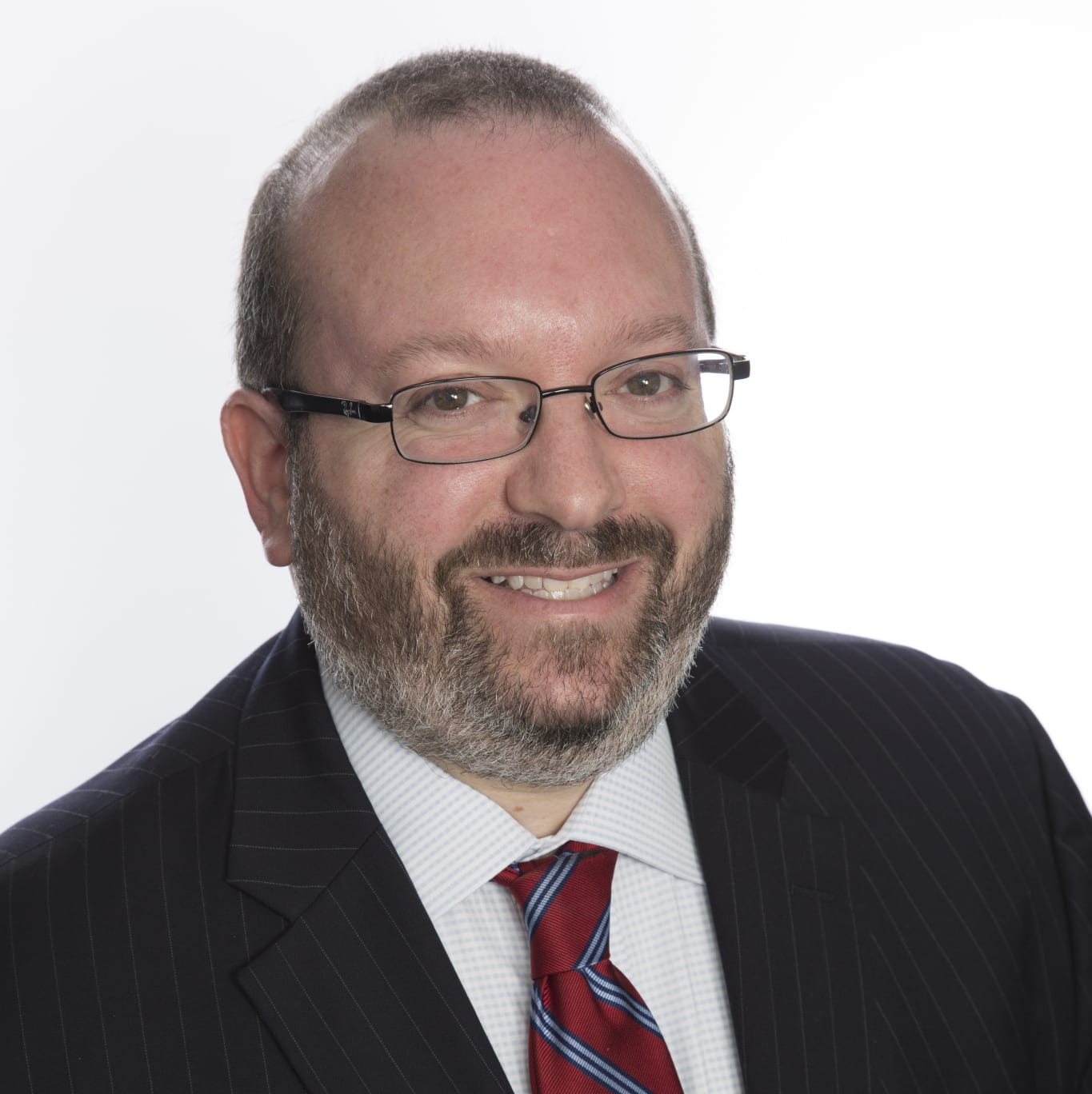
Jon Gold is vice president of supply chain and customs policy at the National Retail Federation. In this role, Gold is a primary spokesperson and is responsible for representing the retail industry before Congress and the administration on supply chain, international trade, product safety and customs-related issues impacting the retail industry. While with NRF, he has been a leading advocate of the value of trade and global value chains to the U.S. economy. Prior to joining NRF, Gold served as a policy analyst in the Office of Policy and Planning for U.S. Customs and Border Protection. He joined CBP in May 2006 and was responsible for providing policy guidance on issues surrounding maritime cargo security and trade-related matters. Gold also worked on implementation issues surrounding the SAFE Port Act and other issues within the agency including CBP intelligence reform, pandemic flu and trade facilitation.
Before joining CBP, Gold spent nearly a decade with the Retail Industry Leaders Association holding several government relations positions including director and then vice president of international trade policy before being named vice president of global supply chain policy in January 2005. Gold currently serves on the Department of Commerce’s Advisory Committee on Supply Chain Competitiveness. He has previously served on the Department of Homeland Security’s Commercial Customs Operations Advisory Committee and on the Department of Commerce’s International Trade Advisory Committee on Distribution Services. Gold holds a bachelor’s degree in international business with a concentration in finance from American University in Washington, D.C.
